Fluency News #09
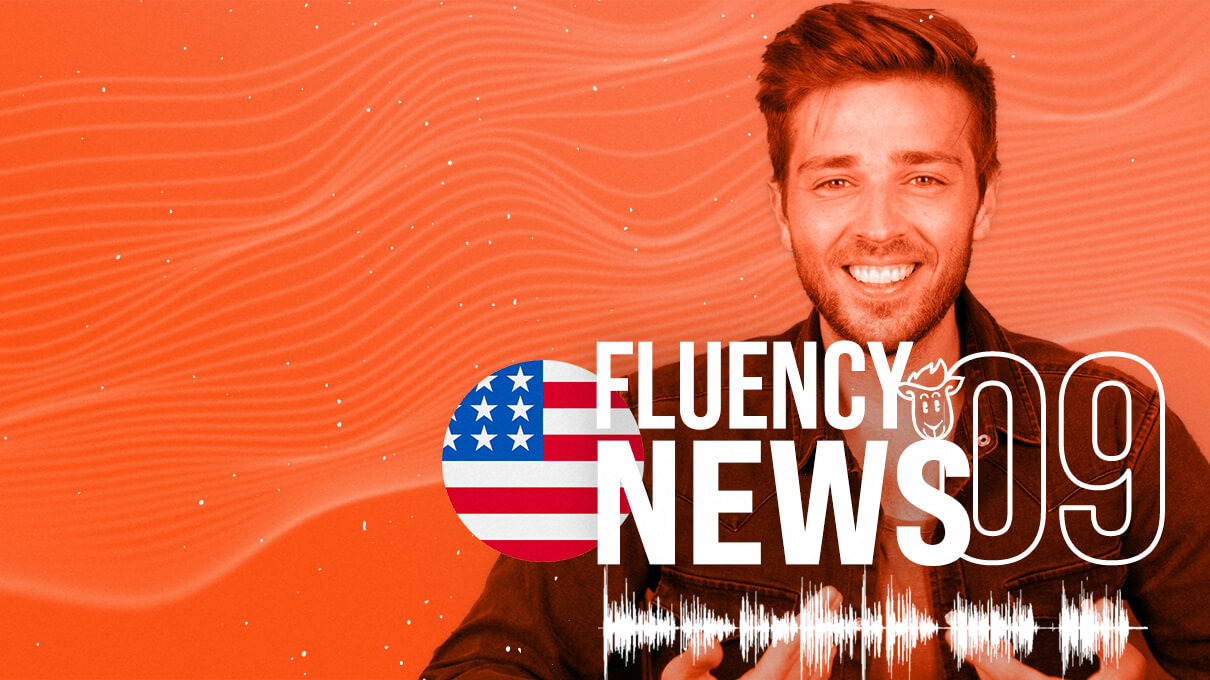
Hello, everyone!
Sejam bem-vindos e bem-vindas a mais um episódio da nossa nova série de podcasts, o Fluency News! Aqui, você vai treinar a sua escuta e ficar por dentro do que está acontecendo no mundo, sempre com as três principais notícias da semana, tudo em inglês! Ao longo do episódio, nós também adicionamos explicações em português das coisas que achamos que precisam de mais atenção, assim você não perde nenhum detalhe!
No episódio desta semana, nós falamos sobre o que está acontecendo na Casa Branca desde que Trump anunciou que ele e a Primeira Dama testaram positivo para o coronavírus. Nós também falamos sobre as duas cientistas que ganharam o prêmio Nobel de química, a provável causa da morte de 95% da vida marinha em uma província russa e, por fim, sobre como a Nova Zelândia venceu a COVID-19 pela segunda vez.
Nós temos uma nova página de dicas de inglês no Instagram, vá conferir! @fluencytvingles
Toda semana temos um novo episódio do Fluency News, não deixe de escutar! See you!
Sources:
Tracking the White House Coronavirus Outbreak https://www.nytimes.com/interactive/2020/10/02/us/politics/trump-contact-tracing-covid.html
https://www.nytimes.com/2020/10/02/us/politics/trump-positive-coronavirus-test.html?action=click&module=Spotlight&pgtype=Homepage
Scientists win historic Nobel chemistry prize for ‘genetic scissors’ https://www.bbc.co.uk/news/amp/science-environment-54432589
https://www.reuters.com/article/us-nobel-prize-chemistry/creators-of-gene-scissors-clinch-nobel-as-women-sweep-chemistry-idUSKBN26S1FX
Russian rocket fuel leak likely cause of marine animal deathshttps://www.theguardian.com/world/2020/oct/05/marine-poisoning-in-kamchatka-russia-may-be-rocket-fuel-leak
https://www.themoscowtimes.com/2020/10/06/95-of-marine-life-on-sea-floor-killed-in-kamchatka-eco-disaster-scientists-say-a71672
New Zealand beats COVID-19 for the second time, today.https://www.nzherald.co.nz/nz/news/article.cfm?c_id=1&objectid=12371156
Transcrição do Episódio
What is up, guys! Welcome back to Fluency News! I’m Scott Lowe and I’m thrilled to have you with me here today. Fluency News is Fluency Academy’s newest podcast series and it’s perfect for you to train your listening skills while getting informed about what’s happening in the world. As you probably already know, I’m American and I live in Colorado, but I left my heart back in Manaus a while ago. So sad.
Before we dive in this week’s news, let me remind you a couple of things. One, we have a new Instagram page, @fluencytvingles. If you haven’t checked it out yet, well what are you waiting for? You’ll get a bunch of tips and free content there! I have a couple of tips there already, and you can get to know some other faces of this awesome team. Again, that’s @fluencytvingles. Thing number two, if you’re listening to us through a streaming platform, did you know we have a content portal? It’s called Fluency Tv, and you can access it by clicking the link in the description or going to fluency.io.
Ok, let’s get started! First, let’s check out what’s been happening over at the White House.
Last Monday, President Trump updated the nation on the administration’s coronavirus testing strategy and announced a plan to distribute 150 million rapid tests. By early Friday morning, he had the virus himself. On the days in between, Mr. Trump interacted with scores of staff members, donors and supporters. Even the woman he has nominated to the Supreme Court, Judge Amy Coney Barrett, has been at the White House this week. The president held preparation sessions with staff members for his debate Tuesday night with former Vice President Joseph R. Biden Jr., in the tight quarters of the West Wing, where officials who are tested regularly have relied on negative results as an excuse to forgo masks and other safety precautions.
He attended a closed-door fund-raiser at a private home of a wealthy supporter in Minneapolis, and he appeared before thousands of people at a rally in Duluth, Minn., where most of the crowd did not wear masks. He also shared a stage with Mr. Biden. It is not yet clear when and how Mr. Trump contracted the virus. The president and the first lady said they had both tested positive hours after one of his closest aides, Hope Hicks, also tested positive. Ms. Hicks received the diagnosis after she began experiencing symptoms on Wednesday while attending the president’s rally in Minnesota. Mr. Trump kept his appearance there to about 45 minutes, roughly half the length of one of his typical rally speeches. On Monday in the Rose Garden, Mr. Trump boasted about the progress he said that his administration had made toward increasing testing capacity.
“I say, and I’ll say it all the time: We’re rounding the corner,” Mr. Trump said. He was joined by Vice President Mike Pence; Alex M. Azar II, the health secretary; Betsy DeVos, the education secretary; and the chief executive of Abbott Laboratories, Robert Ford.
On Tuesday Mr. Trump was accompanied by all of his adult children and senior members of his White House and campaign staff on Air Force One en route to Cleveland for the first presidential debate. None of them wore masks as they were seen boarding and deplaning. Bill Stepien, the president’s campaign manager, was seen on board without a mask and then was spotted getting into a staff van with Ms. Hicks.
“I think masks are OK,” Mr. Trump said, adding: “I put a mask on when I think I need it. Tonight, as an example, everybody’s had a test and you’ve had social distancing and all of the things that you have to, but I wear masks when needed.” The president then addressed Mr. Biden, saying: “I don’t wear a mask like him. Every time you see him, he’s got a mask. He could be speaking 200 feet away from them and he shows up with the biggest mask I’ve ever seen.”
President Trump’s announcement Friday that he and the first lady had tested positive for the coronavirus sent government officials scrambling to determine who else might have been exposed. By Tuesday evening, more than 20 people who had been in contact with the president or attended White House or campaign events last week had said they had tested positive. Several people who met with the president last week said they had since tested negative. But it can take days for someone who has been exposed to the virus to develop symptoms or to test positive. On Monday morning, Kayleigh McEnany, the White House press secretary, said she had tested positive.
The outbreak has extended beyond Mr. Trump’s inner circle to threaten several people who may not have had direct contact with him. Two deputies in the White House Press Office have tested positive, and three journalists have also tested positive after covering White House events. In addition to regular meetings and news conferences at the White House, Mr. Trump attended several large gatherings in the past week, including the first presidential debate in Cleveland and rallies in Pennsylvania and Minnesota. He went ahead with a round table and reception in New Jersey on Thursday after a close aide, Hope Hicks, tested positive for the virus. And it would seem that the results are still coming in. Every day there are reports of newly infected, and while the president is no longer in the hospital, he is getting the best medical care available.
Em português e em inglês, existem formas diferentes de dizer a mesma coisa. Se eu quiser dizer que eu tenho uma bicicleta, por exemplo, eu posso dizer I HAVE a bicycle. Mas se eu quiser dizer que tem um rasgo na minha blusa, não posso usar o verbo HAVE. Nesse caso, nós usamos “there is”. There is a tear on my shirt. Em inglês, quando nós estamos falando de ter, no sentido de existir, usamos sempre there e o verbo be, seja no singular, plural, presente ou passado. Nessa notícia, eu disse there are reports of newly infected every day, o significa que têm casos novos sendo reportados todos os dias. Nesse caso, não existe uma tradução perfeita para o “there”, mas é necessário usá-lo para dar esse sentido de alguma coisa existir. Tem uma pizza na mesa, there is a pizza on the table. Tem duas pizzas na mesa, there are two pizzas on the table.
Our second story of the day is around the historic Nobel chemistry prize. Two scientists have been awarded the 2020 Nobel Prize in Chemistry for developing the tools to edit DNA. Emmanuelle Charpentier and Jennifer Doudna are the first two women to share the prize, which honors their work on the technology of genome editing. Their discovery, known as Crispr-Cas9 “genetic scissors”, is a way of making specific and precise changes to the DNA contained in living cells. Biological chemist Pernilla Wittung-Stafshede, commented: “The ability to cut DNA where you want has revolutionized the life sciences.” Not only has the women’s technology been transformative for basic research, it could also be used to treat inherited illnesses.
Professor Charpentier, from the Max Planck Unit for the Science of Pathogens in Berlin, said it was an emotional moment when she learned about the award. “When it happens, you’re very surprised, and you think it’s not real. But obviously it’s real,” she said. On being one of the first two women to share the prize, Prof Charpentier said: “I wish that this will provide a positive message specifically for young girls who would like to follow the path of science… and to show them that women in science can also have an impact with the research they are performing.” She continued: “This is not just for women, but we see a clear lack of interest in following a scientific path, which is very worrying.”
During Prof Charpentier’s studies of the bacterium Streptococcus pyogenes , she discovered a previously unknown molecule called tracrRNA. Her work showed that tracrRNA is part of the organism’s system of immune defence. This system, known as Crispr-Cas, disarms viruses by cleaving their DNA – like genetic scissors. In 2011, the same year she published this work, Prof Charpentier began a collaboration with Prof Doudna, from the University of California, Berkeley. The two had been introduced by a colleague of Doudna’s at a cafe in Puerto Rico, where the scientists were attending a conference. And it was on the following day, during a walk through the streets of the island’s capital, San Juan, that Prof Charpentier proposed the idea of joining forces. The scientists will split the prize money of 10 million Swedish crown (R$6,330,435).
Nessa história incrível, nós temos uma frase bem interessante. Uma das cientistas diz: I wish that this will provide a positive message… O que ela está dizendo é que deseja que isso se torne uma mensagem positiva para jovens meninas. O que é uma mensagem muito boa mesmo, mas eu quero focar mais na estrutura que ela usou. I wish this will provide. Quando nós usamos I wish, estamos falando de algo que gostaríamos, que queríamos alguma coisa. Nós usamos com tempos verbais e acompanhamentos diferentes dependendo do sentido. Aqui, ela usa com o will, para indicar o futuro, mas é mais comum ver o wish acompanhado do could, que é um verbo modal. I wish I could significa eu gostaria de poder, ou algo como isso, e indica um desejo de que a situação fosse diferente.
Next, in some not so good news, scientists say 95% of marine life on sea floor was killed in Kamchatka. Water pollution in Russia’s Kamchatka peninsula that caused sea creatures to wash up dead on beaches has prompted fears that rocket fuel stored in the region’s military testing grounds may have leaked. The pollution came to light late last month after surfers reported stinging eyes and said the water had changed color and developed an odor. Officials later confirmed the surfers had sustained mild burns to their corneas.
Then locals reported seeing large numbers of dead marine species including seals, octopuses and sea urchins washed up on a black-sand beach popular with tourists. The regional governor, Vladimir Solodov, said on Monday the sea off the remote Kamchatka peninsula may have been contaminated with toxic chemicals. Greenpeace, which has been assessing the area, warned of an “ecological disaster”. Officials said tests showed above-permitted levels of phenol and petroleum products. Experts were investigating whether this was linked to spills of toxic substances, Solodov said.
He added that divers had confirmed the deaths of sea creatures and pollution appeared to be spread over a wide area. Officials are scrambling to find the cause after President Vladimir Putin in June reacted angrily to the late reporting of an oil leak in Arctic Siberia that poured thousands of tons of diesel into land and waterways. The ecology minister, Dmitry Kobylkin, said in televised comments that Putin had ordered him to establish the cause of the situation. The Kamchatka governor, dressed in a “I/We are the Pacific Ocean” T-shirt, vowed on Instagram to lead a “transparent” investigation and sack any official who covered up the scale of the pollution. He said there would be checks on Tuesday at two military testing sites, Radygino and Kozelsky, that could be responsible, citing a “yellow film” on a local river.
“Early tomorrow morning there will be inspections of two key test sites that are raising everyone’s concerns,” he said. Some experts have suggested highly toxic rocket fuel could have leaked into the sea. The first test site, Radygino, is about six miles (10km) from the sea and was used for drills in August. Vladimir Burkanov, a biologist specializing in seals, in a comment published by the Novaya Gazeta opposition newspaper, suggested old stores of rocket fuel kept in Radygino could have rusted and the fuel leaked into streams. The other site, Kozelsky, has been used to bury toxic chemicals and pesticides, according to the governor’s website.
Greenpeace said its team had seen patches of yellowish foam and murky water in several locations, with some pollution drifting towards a Unesco-protected area of volcanoes. The group said it saw dead animals in one area. Kobylkin said in televised comments that so far tests had found only slightly raised levels of iron and phosphates and suggested the incident might not be man-made but caused by the stormy conditions and micro-organisms altering the oxygen levels. Environmental inspectors and experts from a fisheries and oceanography research center were continuing tests. Greenpeace said it had contacted state ecological monitors, the armed forces and the prosecutor general’s office urging an immediate investigation. Prosecutors and investigators announced they would carry out checks into whether a crime had been committed but have not released any findings.
The emergencies ministry said it was using boats and drones to monitor the coastline but no pollution was visible. Solodov said it was a problem that the region had no unified system of environmental monitoring. The pristine peninsula is a popular destination for adventure tourism because of an abundance of wildlife and live volcanoes. The incident came as authorities urged tourists not to visit a live volcano on Kamchatka owing to fears of an imminent eruption.
Se você consume bastante conteúdo em inglês, já deve ter reparado na diferença de sotaques e expressões entre o inglês britânico e o inglês americano, certo? Você sabia que também existem diferenças na escrita de algumas palavras? As palavras center e theater, por exempĺo, são escritas de forma diferente nos dicionários britânicos e americanos. Nos EUA, essas palavras são escritas C-E-N-T-E-R e T-H-E-A-T-E-R, enquando são escritas com o R e o E invertidos na Inglaterra (centre, theatre). Além disso, palavras como color, honor e odor tem um U no inglês britânico, mas não no americano. E por fim, por hoje, palavras como realise, analise são escritas com S na Inglaterra e com Z nos Estados Unidos. Ah, e o Canadá segue a escrita inglesa, e não a americana, mesmo dividindo fronteiras com o país do Trump.
And, real quick, let’s see some good news! Our excellent news, in fact, come from New Zealand, as they beat COVID-19 for the second time. The first time New Zealand thought it had eliminated the coronavirus from its isolated shores, a mysterious outbreak in its largest city shattered any sense of victory over a tenacious foe. Now, after a second round of strict lockdown, the country believes — if a bit more tentatively this time — that it has effectively stamped out the virus once again. On Wednesday, New Zealand moved to lift the last of its restrictions in Auckland after 10 days with no new cases linked to a cluster that first surfaced in August. The government will now allow unrestricted gatherings, and trips on public transit without social distancing or masks, in the city of 1.6 million people. Prime Minister Jacinda Ardern, who is facing re-election next week, called the reopening a validation of the country’s “go hard, go early” response. The strategy is aimed at eradicating the virus with a swift science-based policy, one that trades weeks of lockdown and sacrifice for an emergence to full economic activity.
“Our team of five million, a little more battle-weary this time, did what national teams do so often. We put our heads down, and we got on with it,” Ms. Ardern told reporters in Christchurch on Monday as she announced that the restrictions would be loosened, referring to the total number of people in New Zealand. “You only had to look around the world to see the alternative to our approach here in New Zealand,” she said, adding that there was a 95 percent probability that the country had eliminated local transmission of the virus.
Experts cautioned that New Zealand’s small population and isolation meant it was uniquely positioned to manage the disease. But its success presents a stark contrast to many other parts of the world as deaths from the pandemic have surpassed one million. India is being devastated by the virus after proceeding with its economic reopening even as a second wave washed over the country. In the United States and Brazil, leaders have continued to play down the pandemic’s dangers even as they themselves have been infected. The word “elimination” in relation to the virus, said Michael Baker, an epidemiologist at the University of Otago, “might stick in the throat for some politicians, because it seems too tough, but as we found in New Zealand, it’s a goal you aim for, and you accept you might have outbreaks.”
Professor Baker helped devise the country’s elimination strategy. He said that despite early fears that severe lockdowns would irreparably damage the economy, New Zealand’s approach had proved that the best economic response was a strong public health response, including a blitz of testing, contact tracing and quarantining. Much of the rest of the Western world, Professor Baker added, has “adopted the approach of complacent exceptionalism — that they wouldn’t get the virus, or it wouldn’t be as severe as they thought, and the pandemic has proved them wrong.” In Auckland, where gatherings had been restricted to 100 people and masks had been mandated on public transport, the rules were eased at 11:59 p.m. on Wednesday. People are no longer required to wear masks in public, but must continue to sign in at and keep records of locations they visit, maintain good hygiene practices and, if unwell, remain at home and get tested for the virus. The national border remains closed to almost all travelers except New Zealand citizens and permanent residents.
While residents said they were relieved, they did not expect an immediate return to normal life. “People have stayed in their suburbs and supported their local restaurants, so where in the past I was in a really good spot, now not so much,” said Yael Shochat, who has run Ima Cuisine, a restaurant in downtown Auckland, for almost two decades. “But the most important thing is we have eliminated the virus again, and that makes people confident to come out,” Ms. Shochat said. “I’m hoping that as Christmas comes, people will really want to go out and party — it’s been a horrible year.”
Others said they had been frustrated at restrictions that seemed too stringent, preventing them from applying for visas or doing work considered nonessential by the government. And some who acknowledged that the measures were necessary said they felt that not enough had been done to assist them. “I can’t get any help from the government,” said Sherrie Edwards, 51, who after losing her job as an importer in recent months said she feared that she might have to sell her home to make ends meet. Ms. Edwards said she was feeling “quite depressed.” While the economic pain has been acute for many, New Zealand has kept the number of cases and deaths from the coronavirus low. The country has had 1,505 confirmed cases and 25 deaths in total, and as of Wednesday, just three new cases of the virus had been recorded, all of them people still in quarantine after arriving from overseas.
The numbers have worked in Ms. Ardern’s favor, placing her ahead in the polls before the country’s elections on Oct. 17. “I was always leaning toward Labor, but this has well and truly solidified it for me,” said Christopher Carroll, a 31-year-old primary school teacher in Auckland, referring to the party Ms. Ardern leads. “I feel like we’re in a better situation than in other parts of the world, where this thing is going on and on.” Two months ago, however, many in the country wondered whether that success would continue.
The Auckland cluster, the country’s largest, involved 179 cases. At the same time in neighboring Australia, its second-largest city, Melbourne, was in the grip of a severe second wave from which it is only now emerging. And though disease detectives struggled to pin down the origins of the Auckland outbreak, the country was ultimately able to quash it through a citywide lockdown that began the day after the first cases emerged.
New Zealand is not alone in successfully pursuing an elimination strategy, with Taiwan among those following the model. And other places, including Hong Kong and Vietnam, have stamped out second or third waves. But experts said this approach would not necessarily work everywhere
“They’ve never had a major outbreak where the number of cases have overwhelmed their public health capacity,” Adam Kamradt-Scott, an associate professor of global health at the University of Sydney, said of New Zealand. He added that even though the country’s size, isolation and disaster preparedness gave it distinct advantages, an elimination strategy may not be viable in the absence of a vaccine. Michael Plank, a mathematics and statistics professor at the University of Canterbury in Christchurch, said that until that time, it would be wise for New Zealanders to continue wearing masks — even if the virus appeared to have been defeated.
“We need to be really careful not to let our guard down,” Professor Plank said. “We think we’ve got a high chance now that we’ve eliminated community transmission of the virus. But that doesn’t mean it won’t come back.” And with that, we are done for today! Feels good to end on a positive note, doesn’t it? Good job, New Zealand, good job. You can check out the transcription of this episode and all of our sources in the description. Don’t forget to check out @fluencytvingles on Instagram, and check out fluency.io for over 600 FREE lessons in five different languages.
There’s a new episode of Fluency News every week, and we’ll be here waiting for you. Peace out.
Playlist
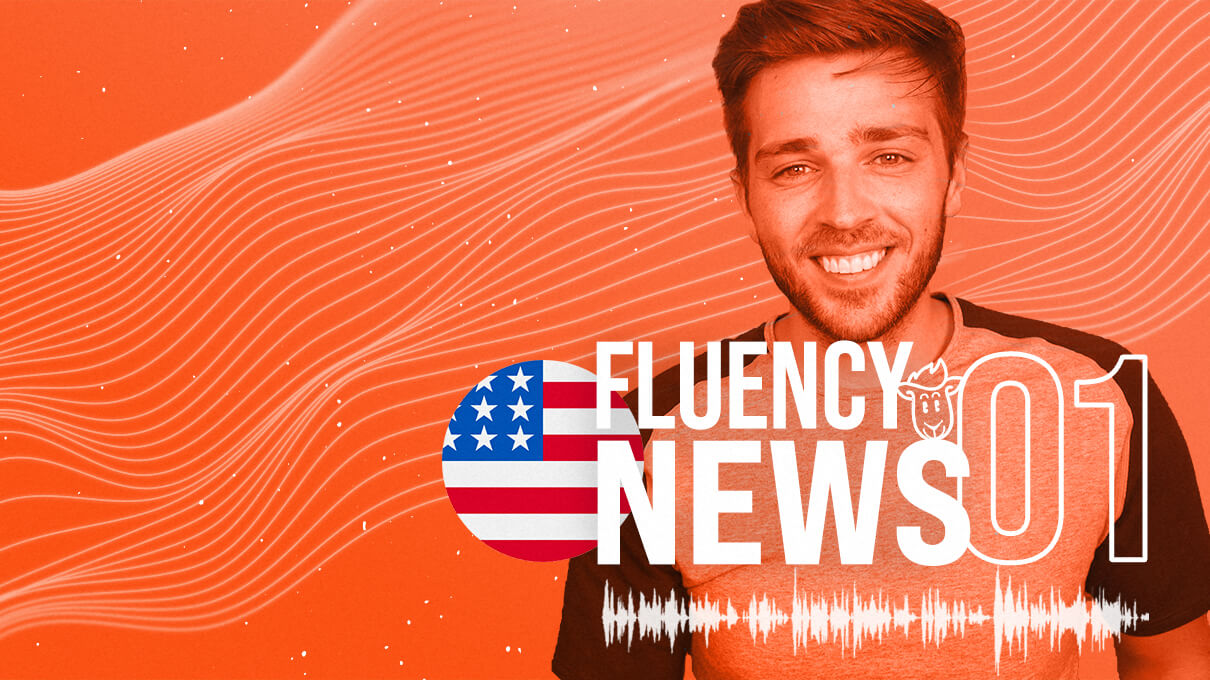
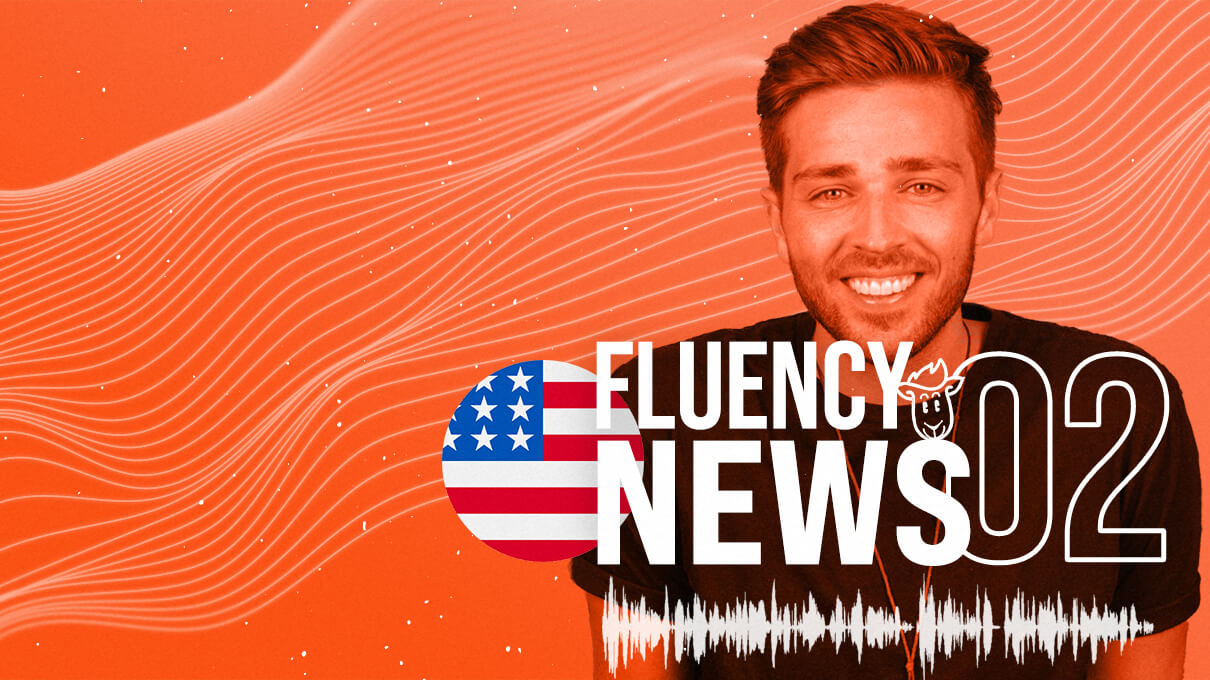
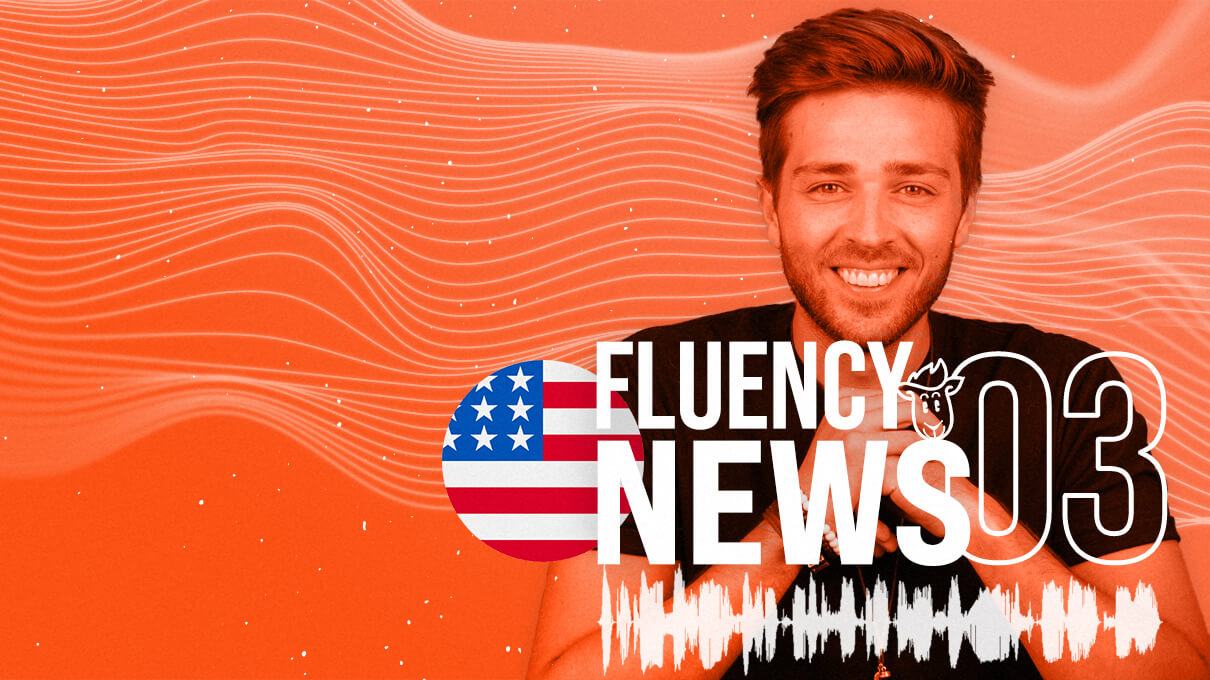
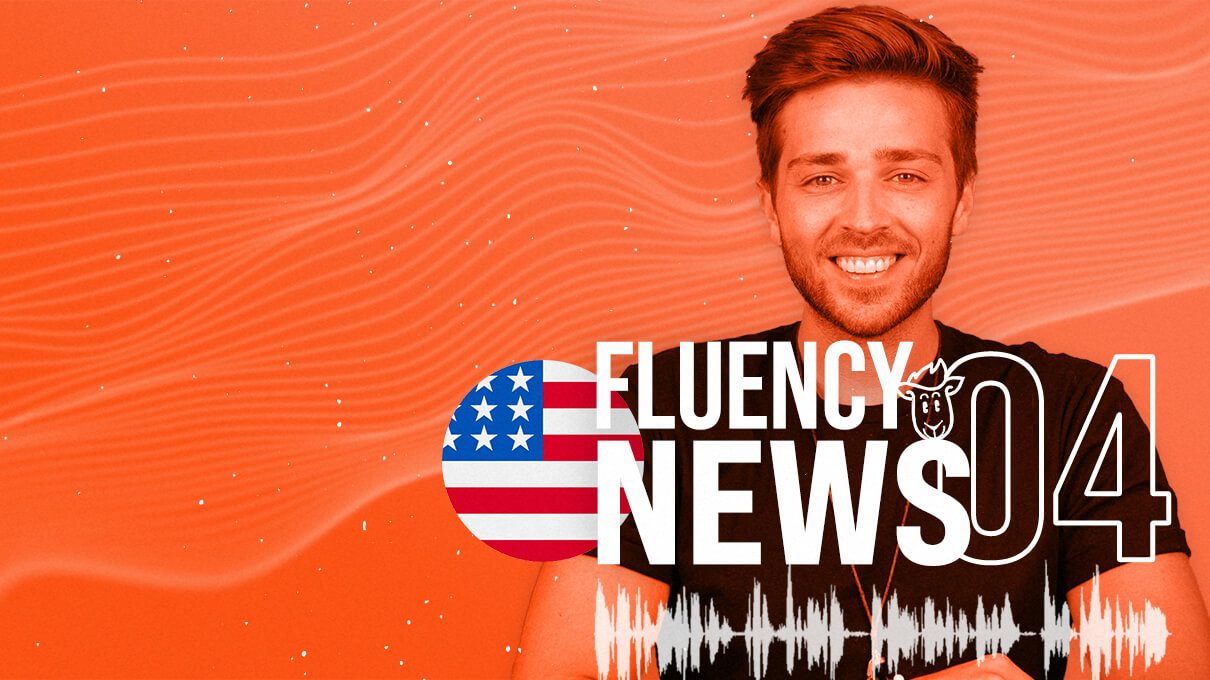
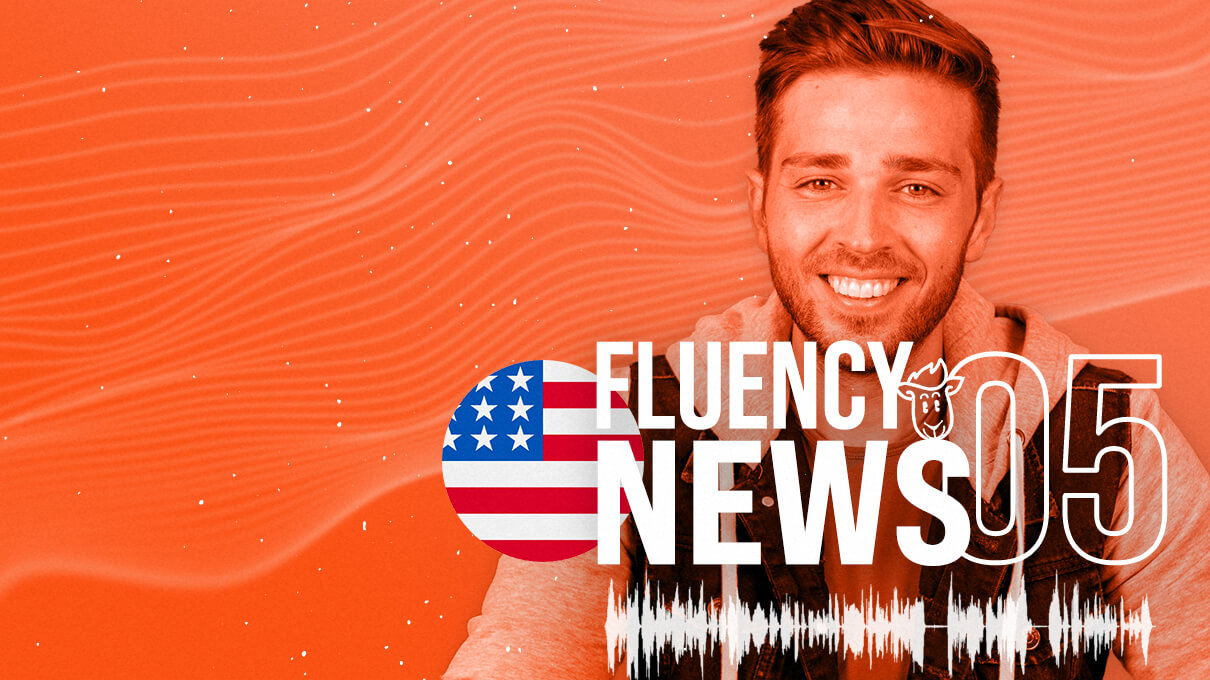
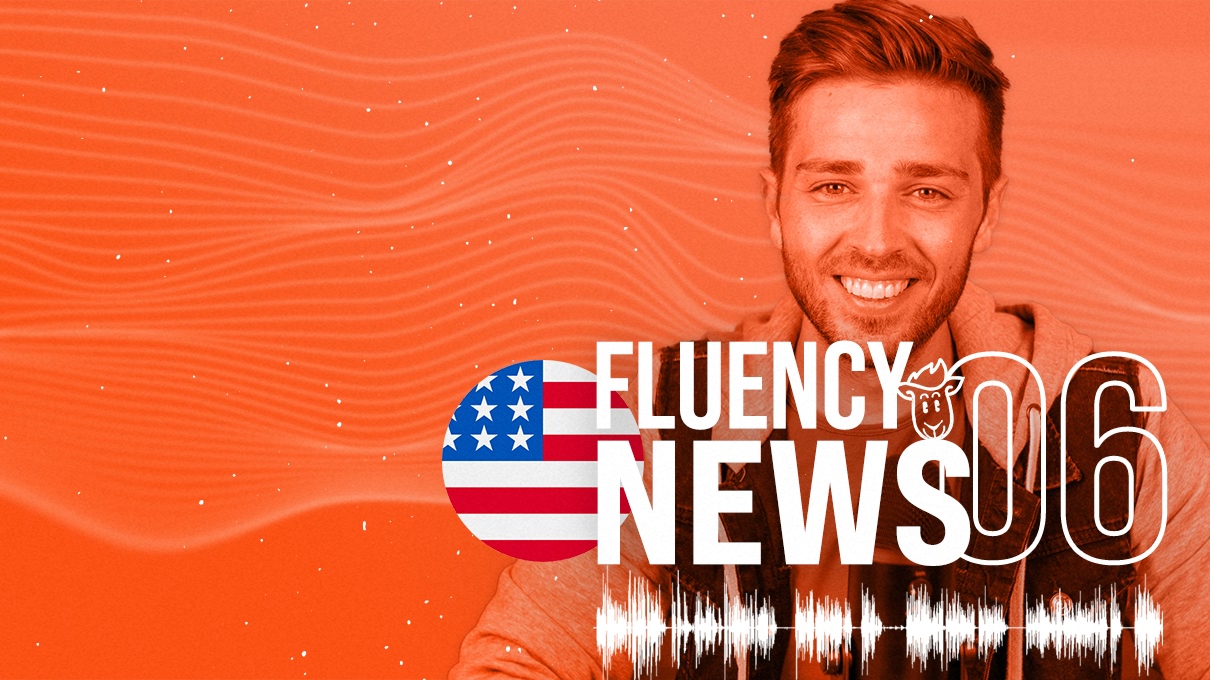
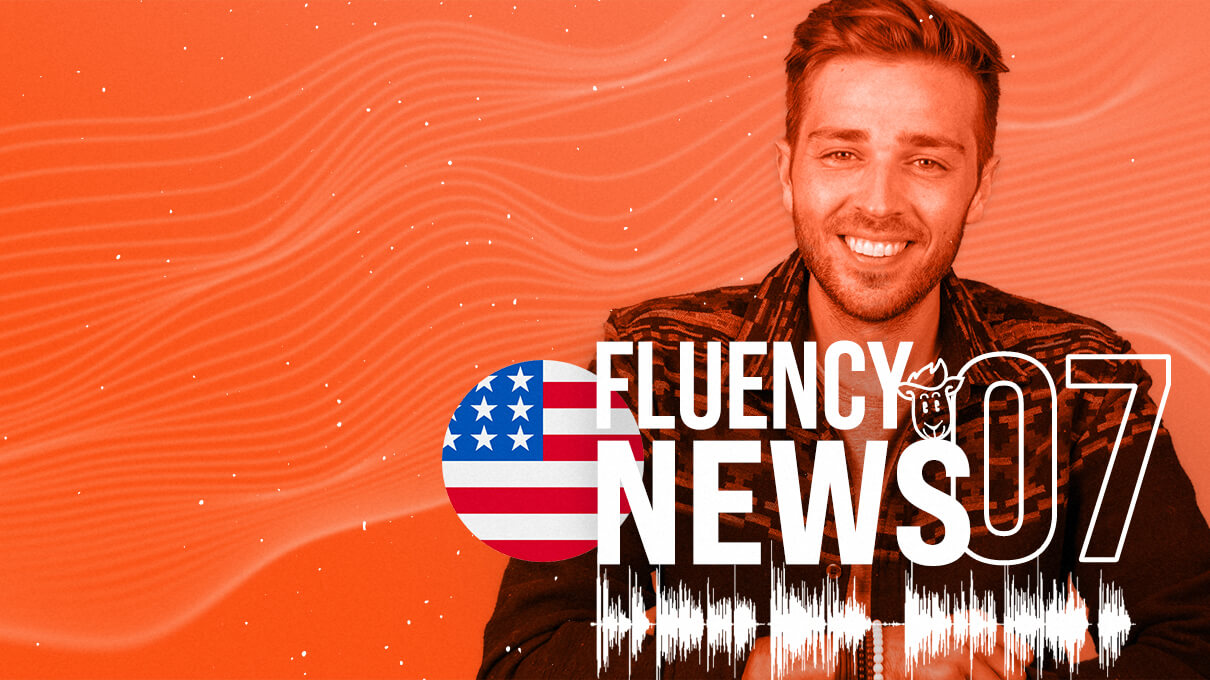
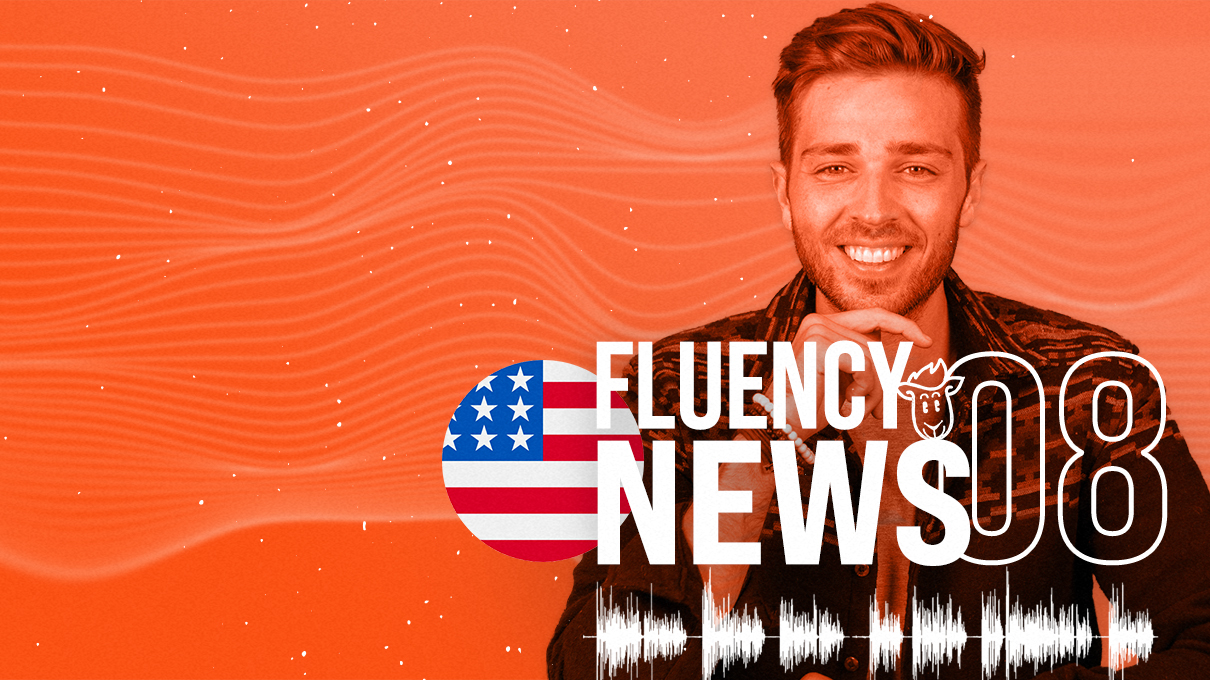

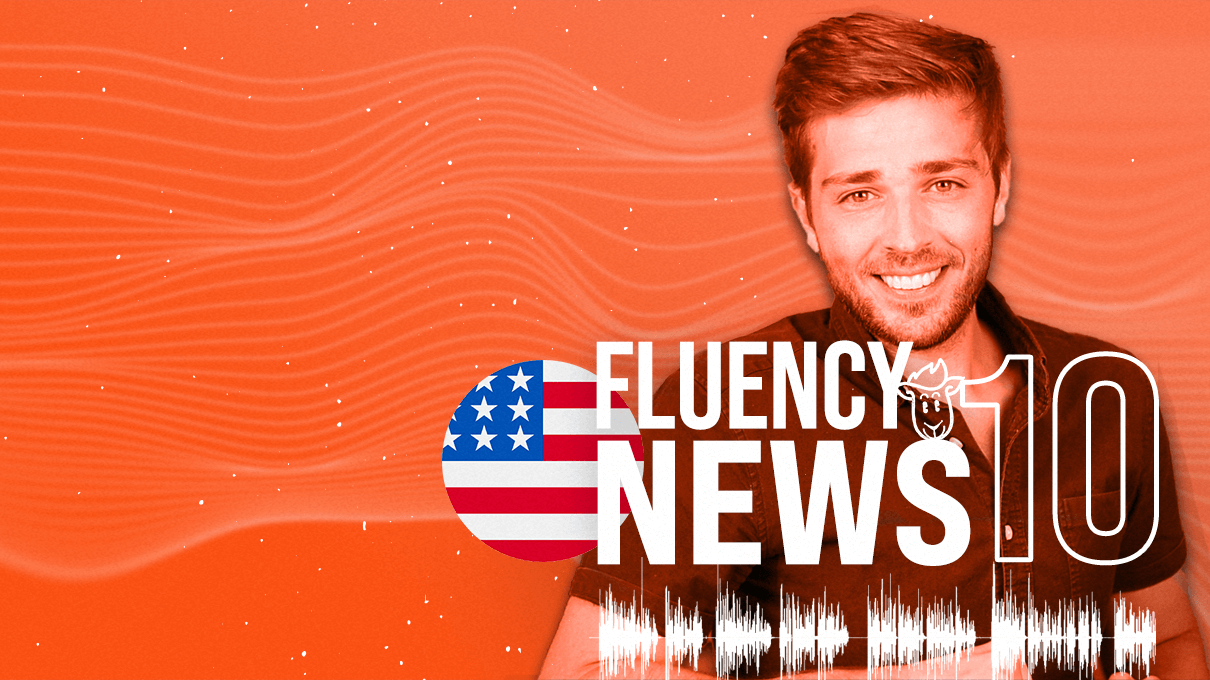
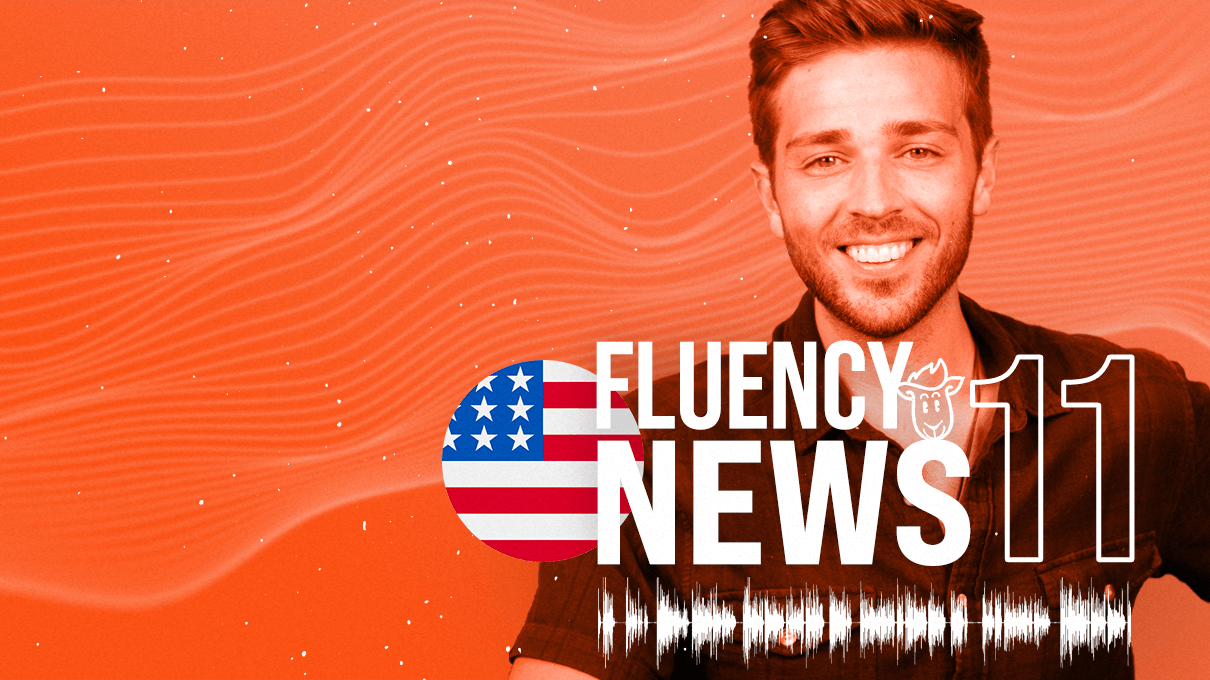
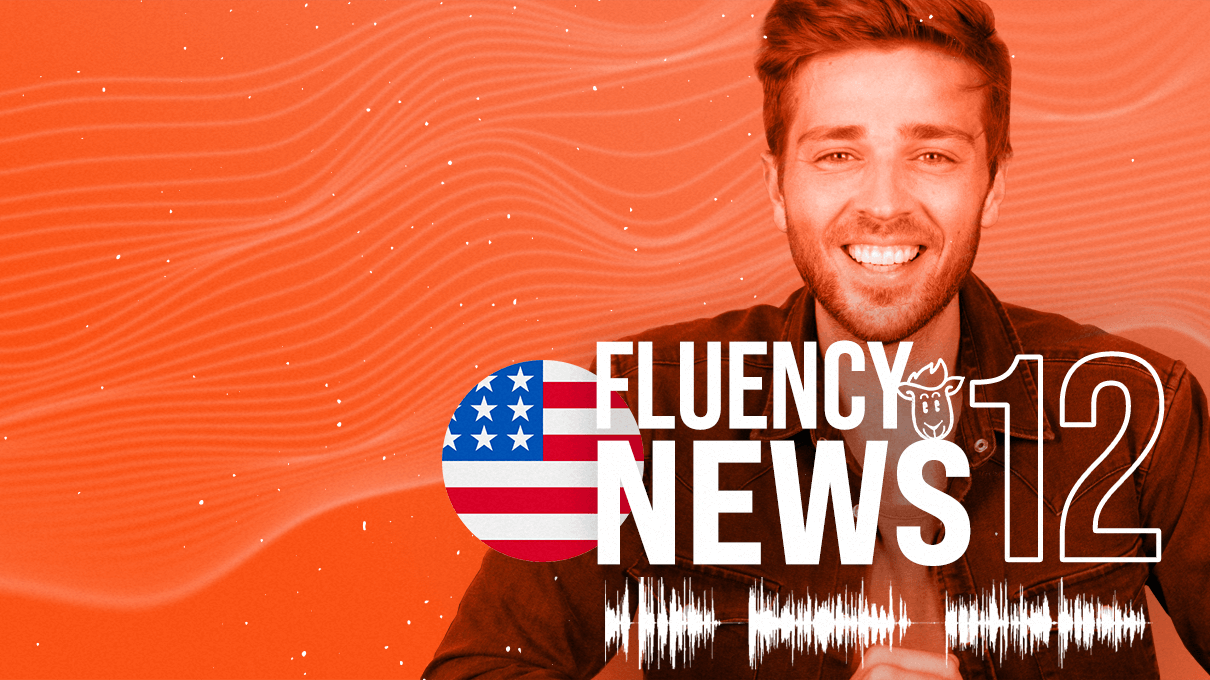
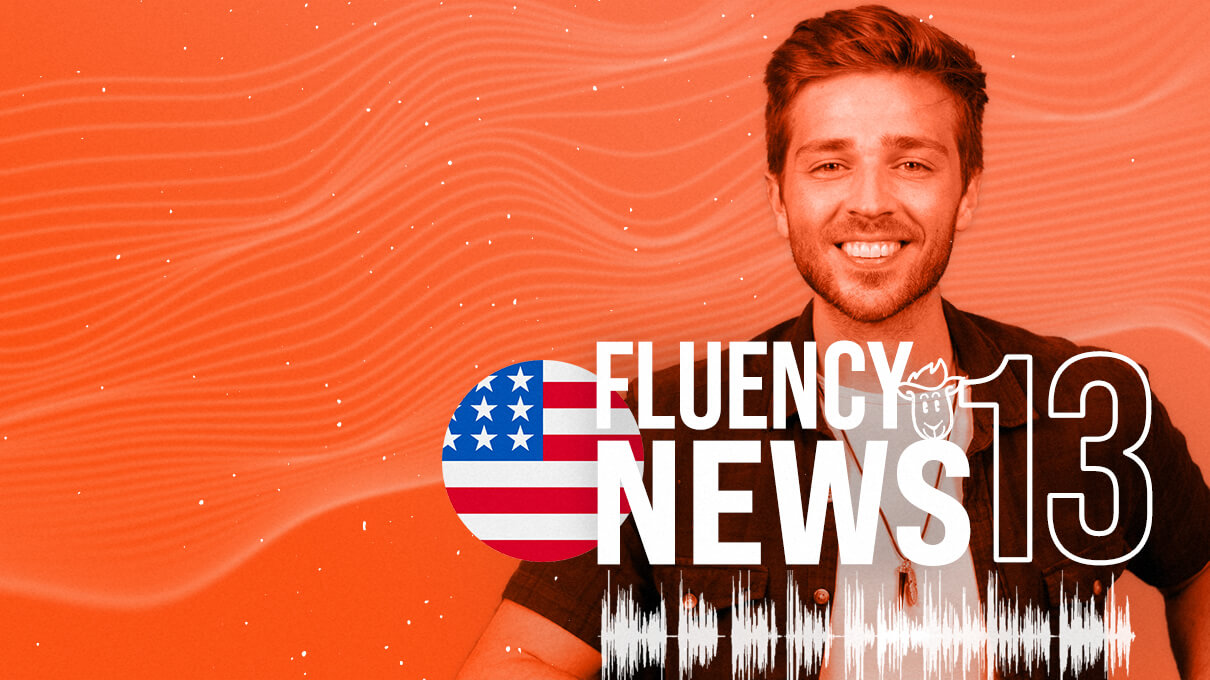
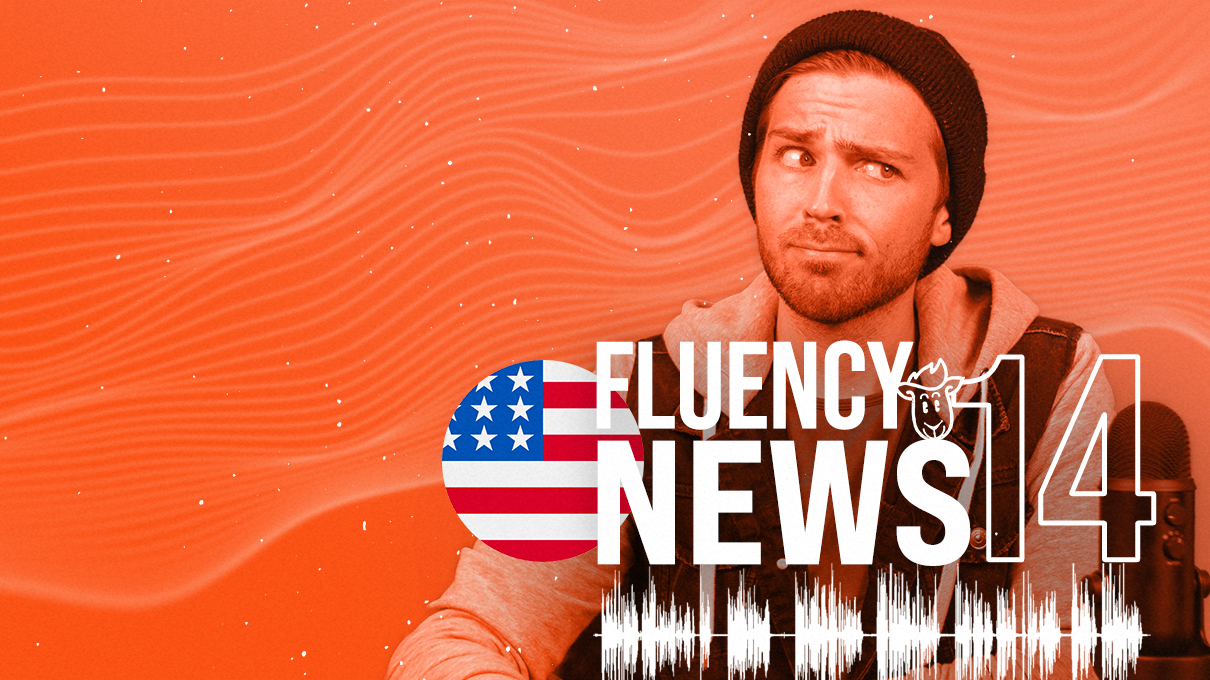
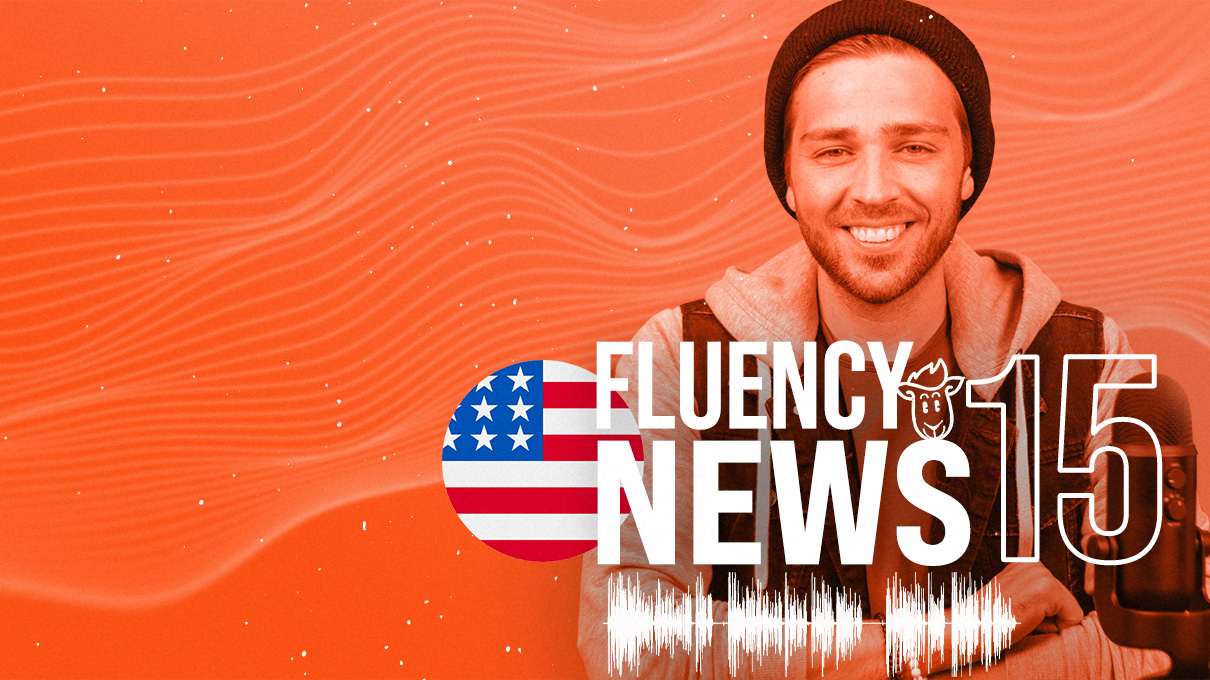
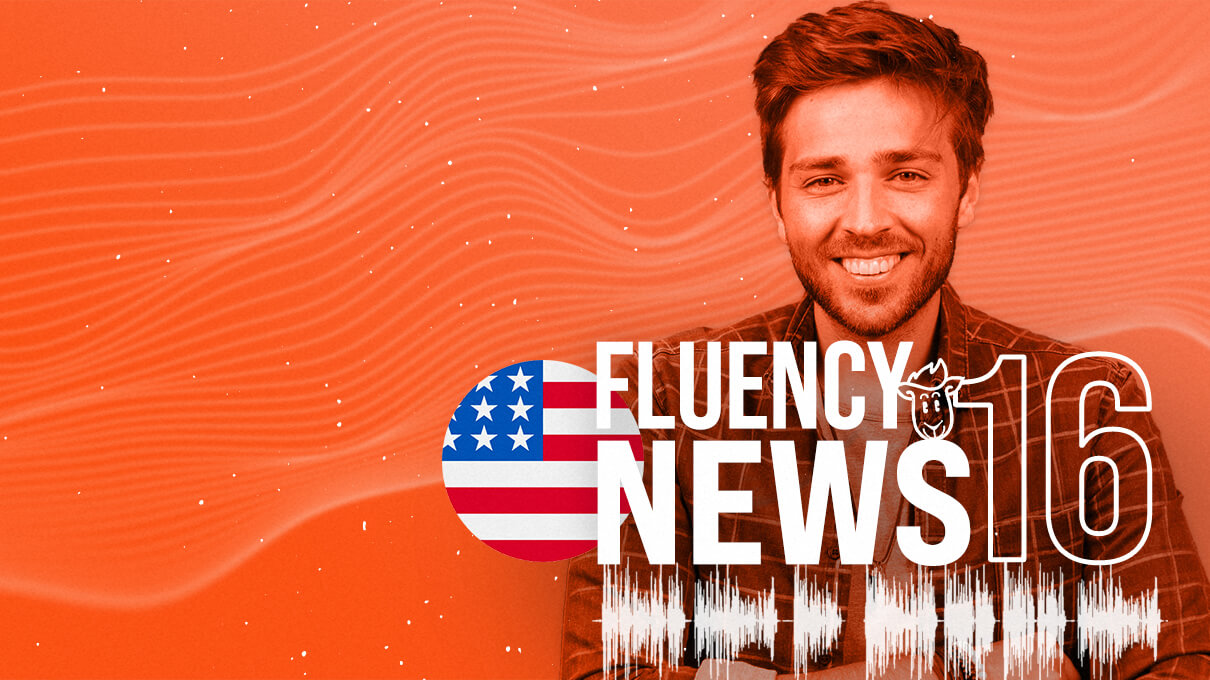
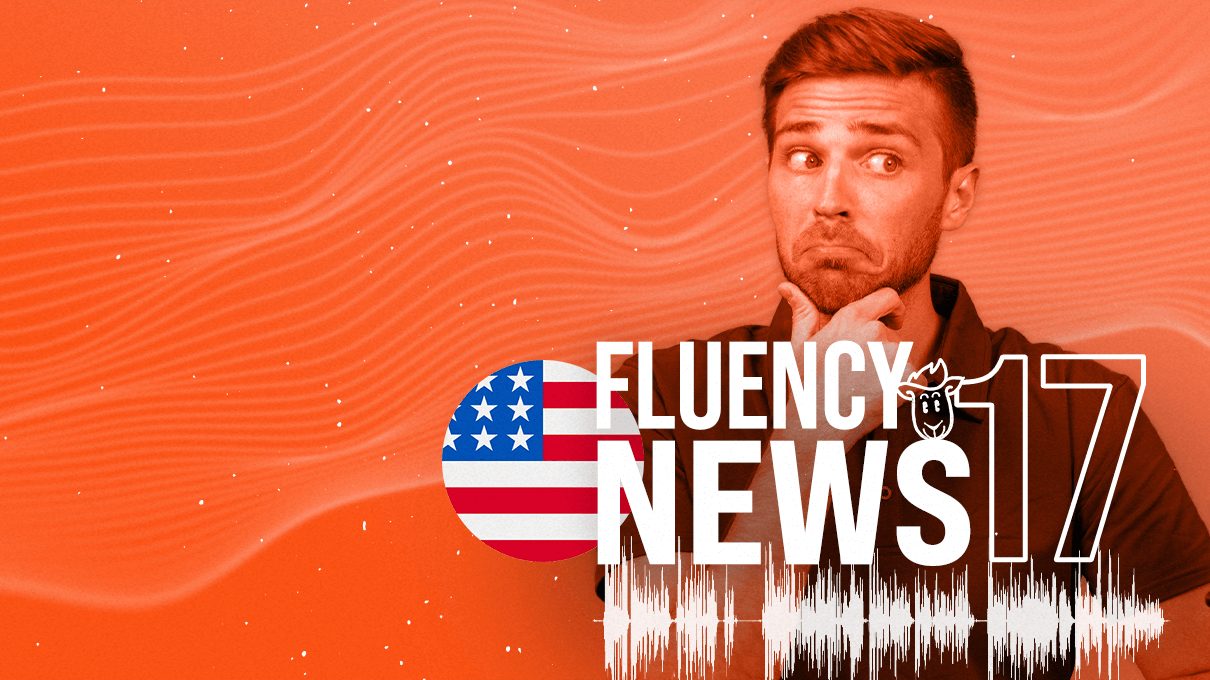
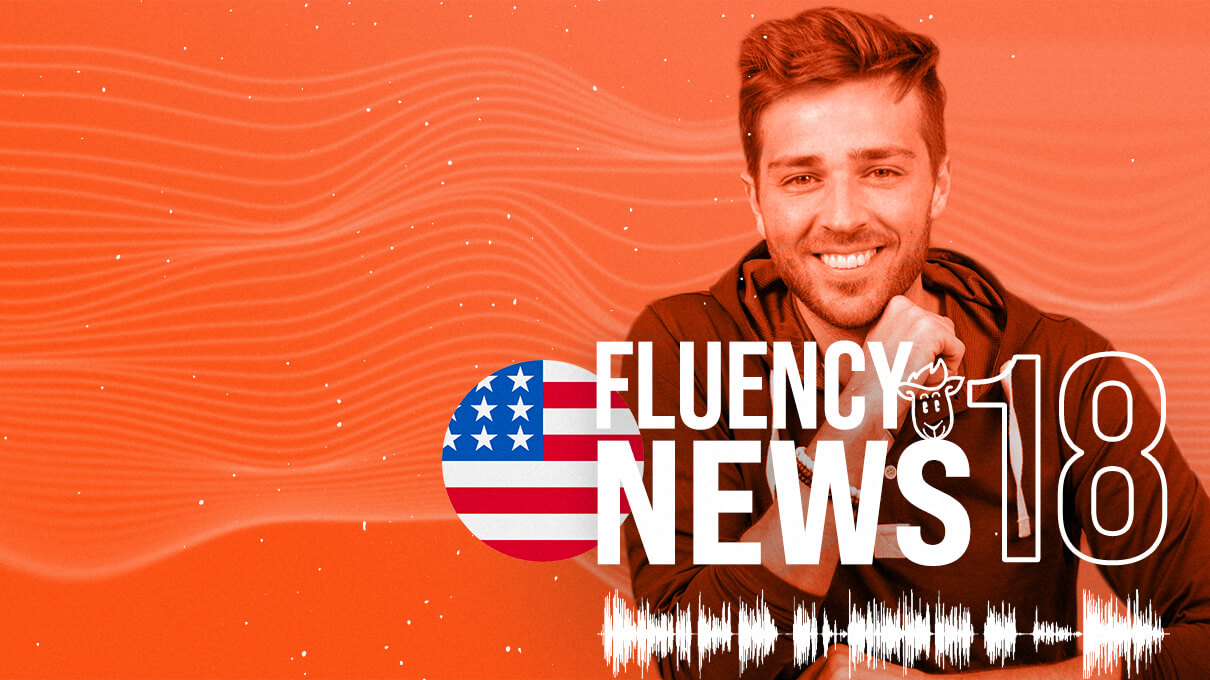
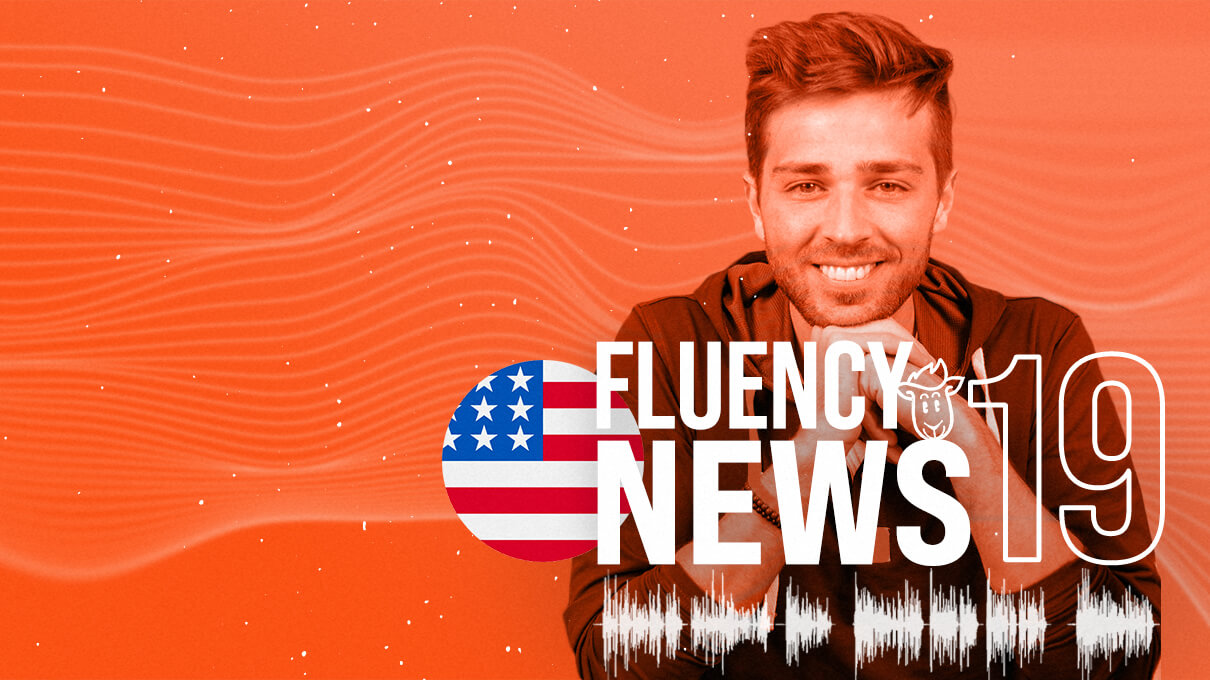


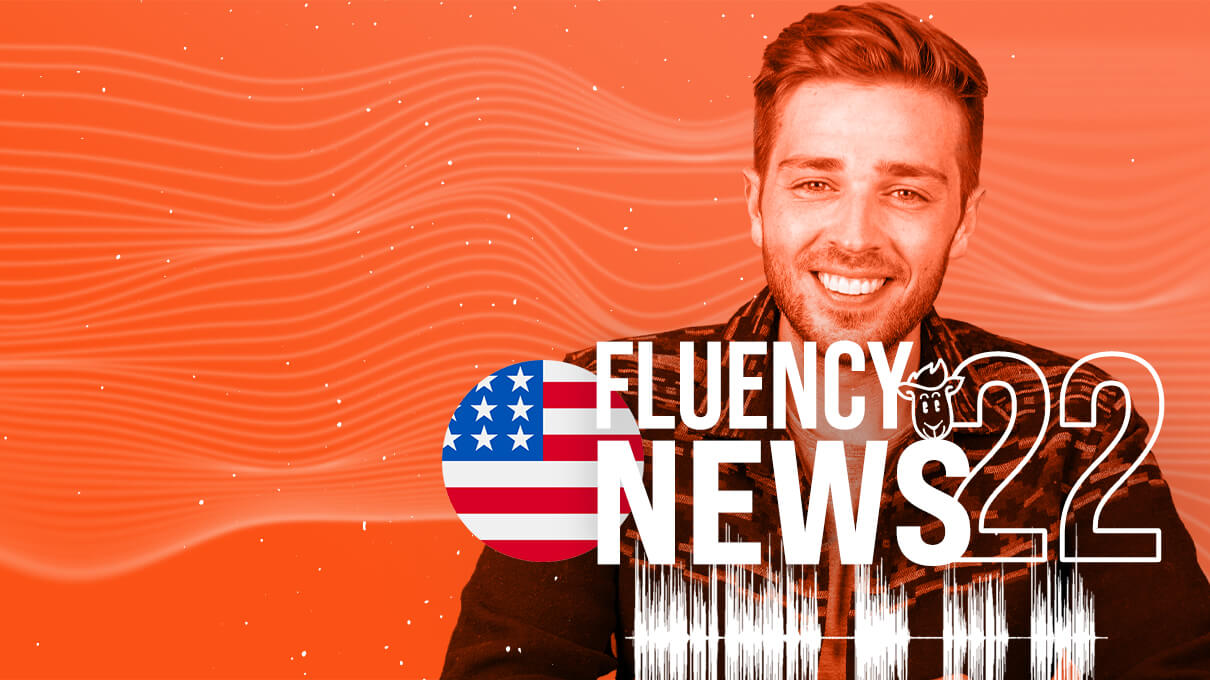
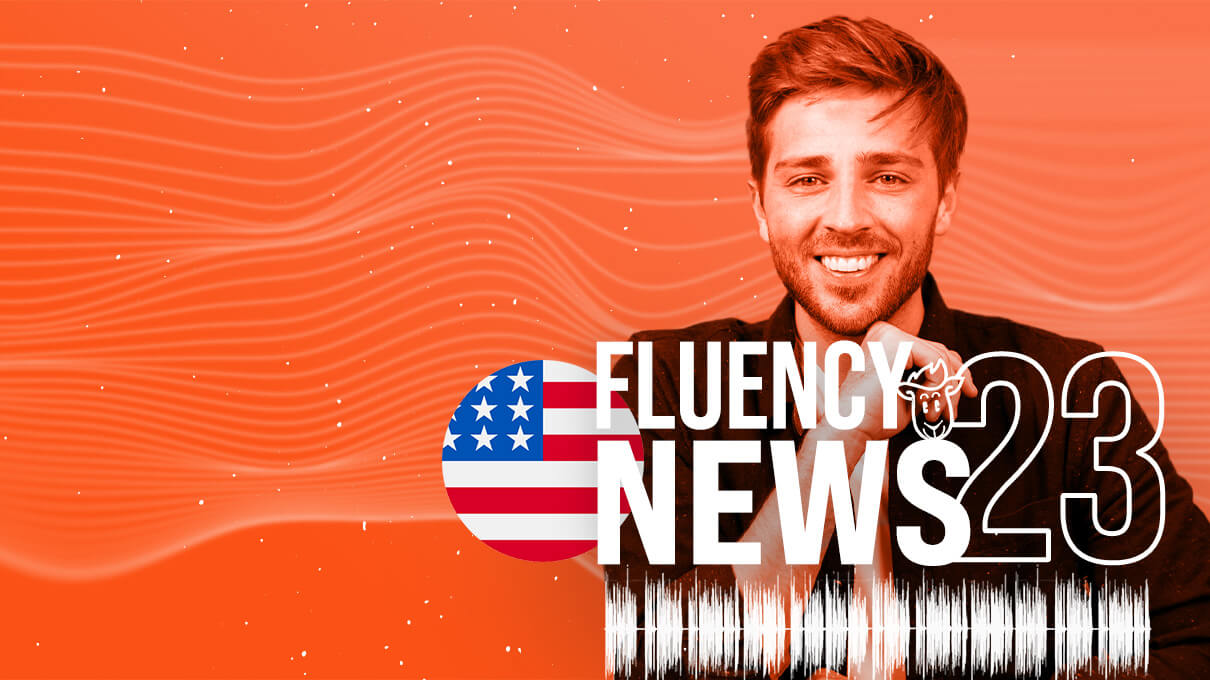
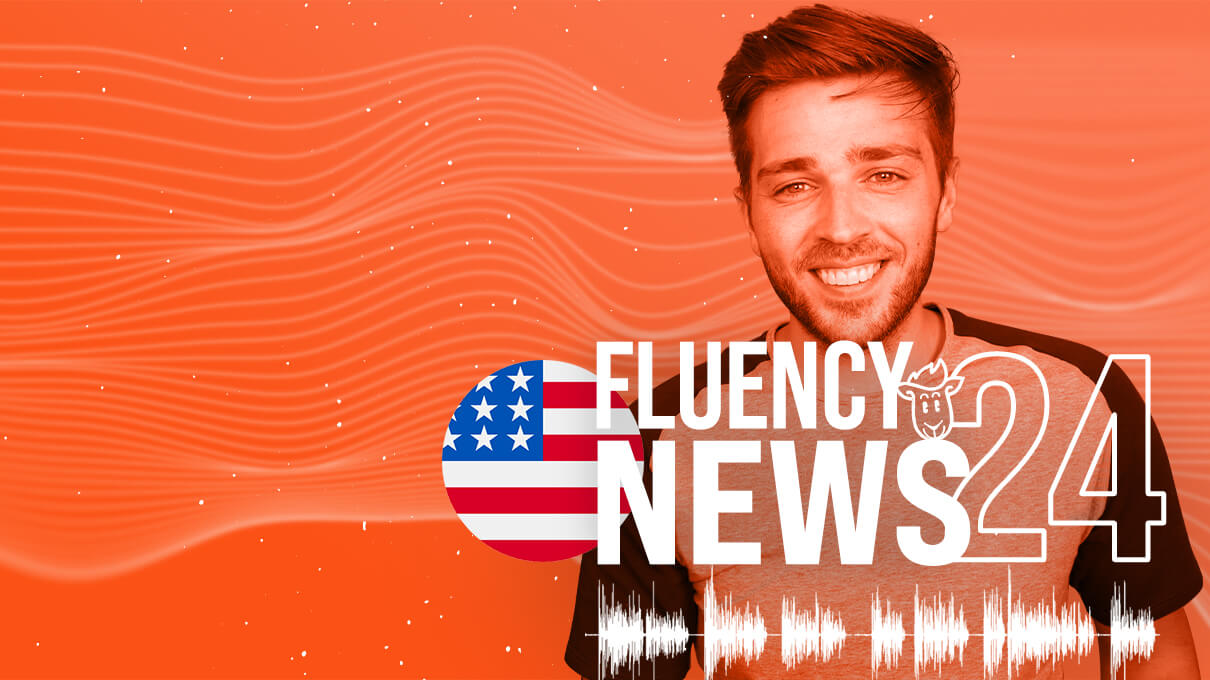
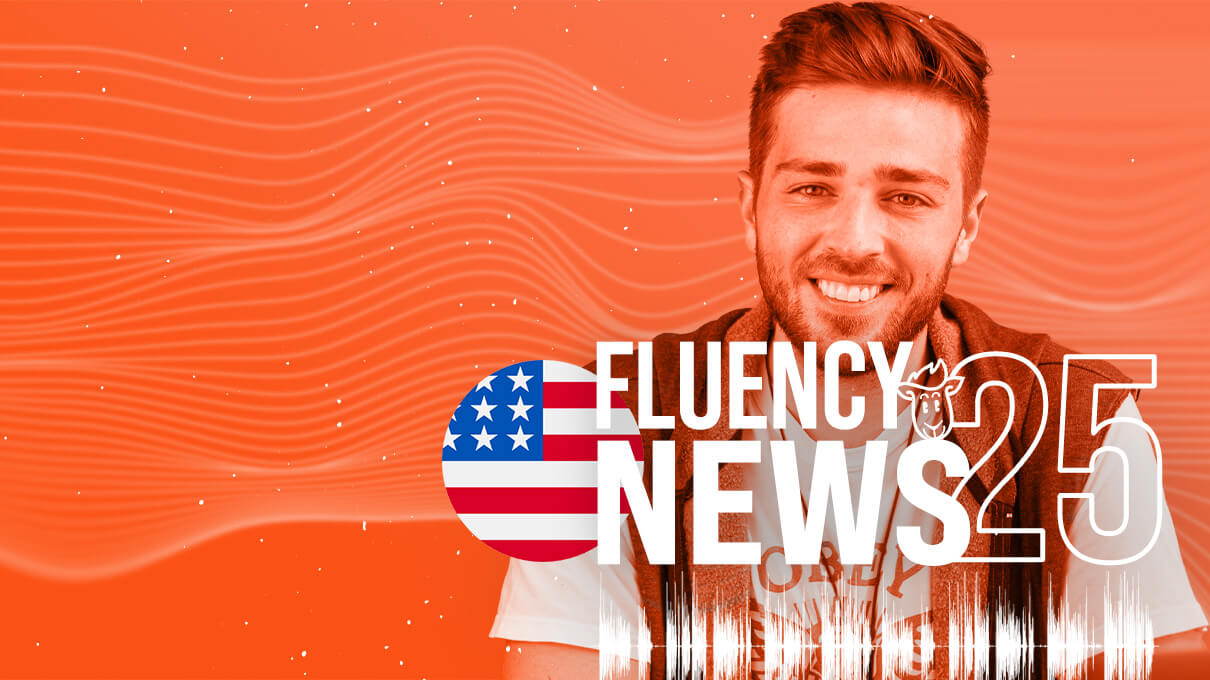
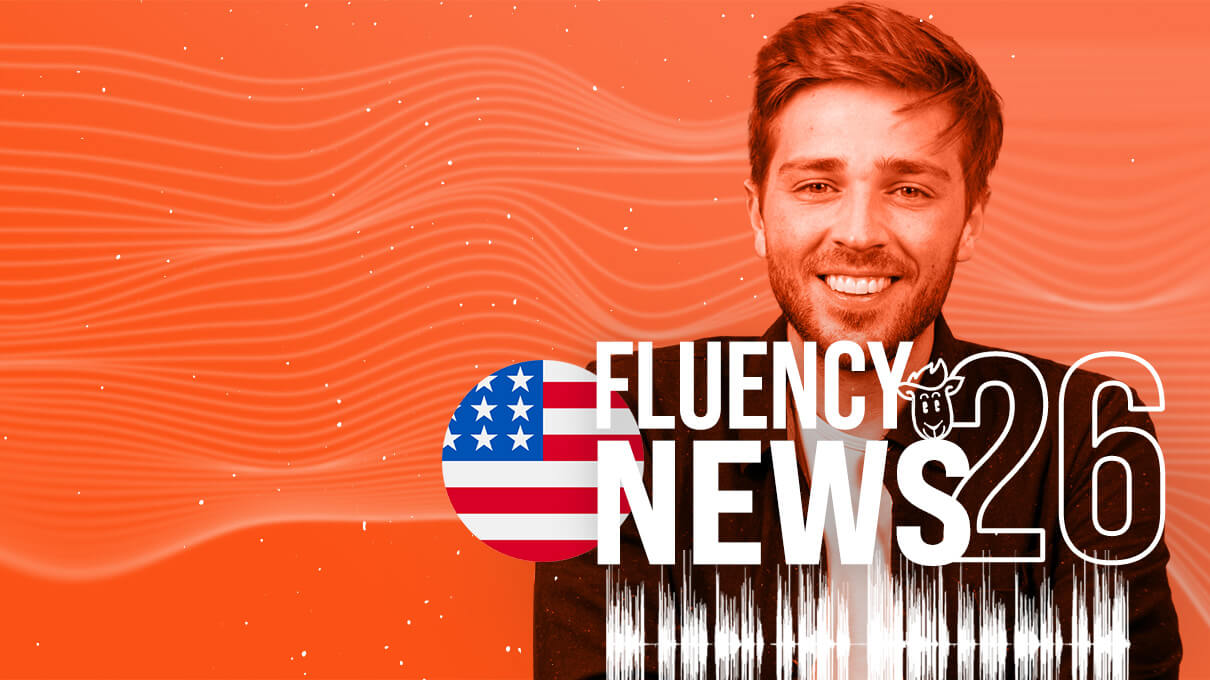
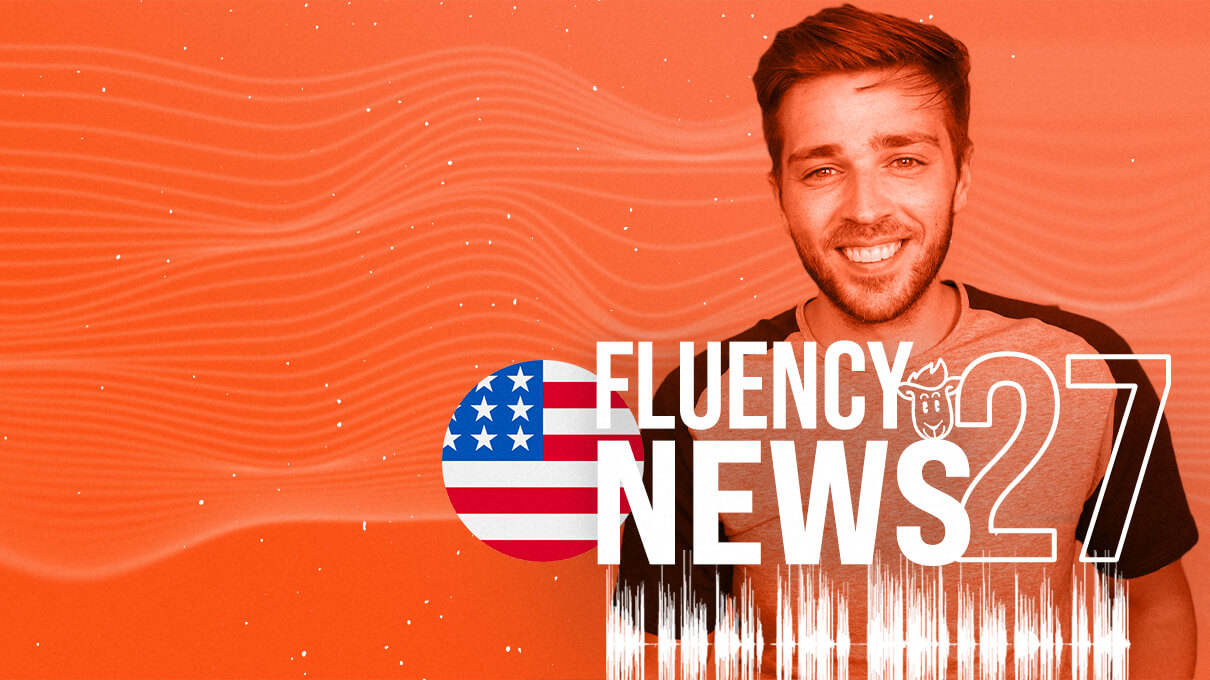
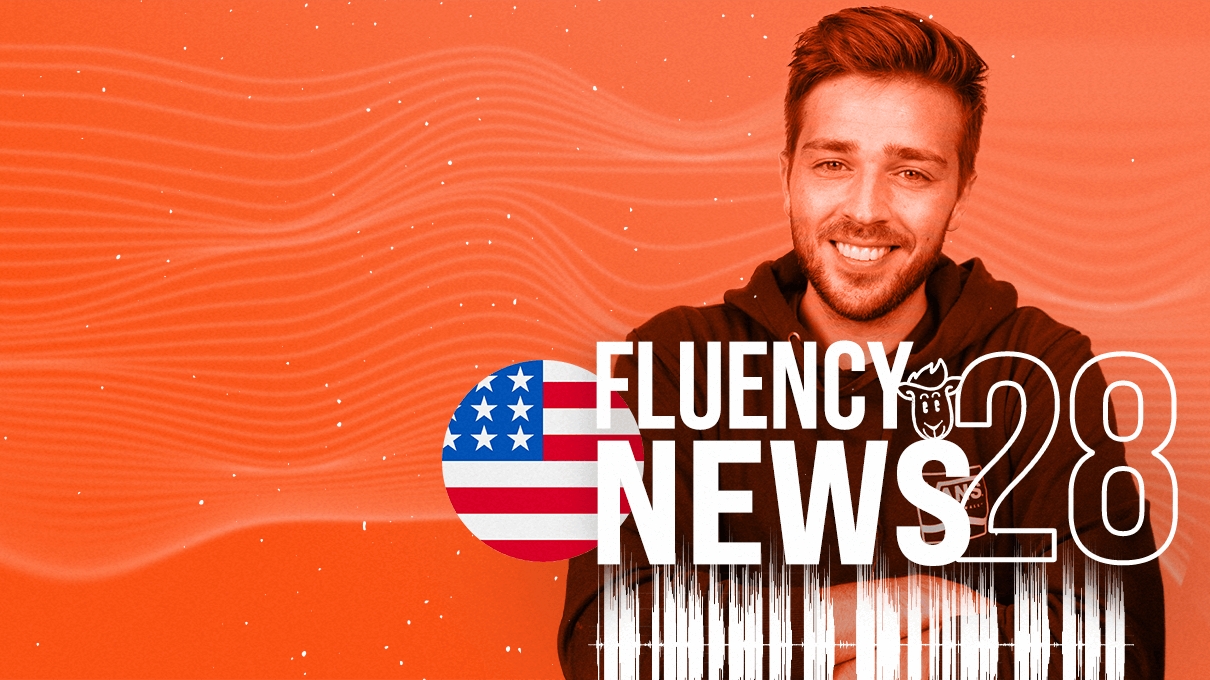
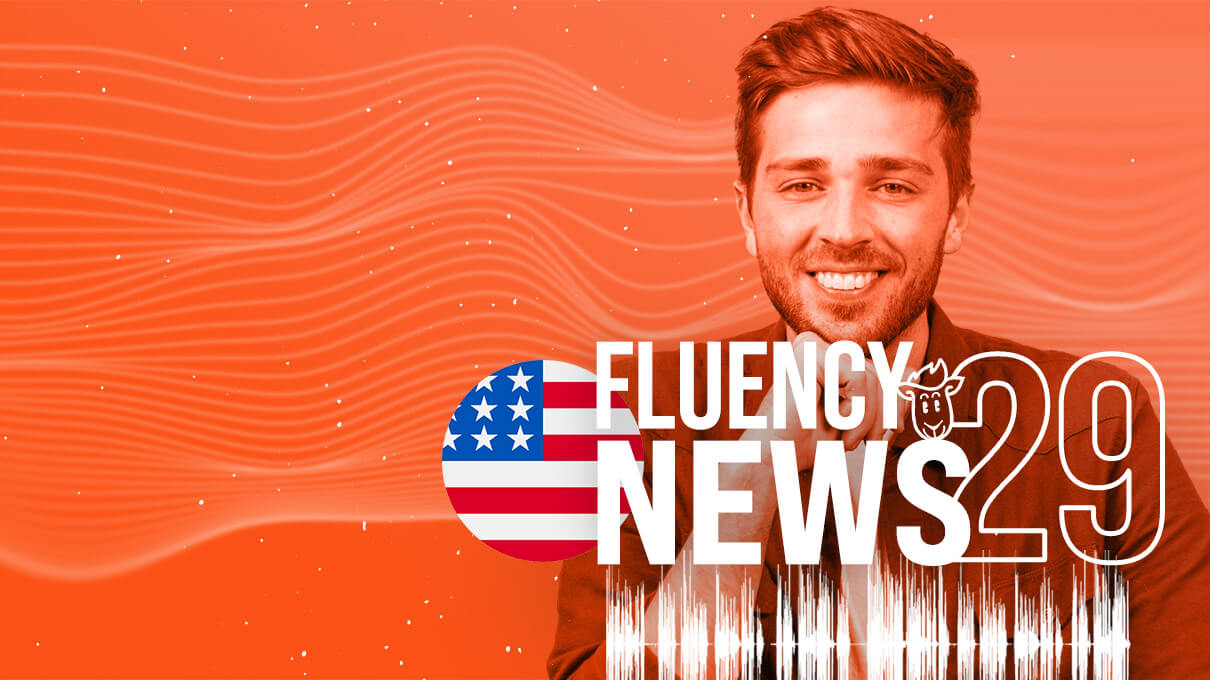
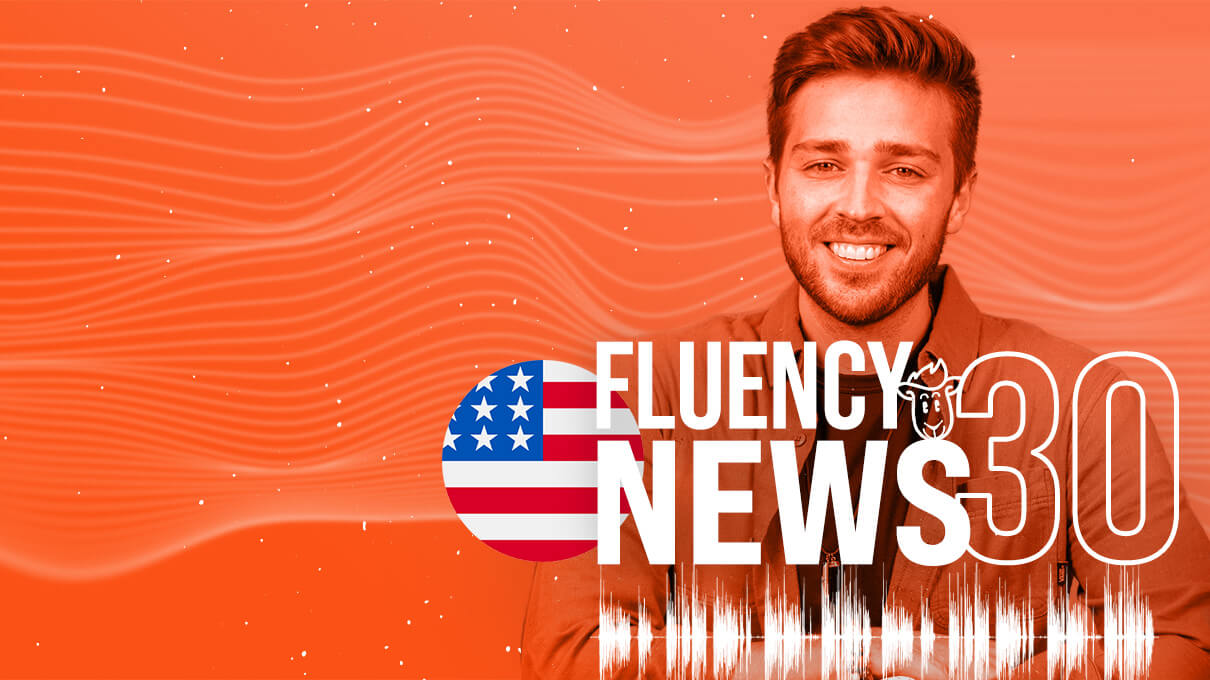
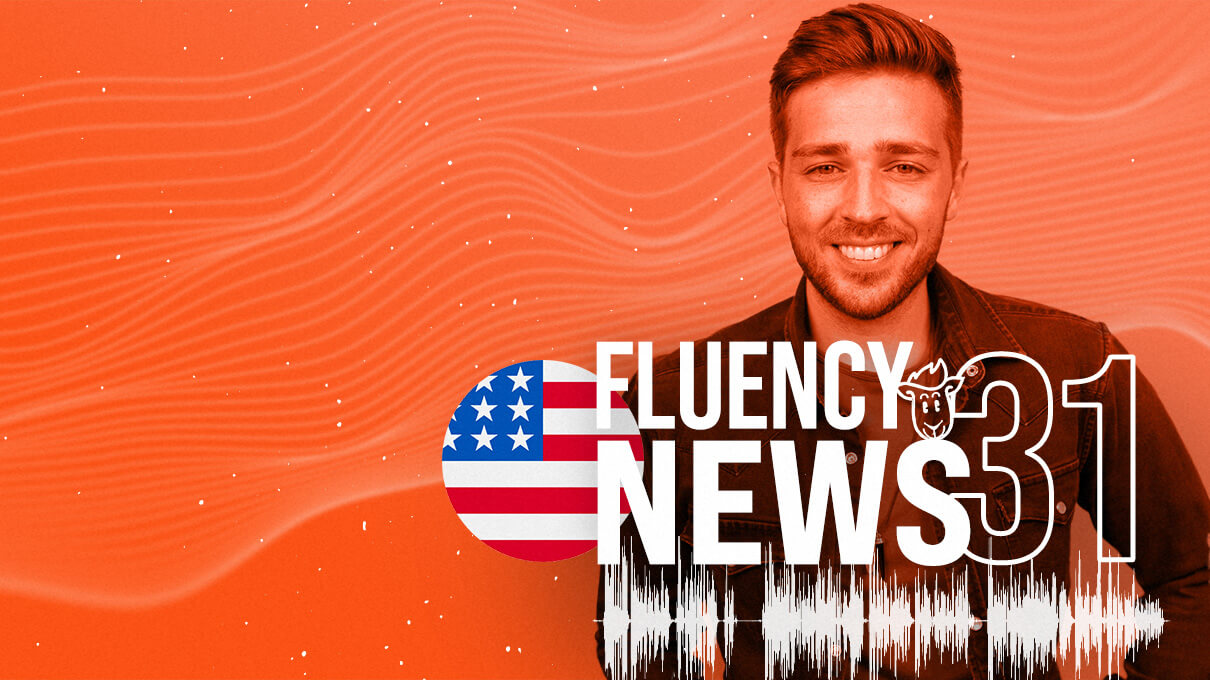
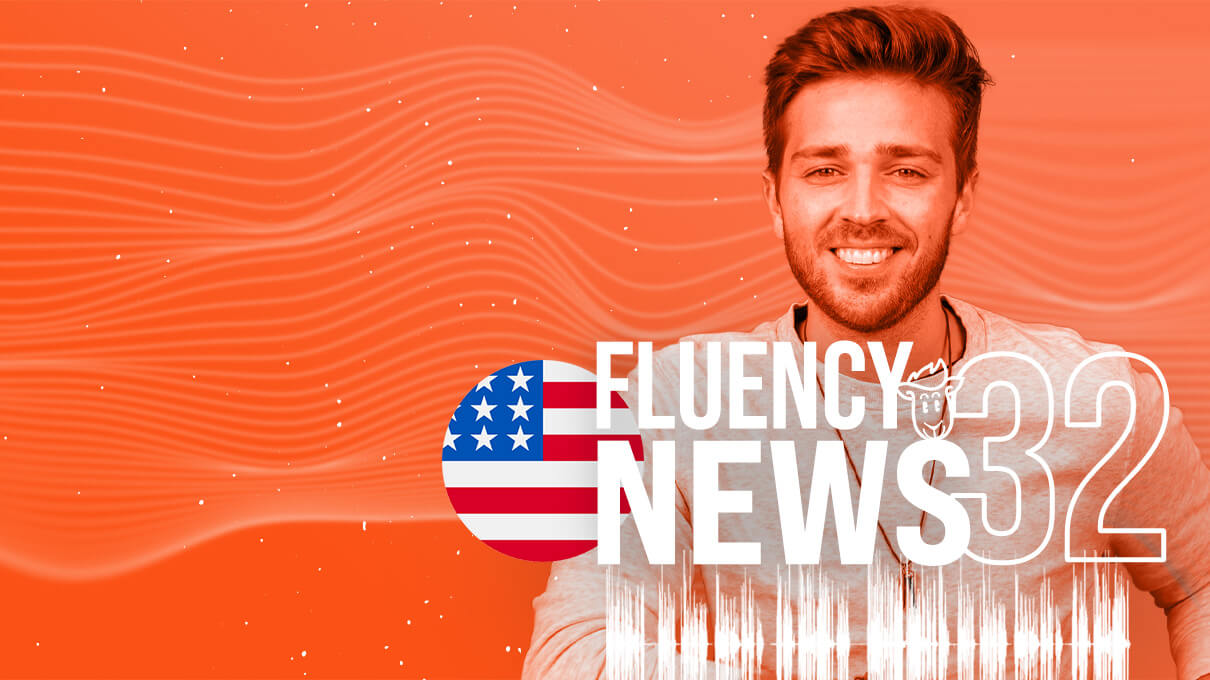
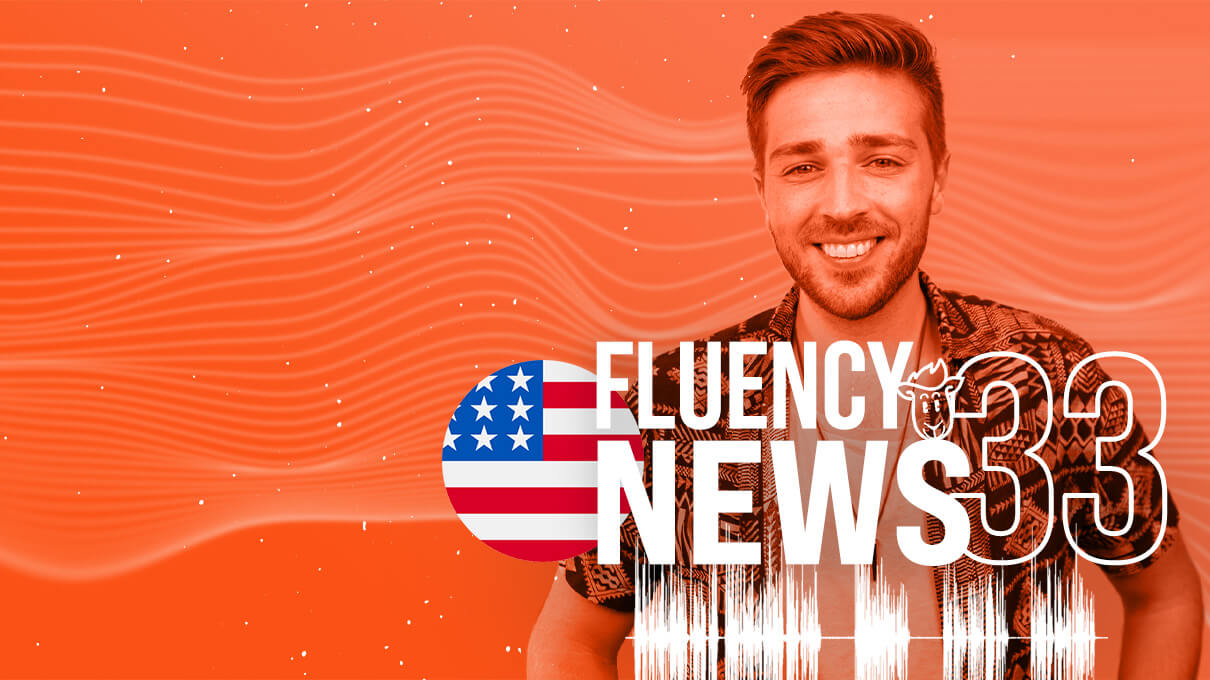
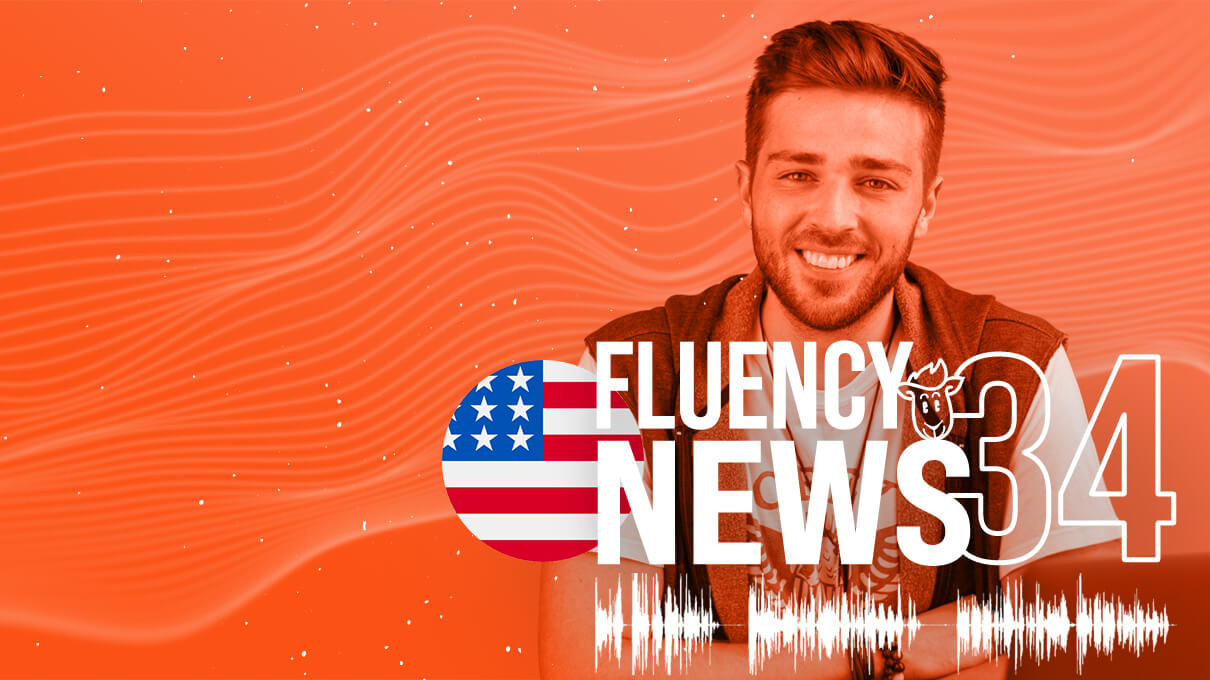
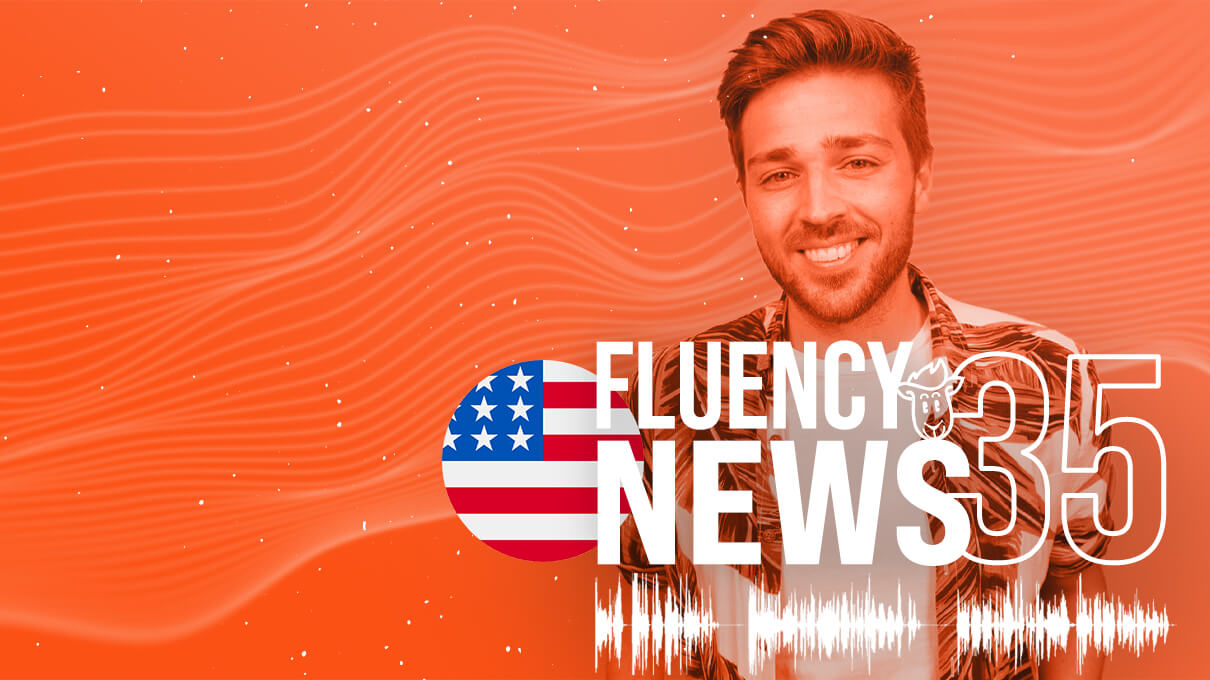
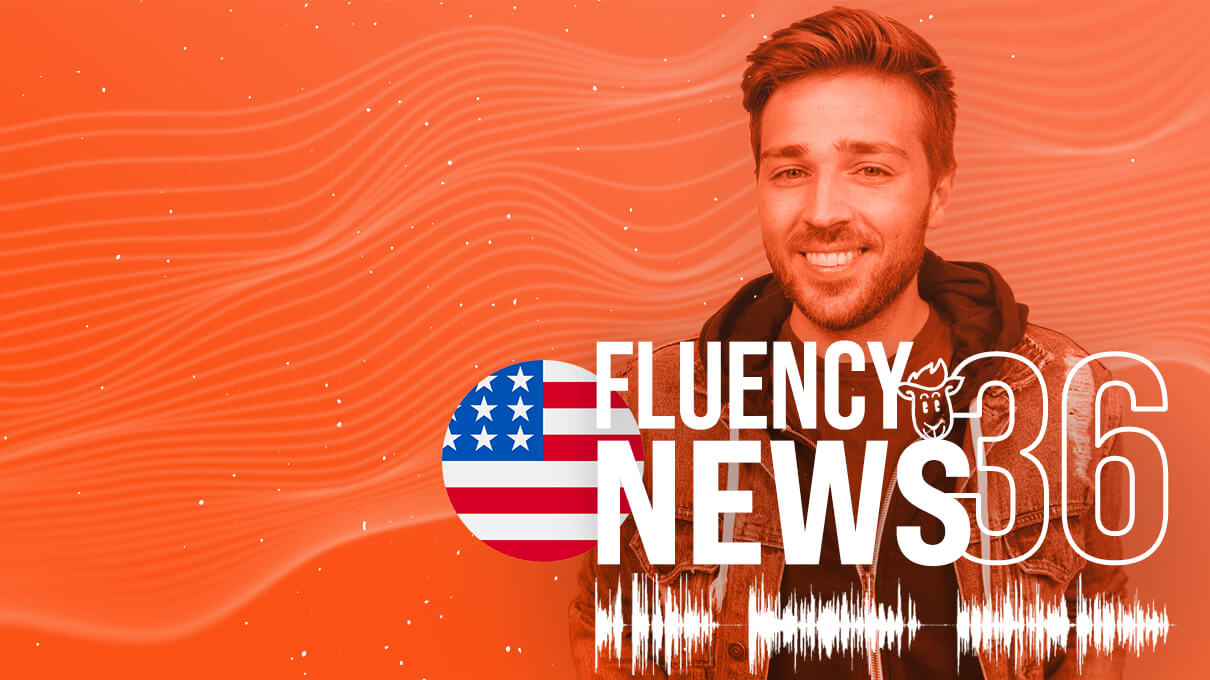
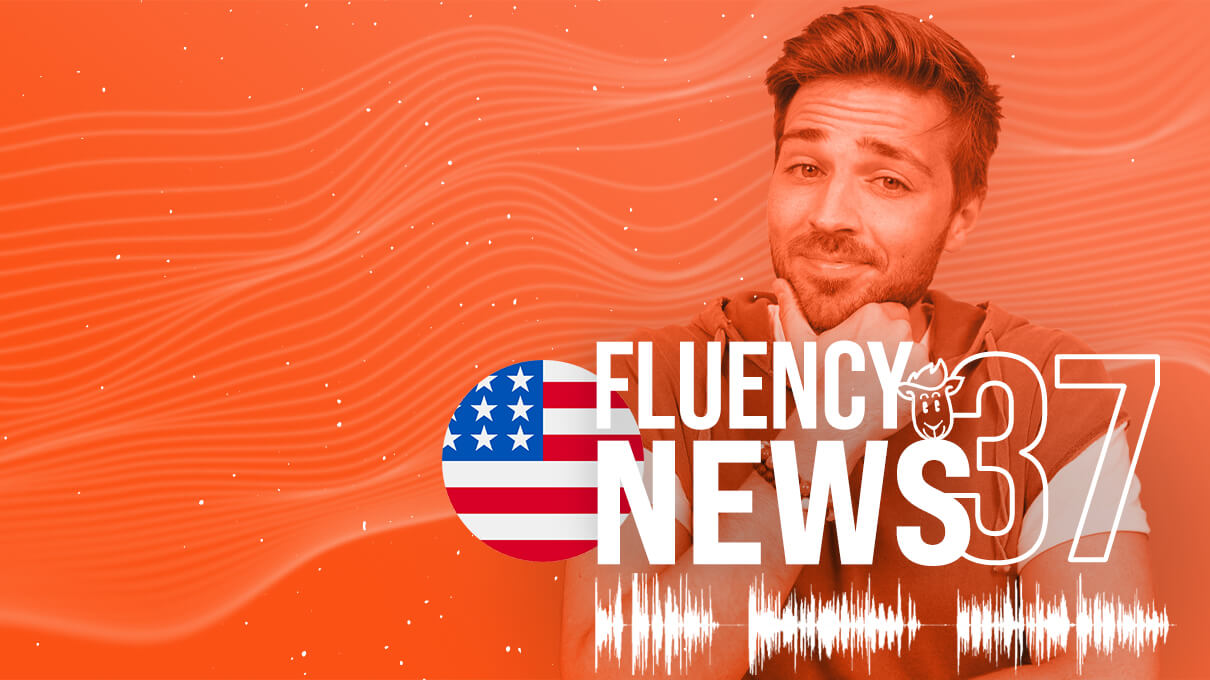
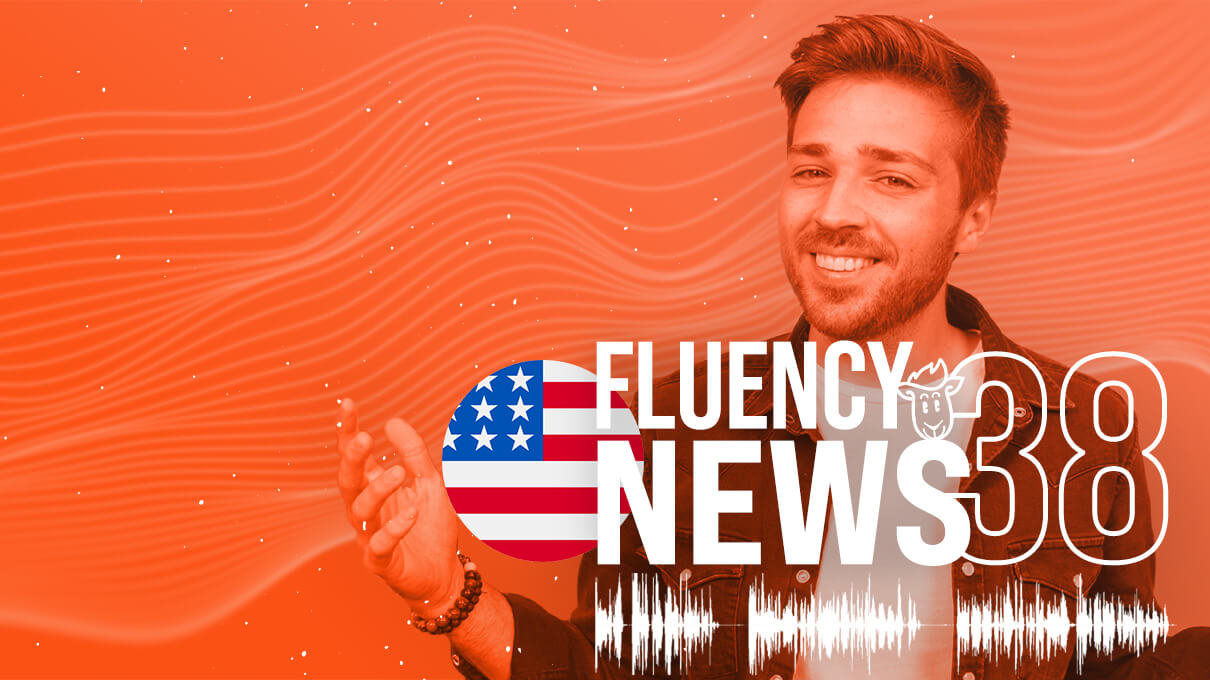
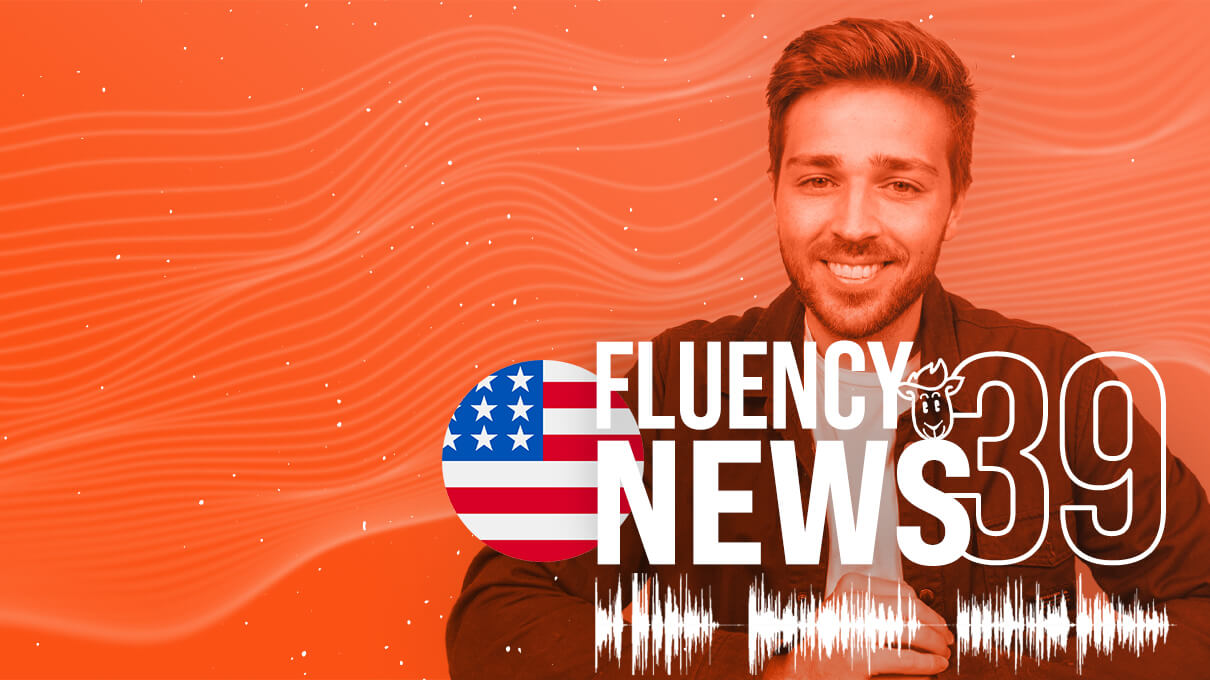
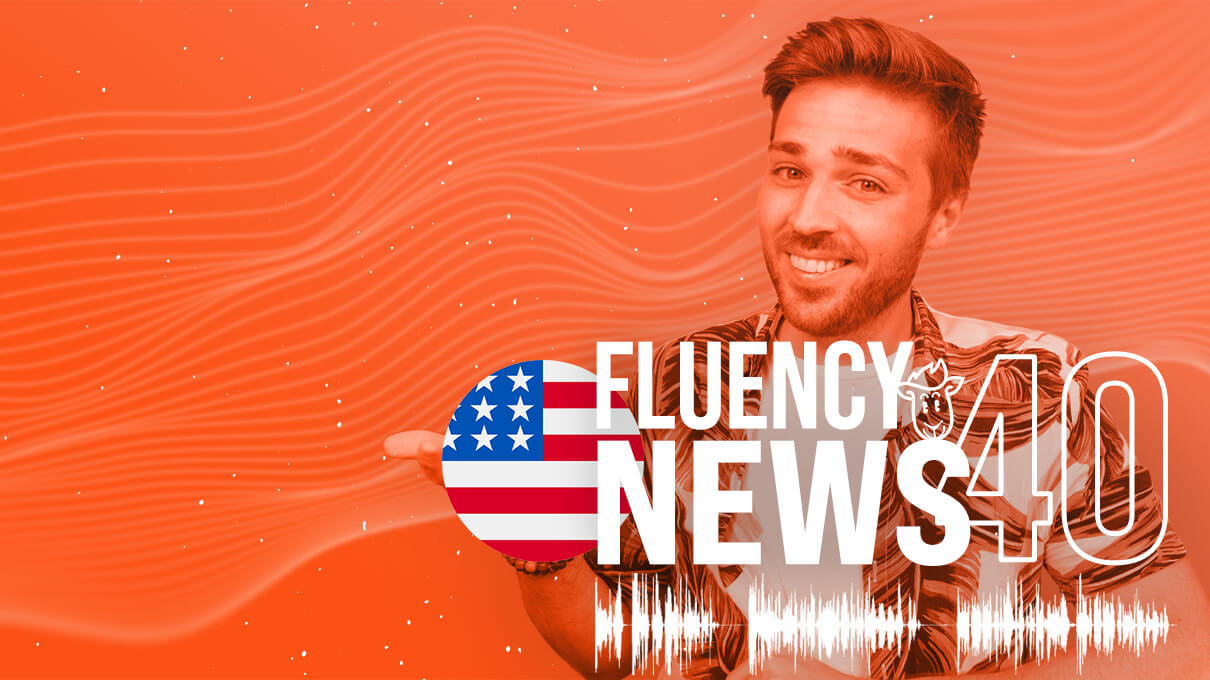
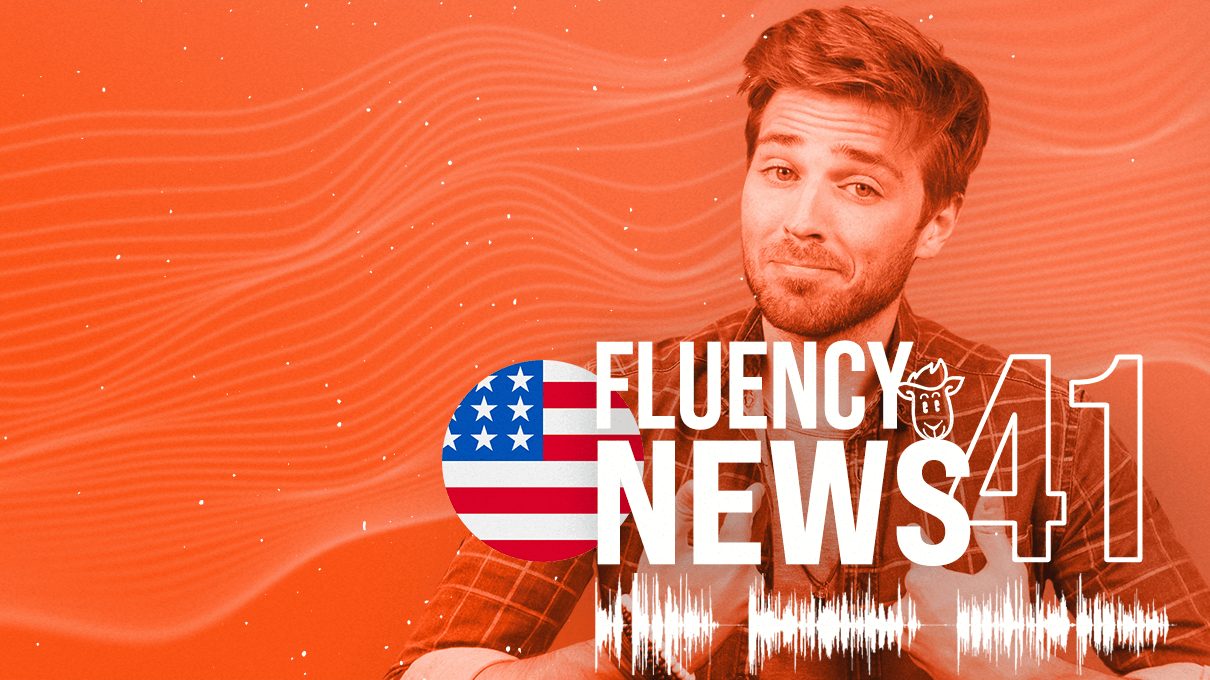
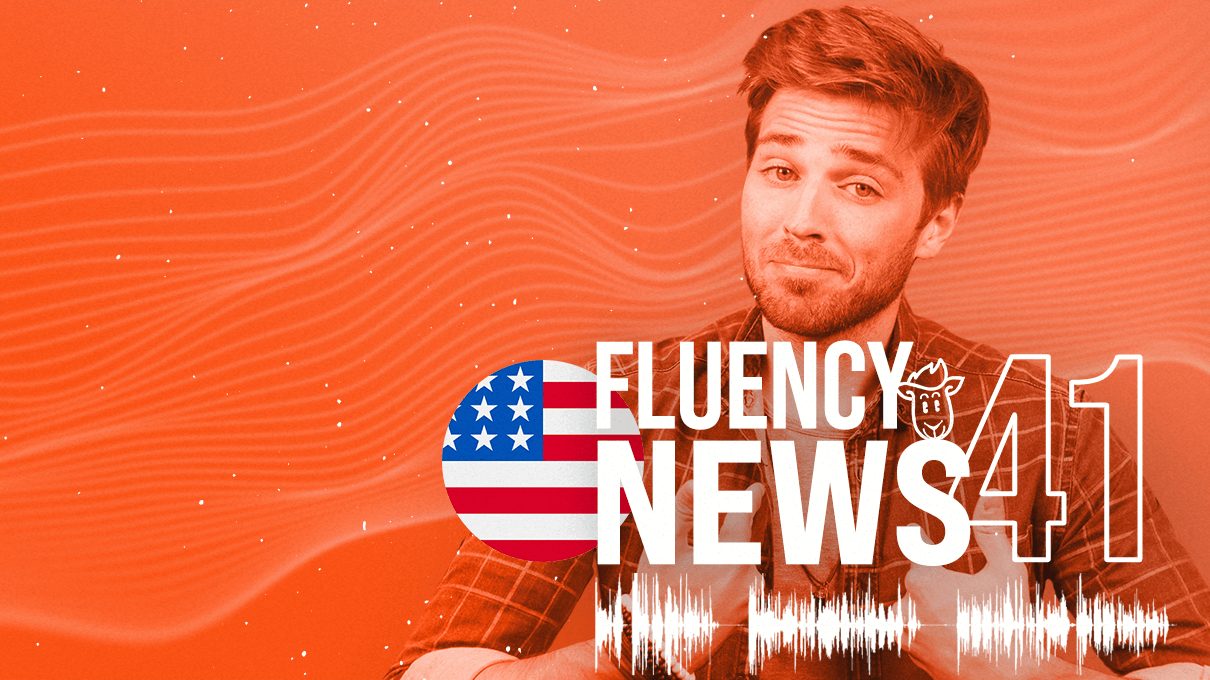
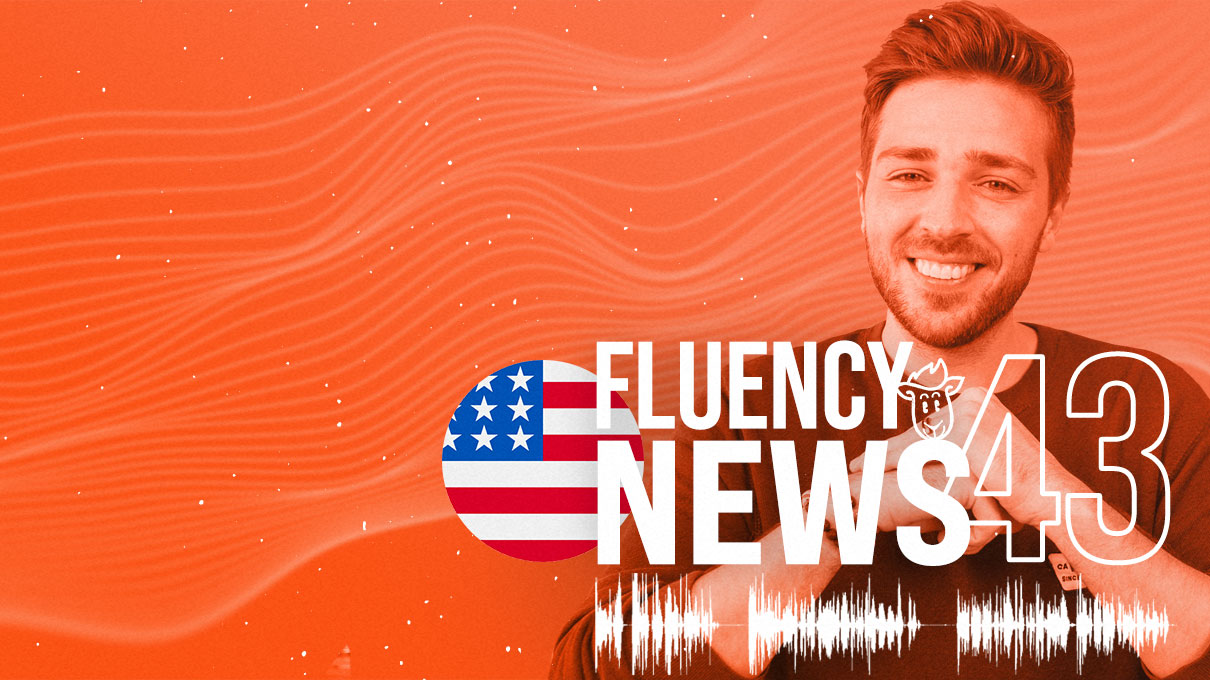
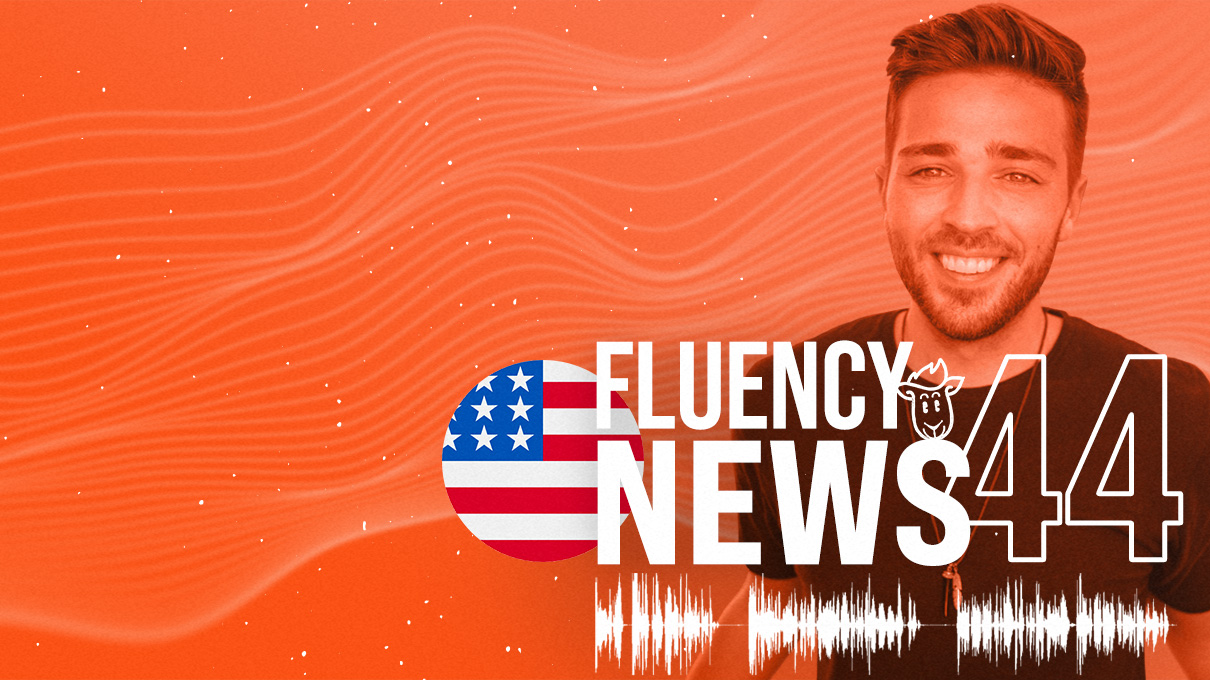
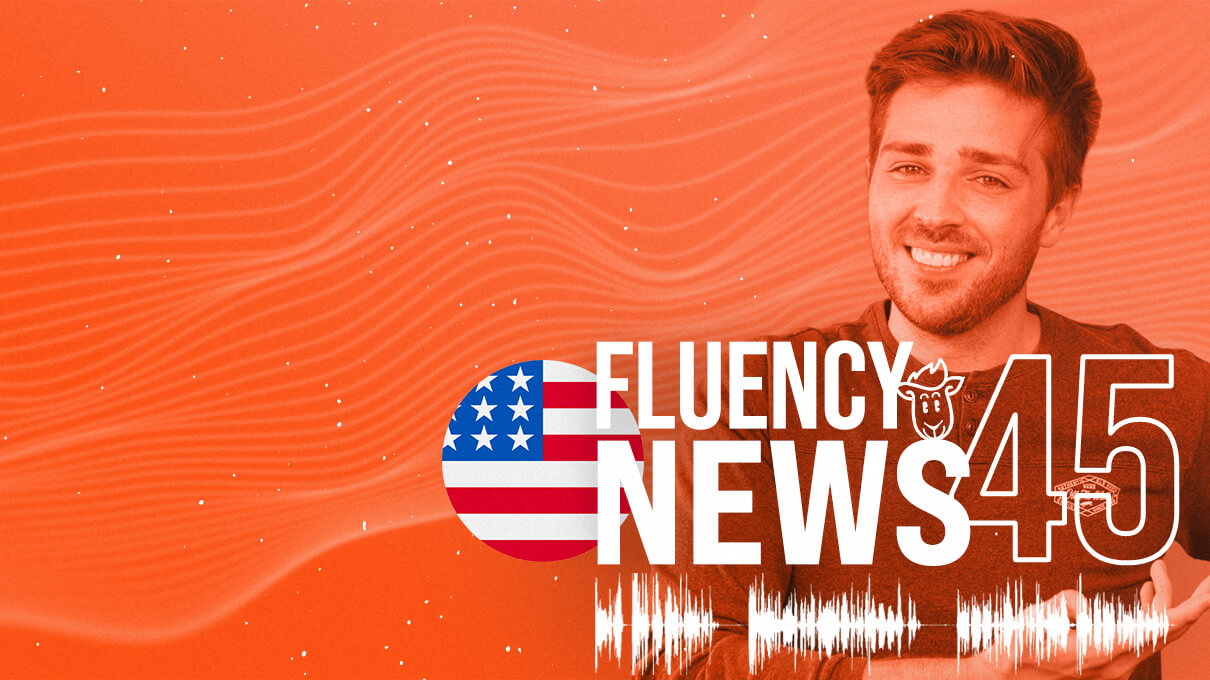
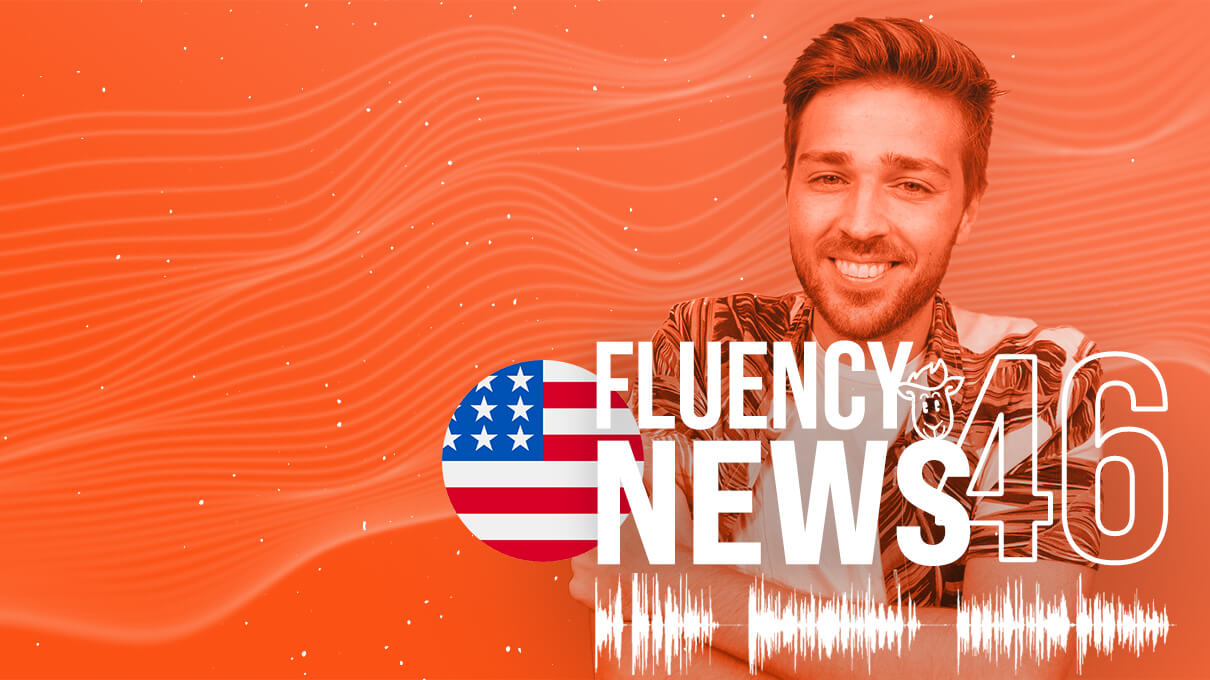
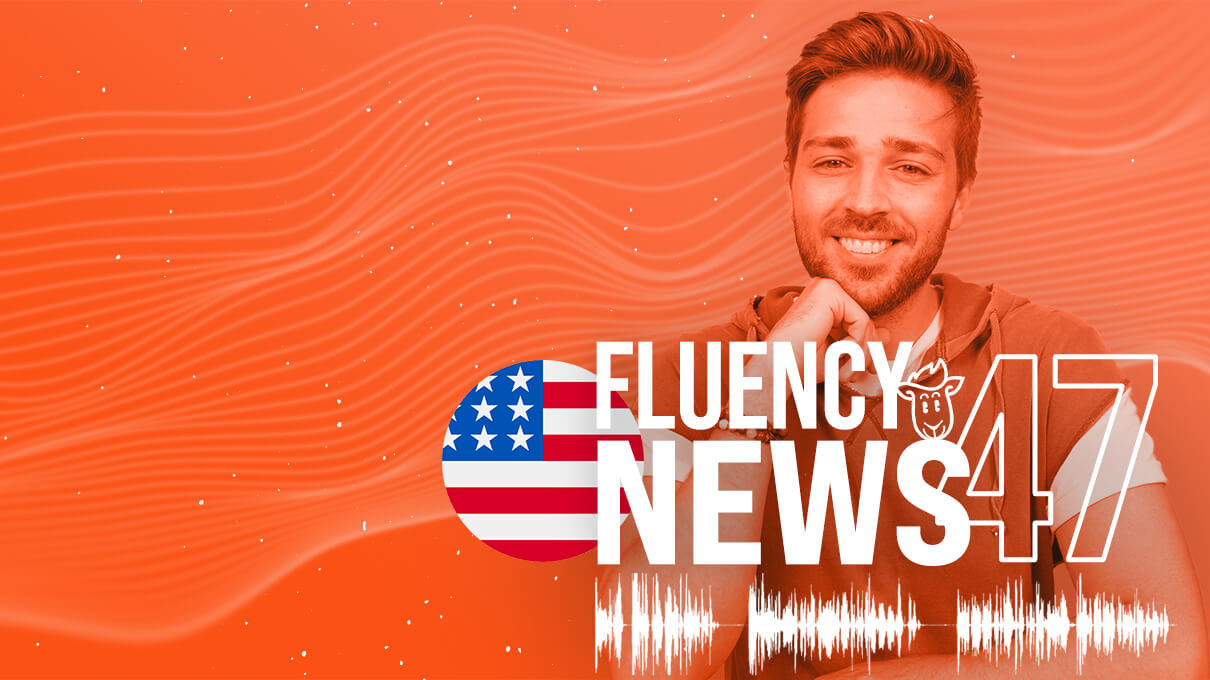
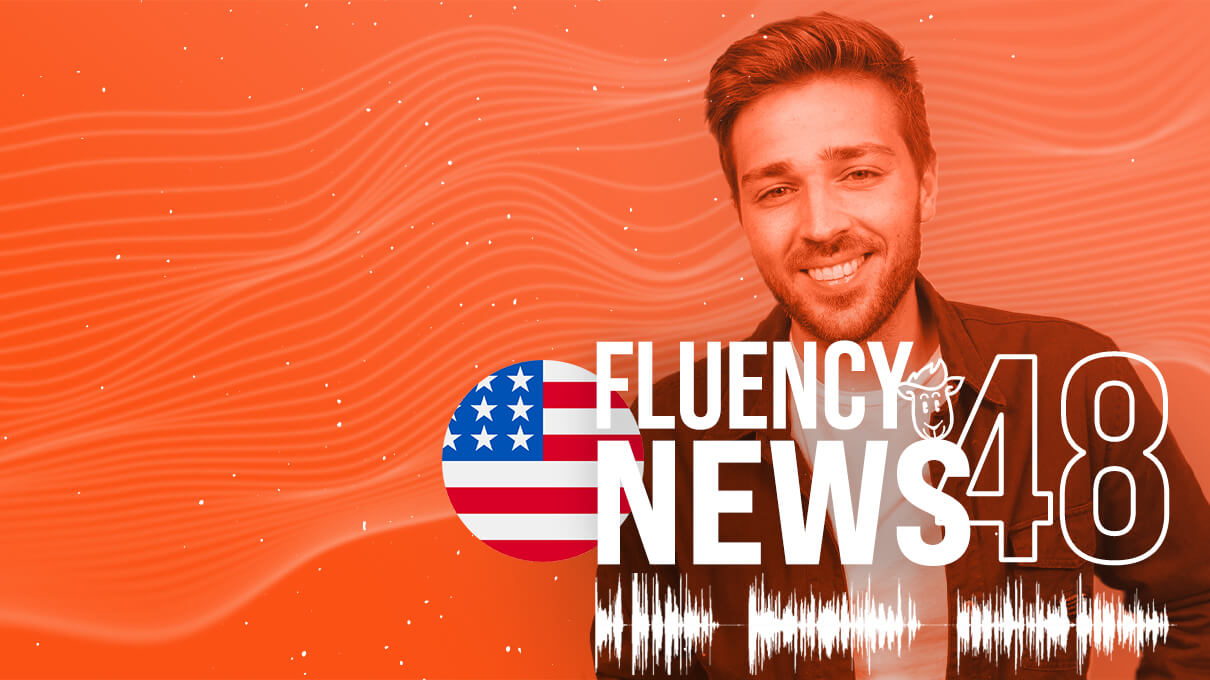
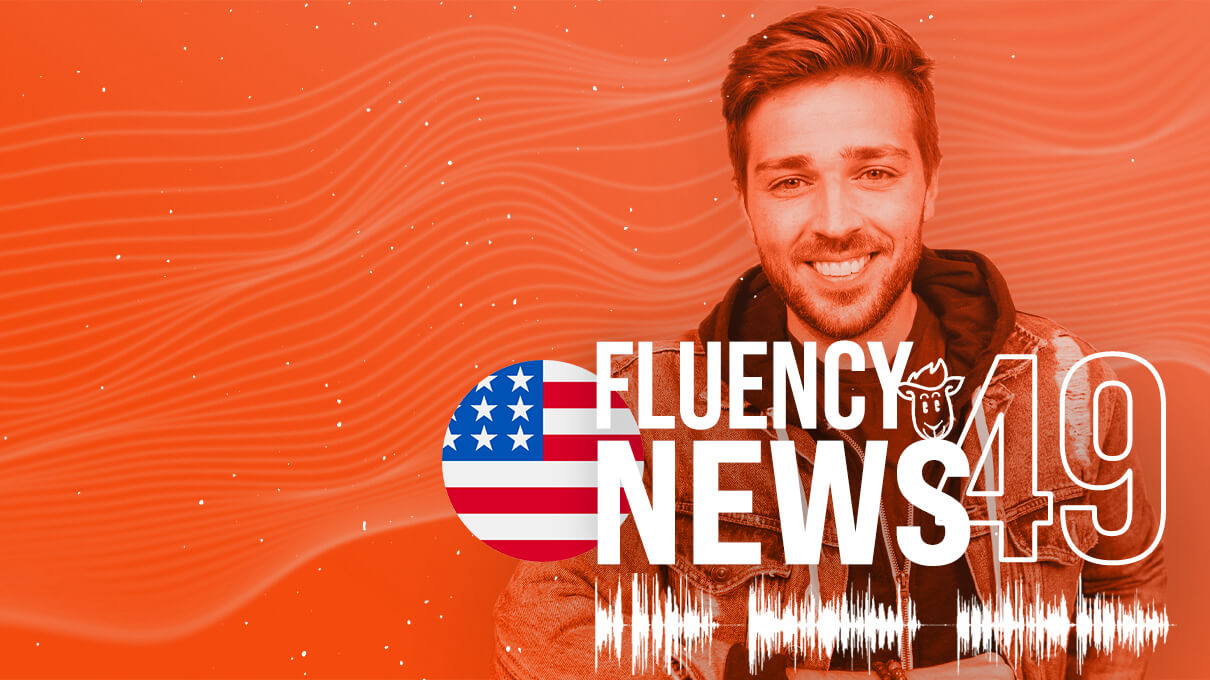
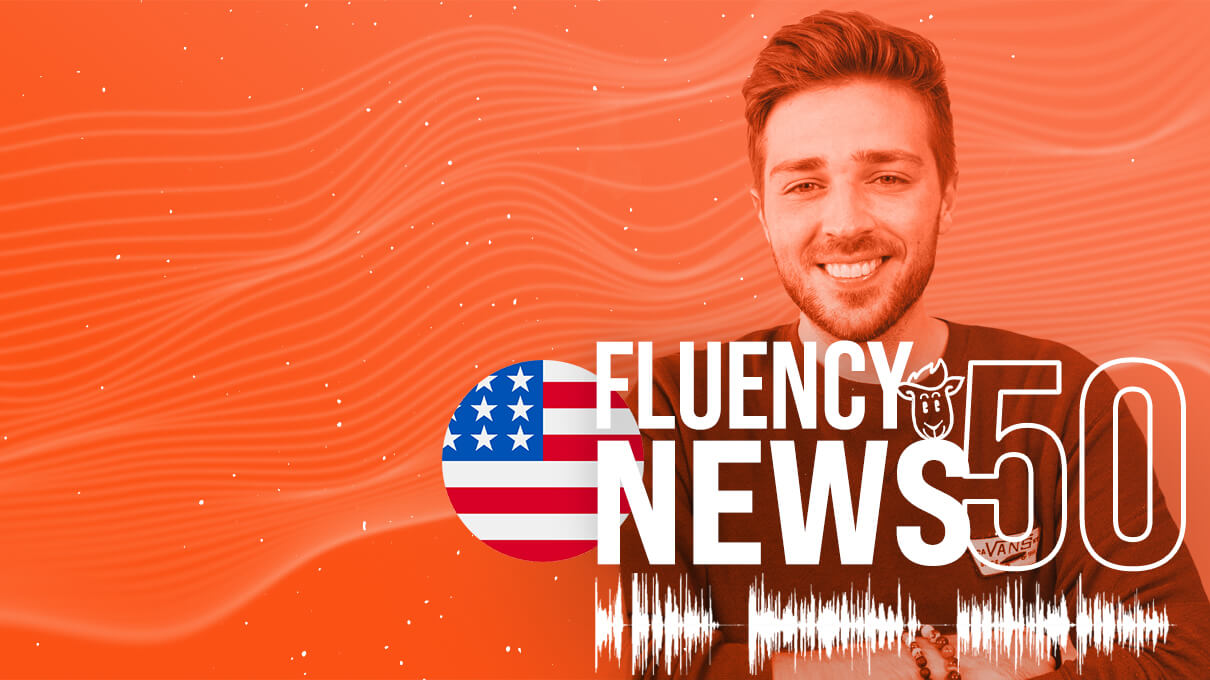
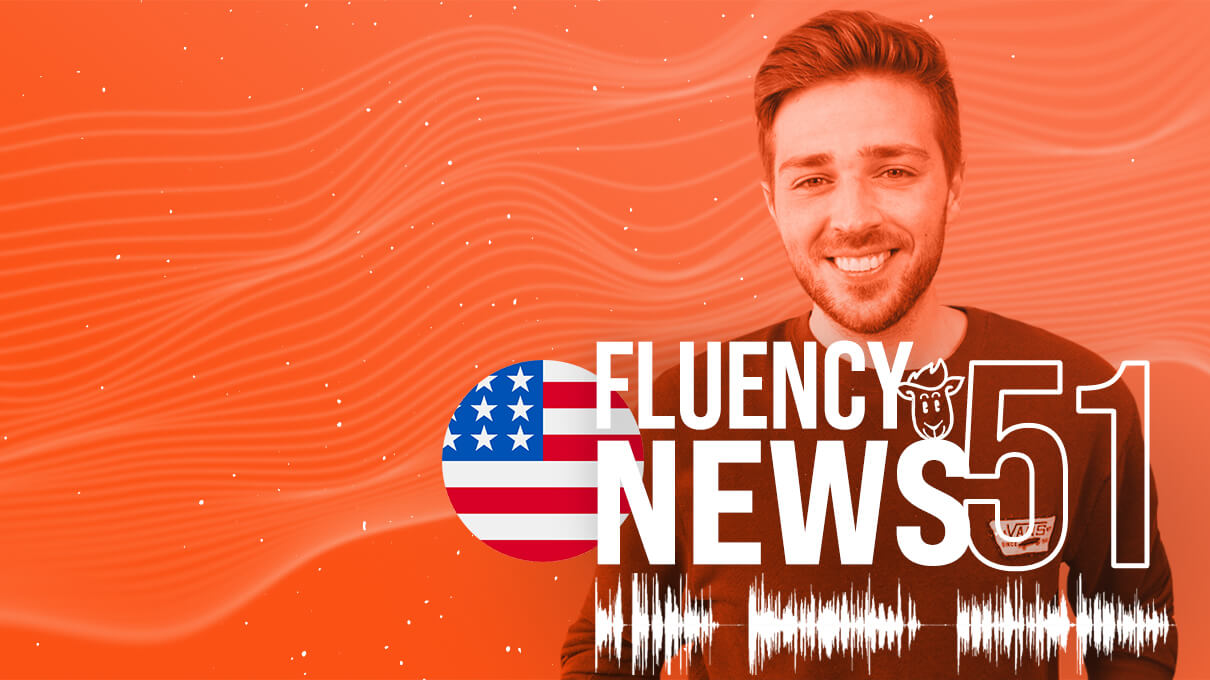
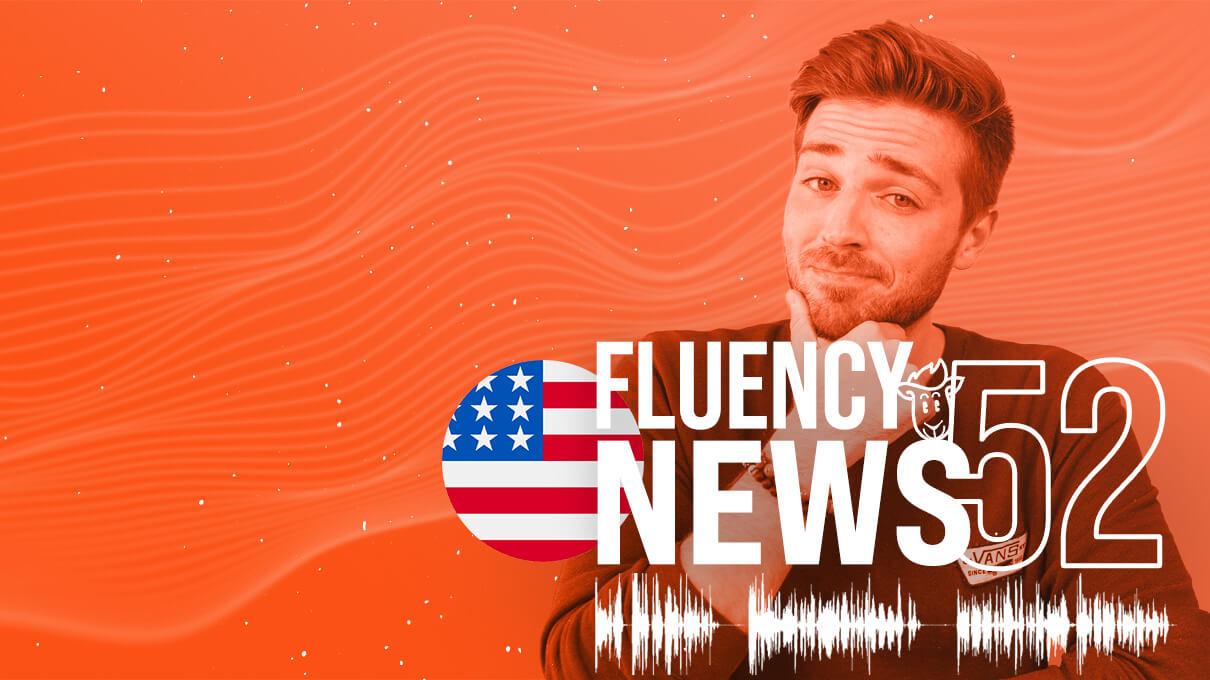
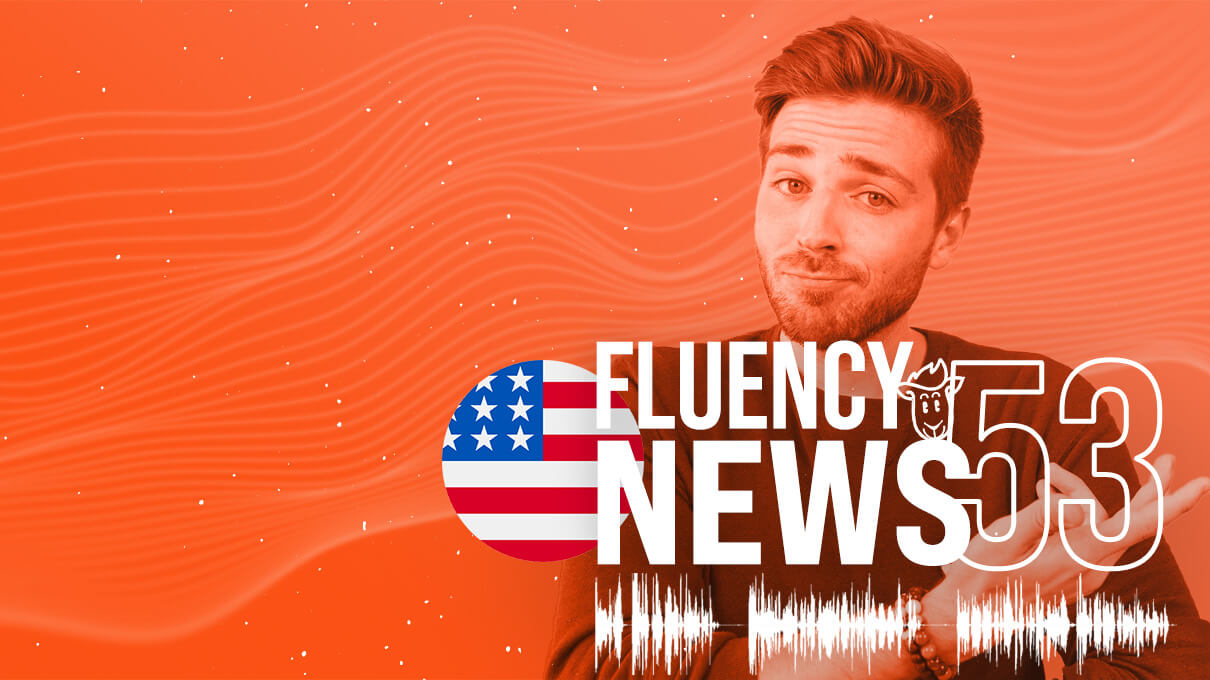
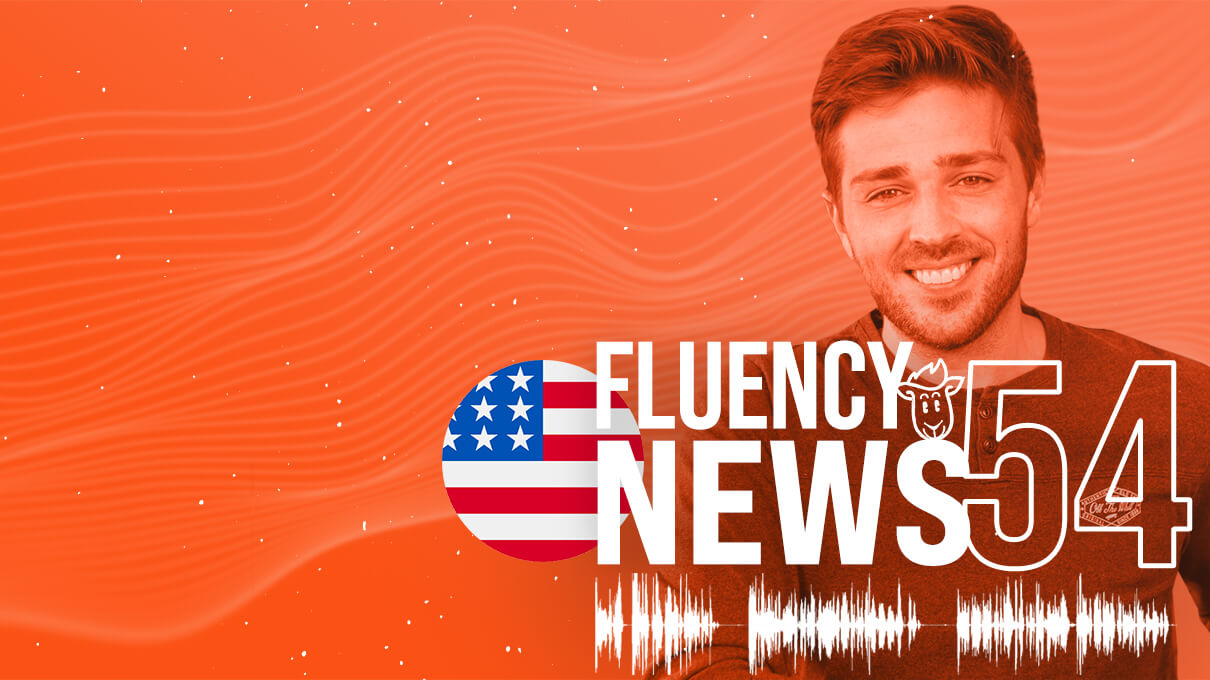
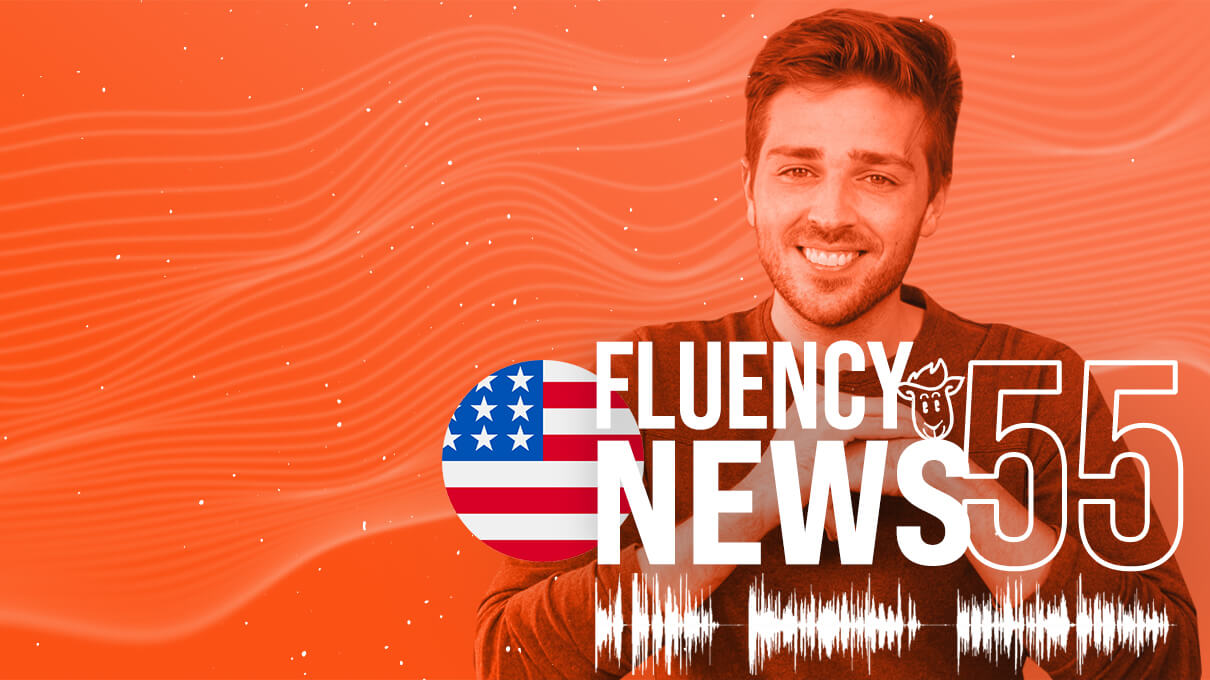
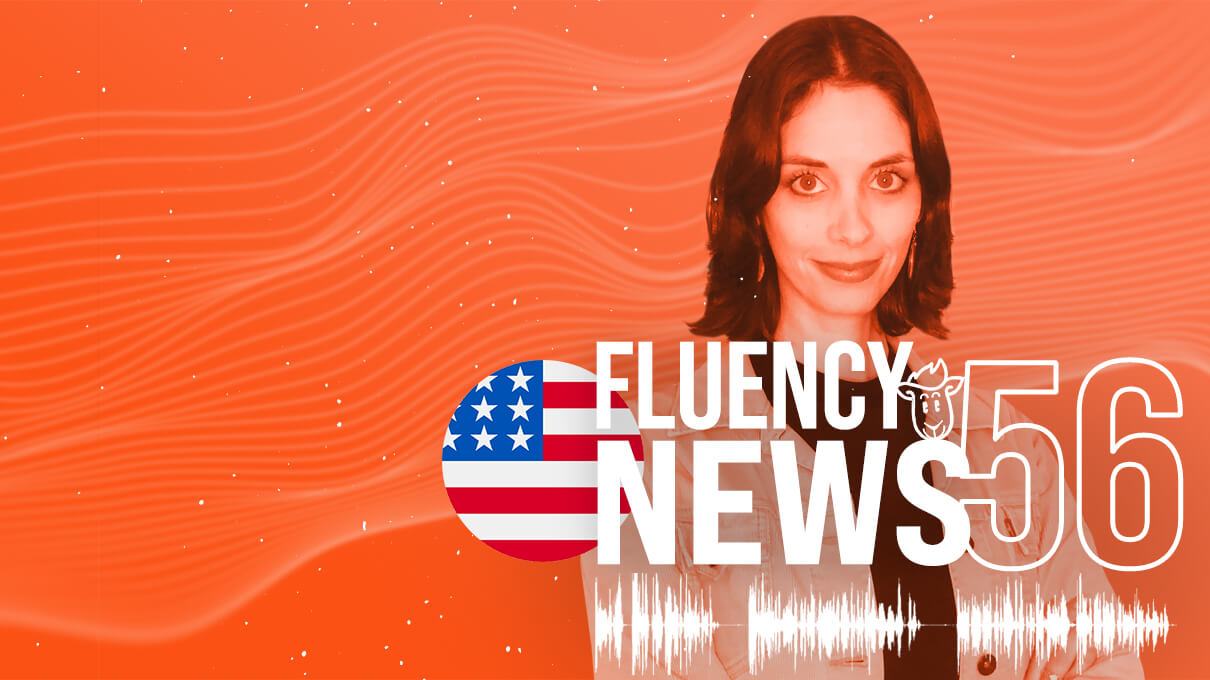
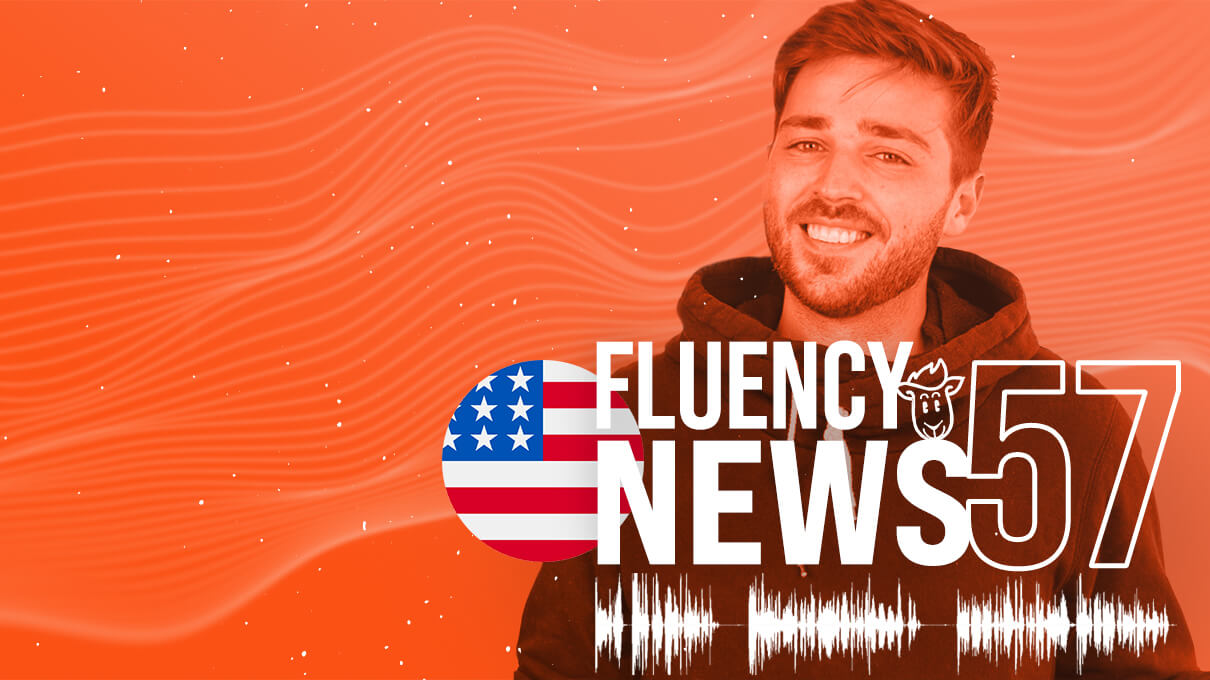
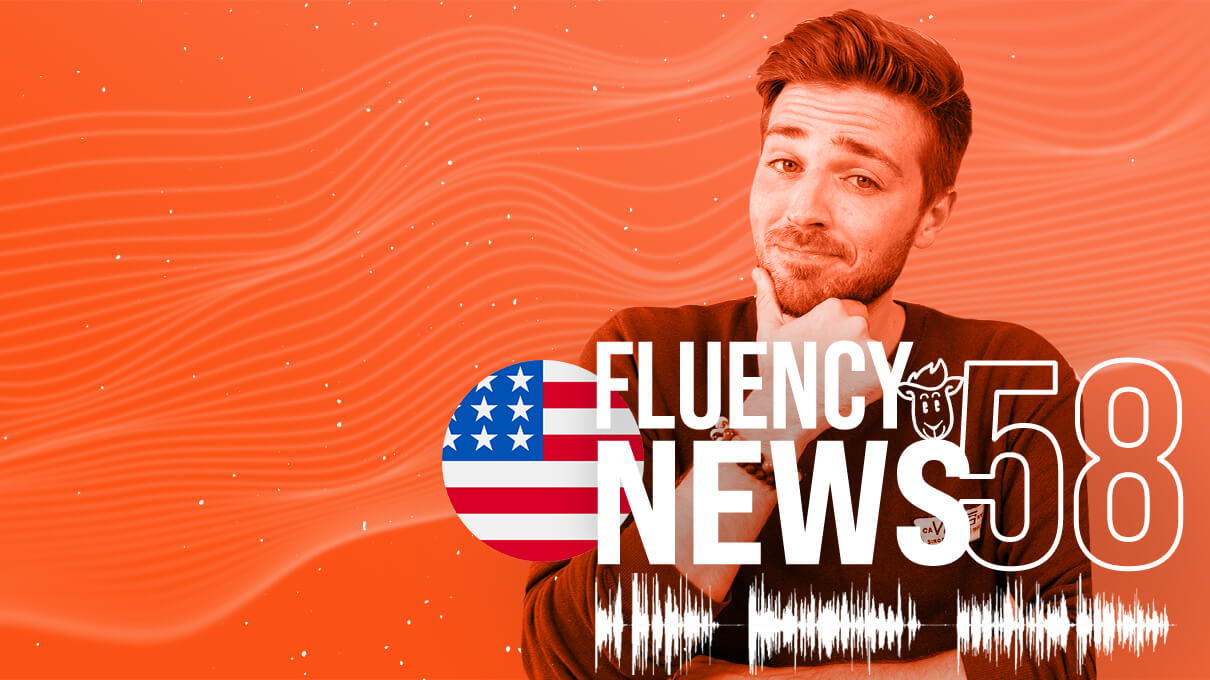
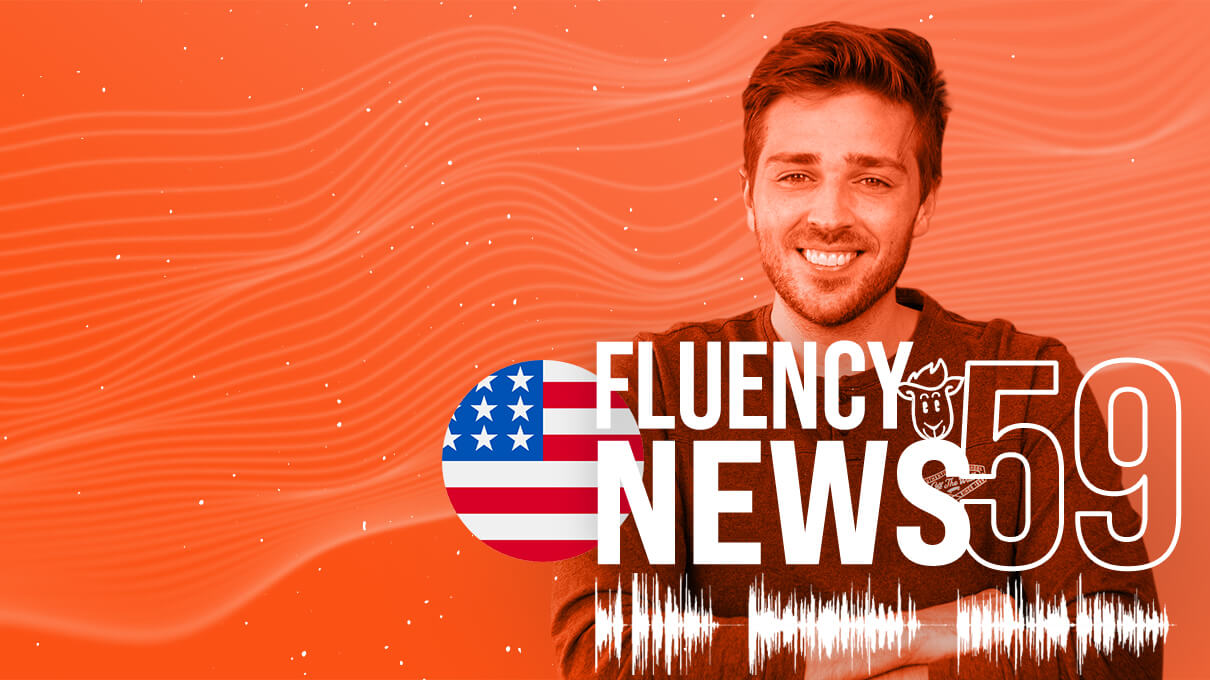
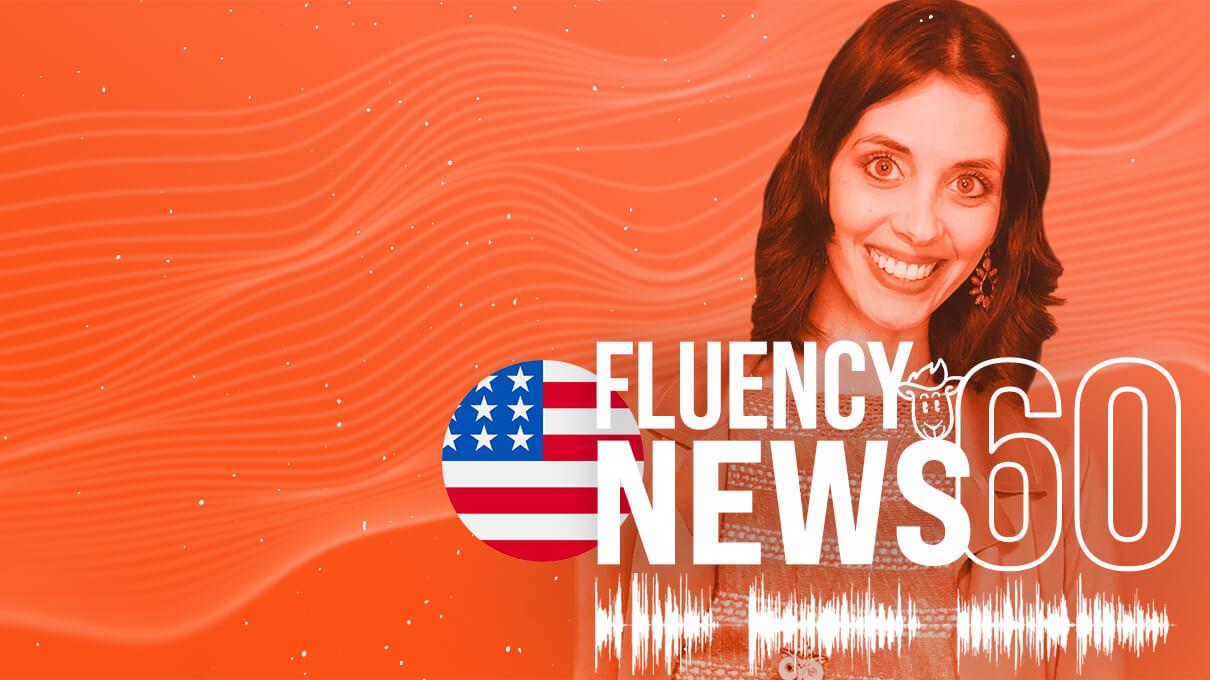
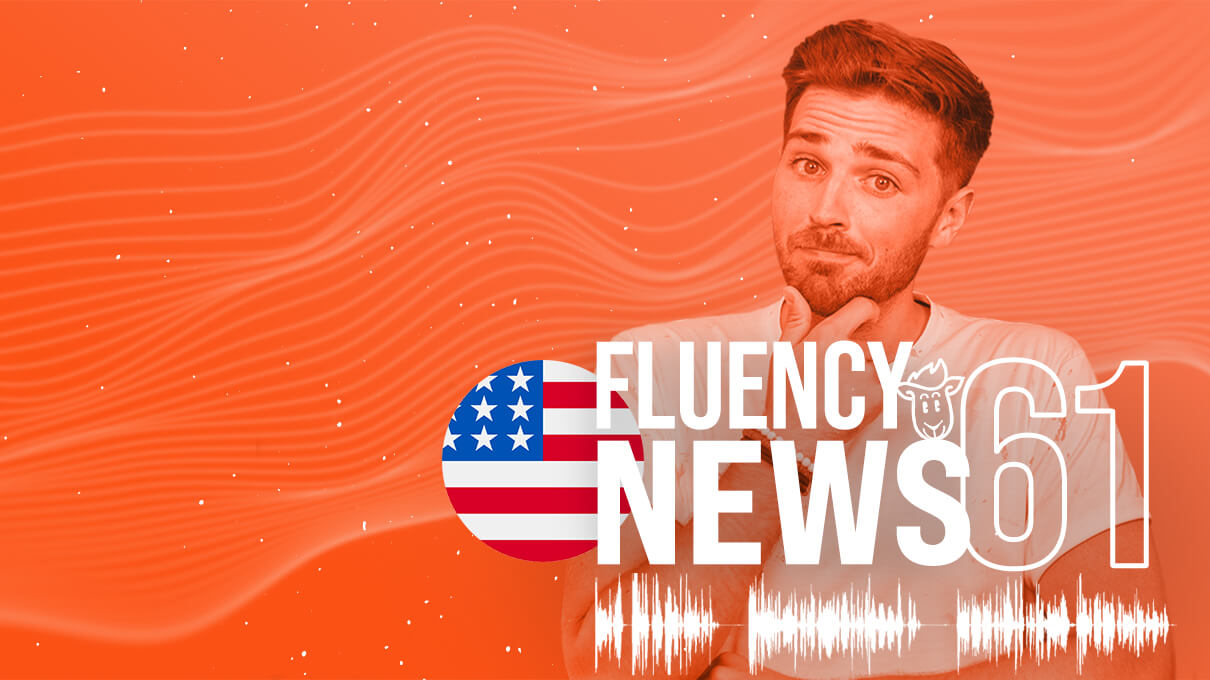
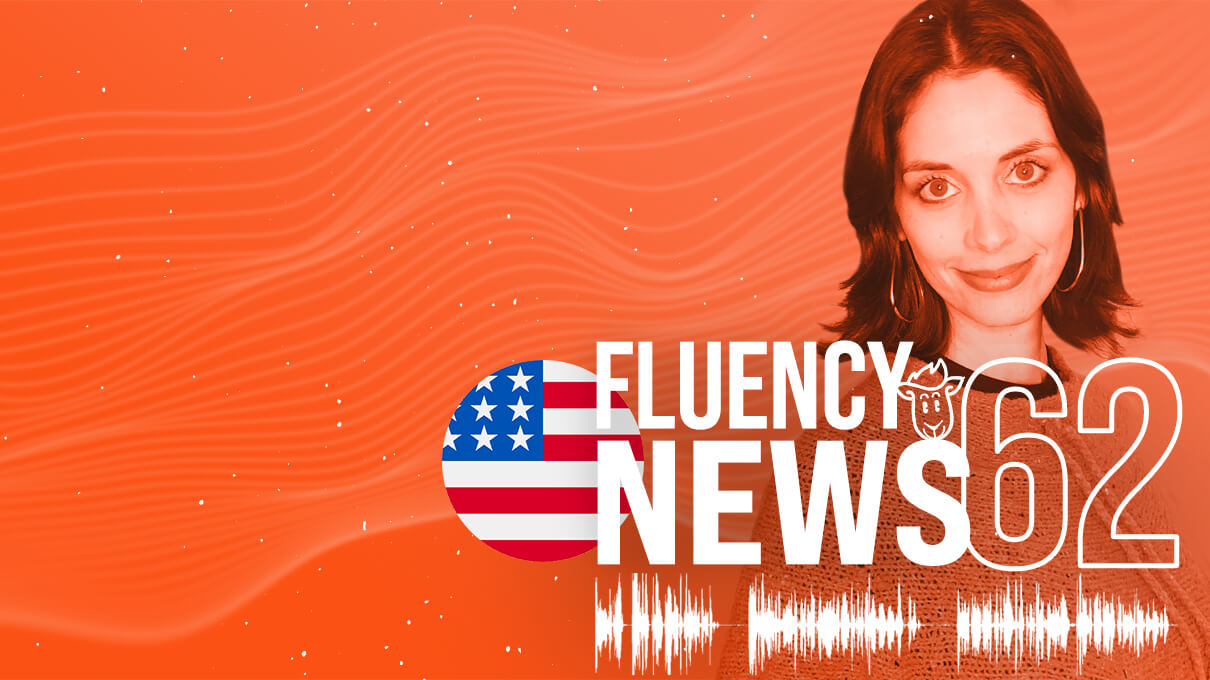
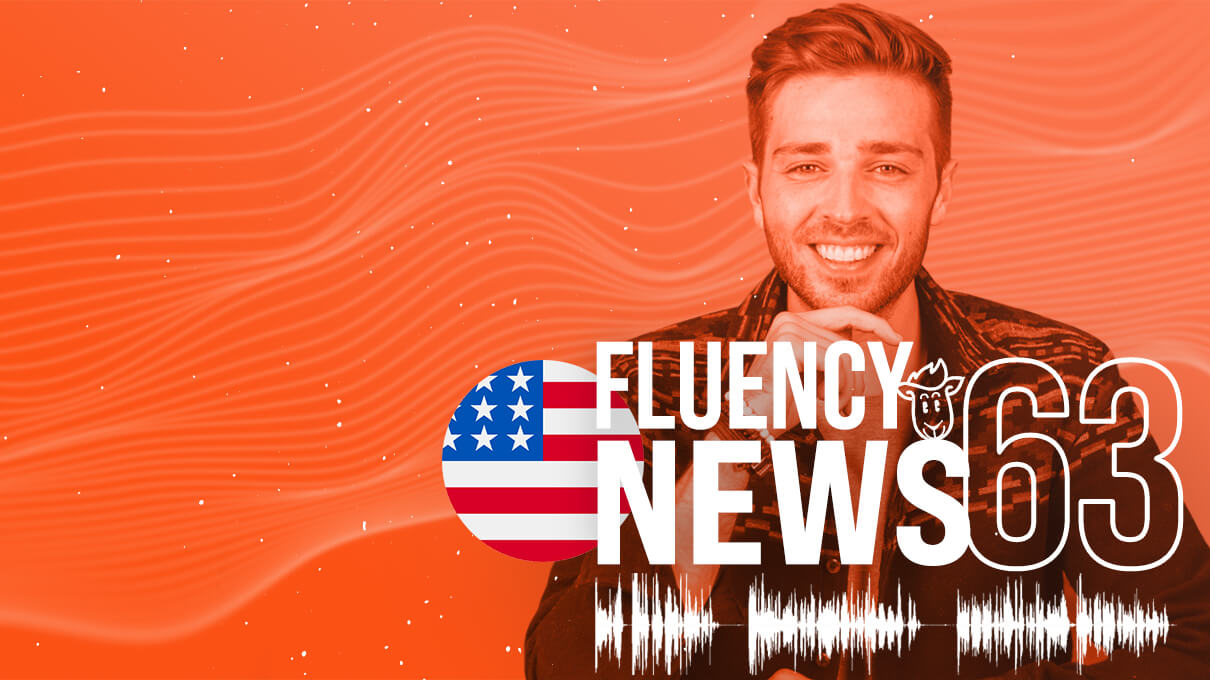
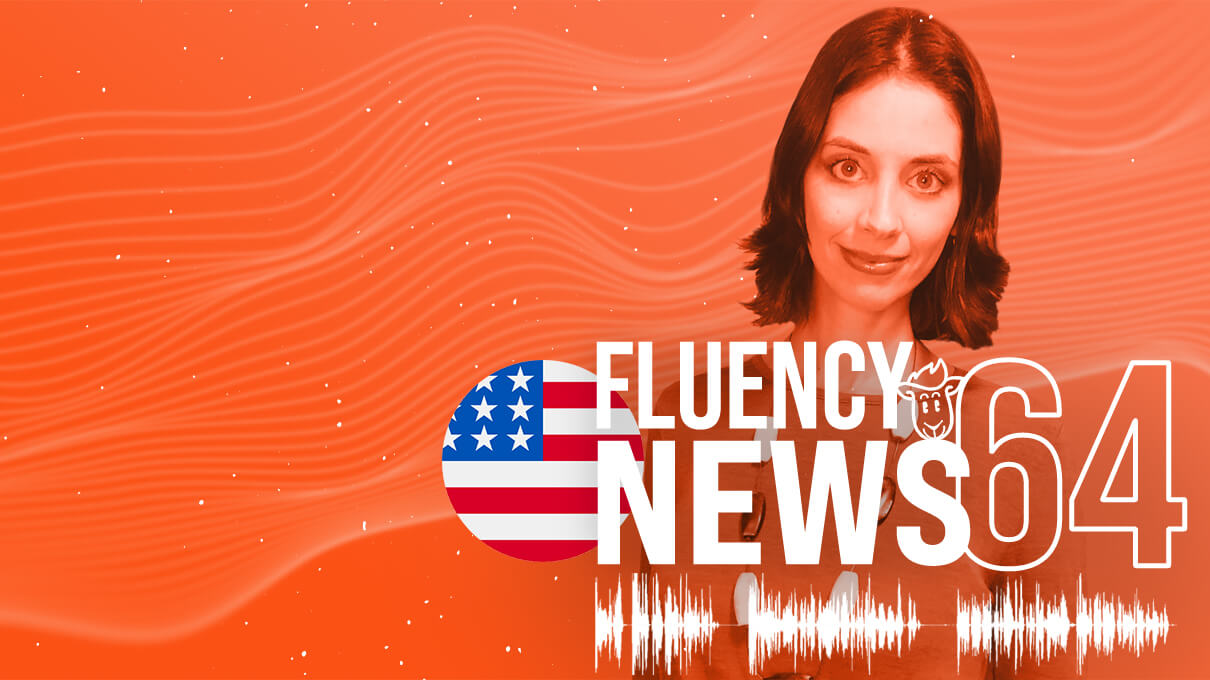
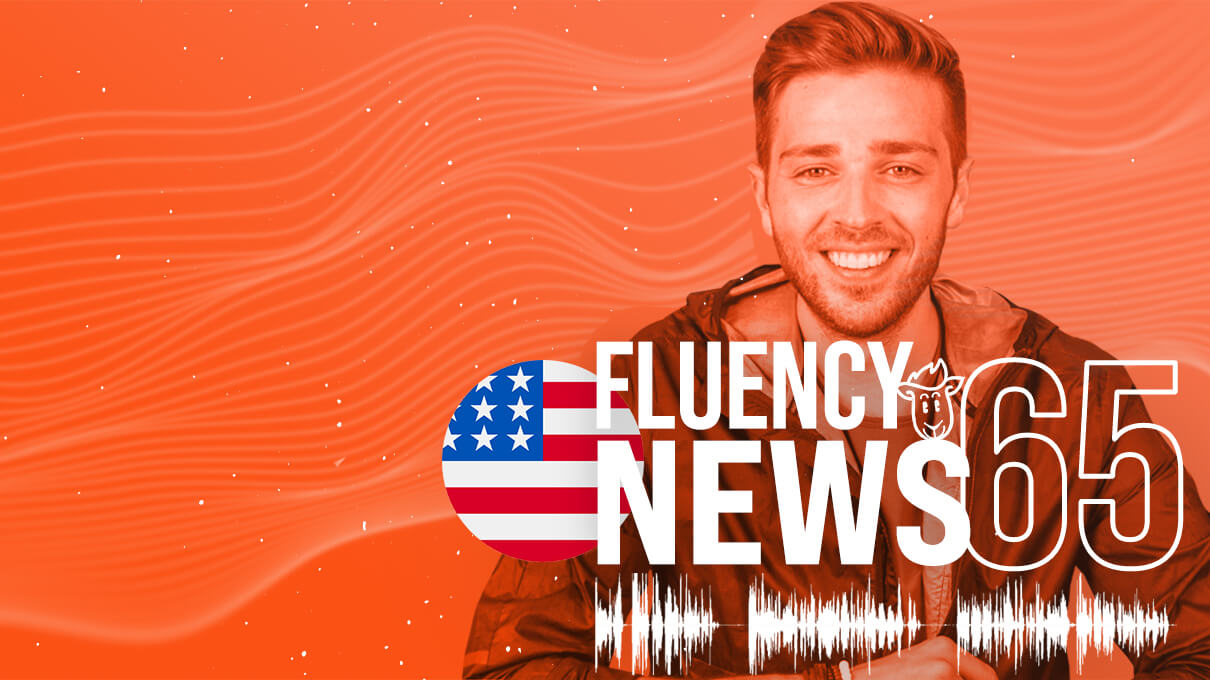
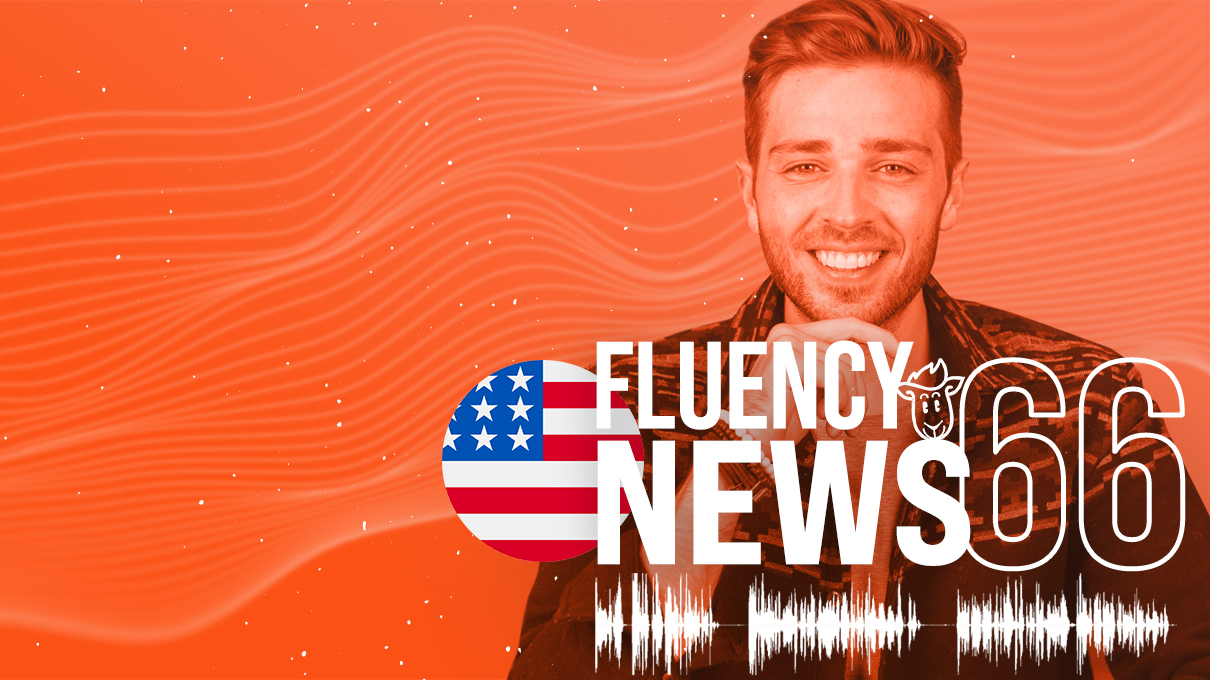
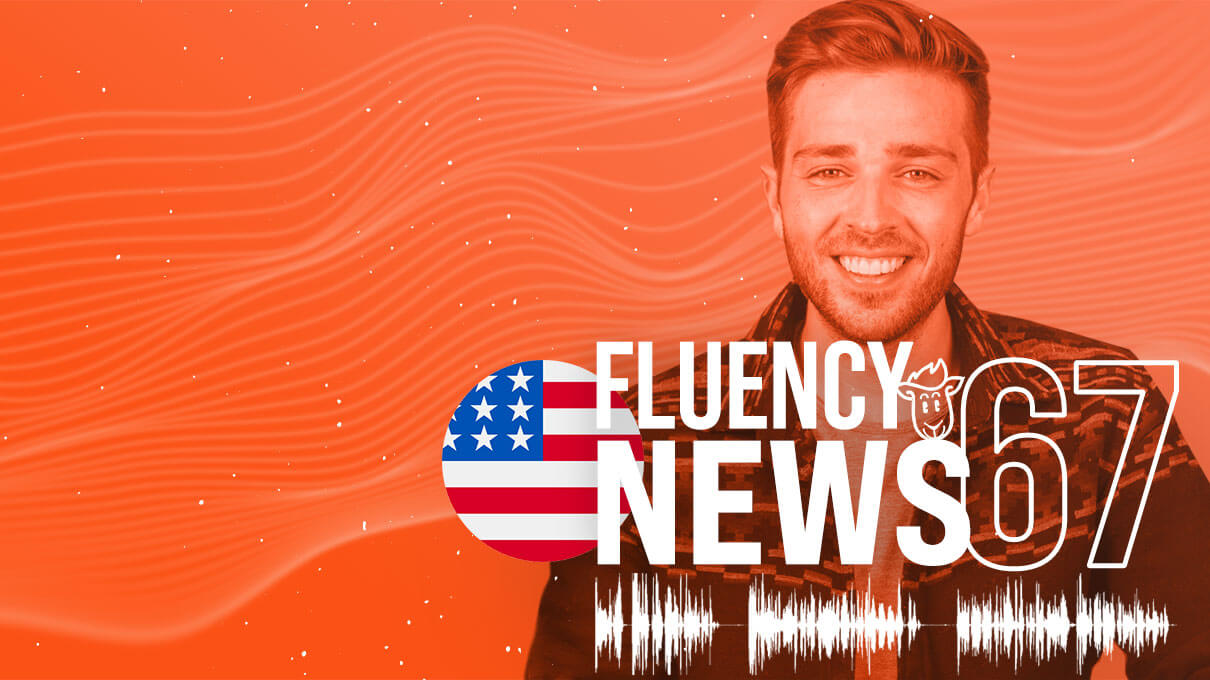
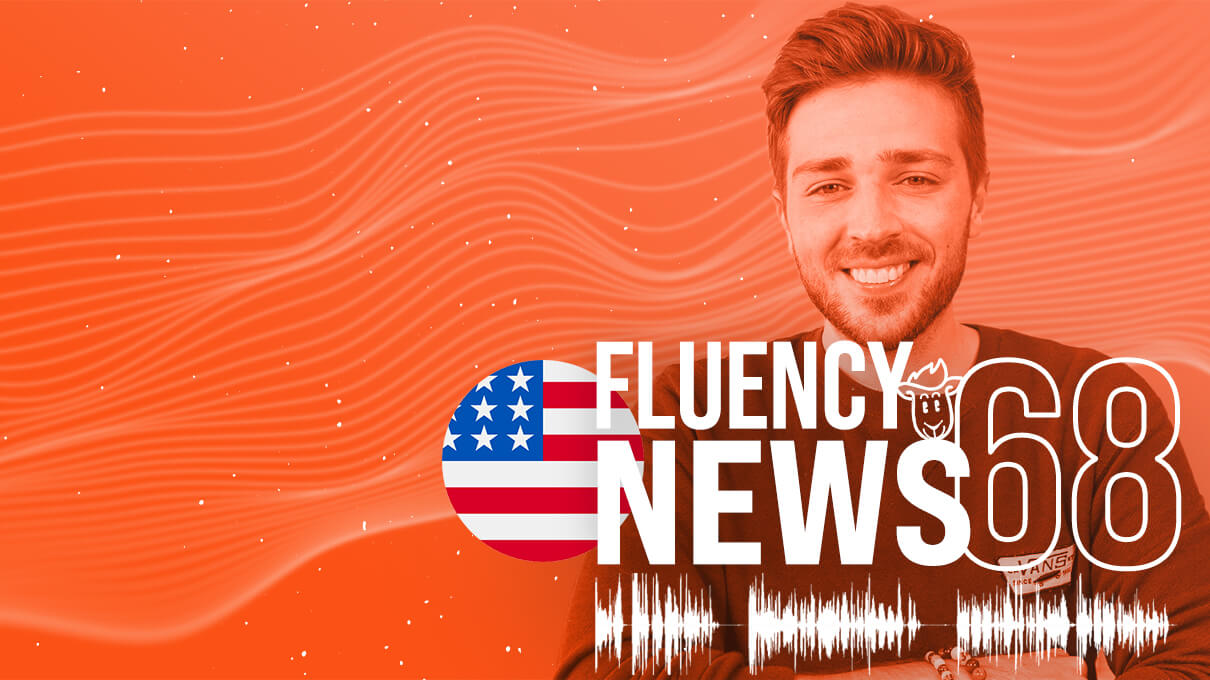
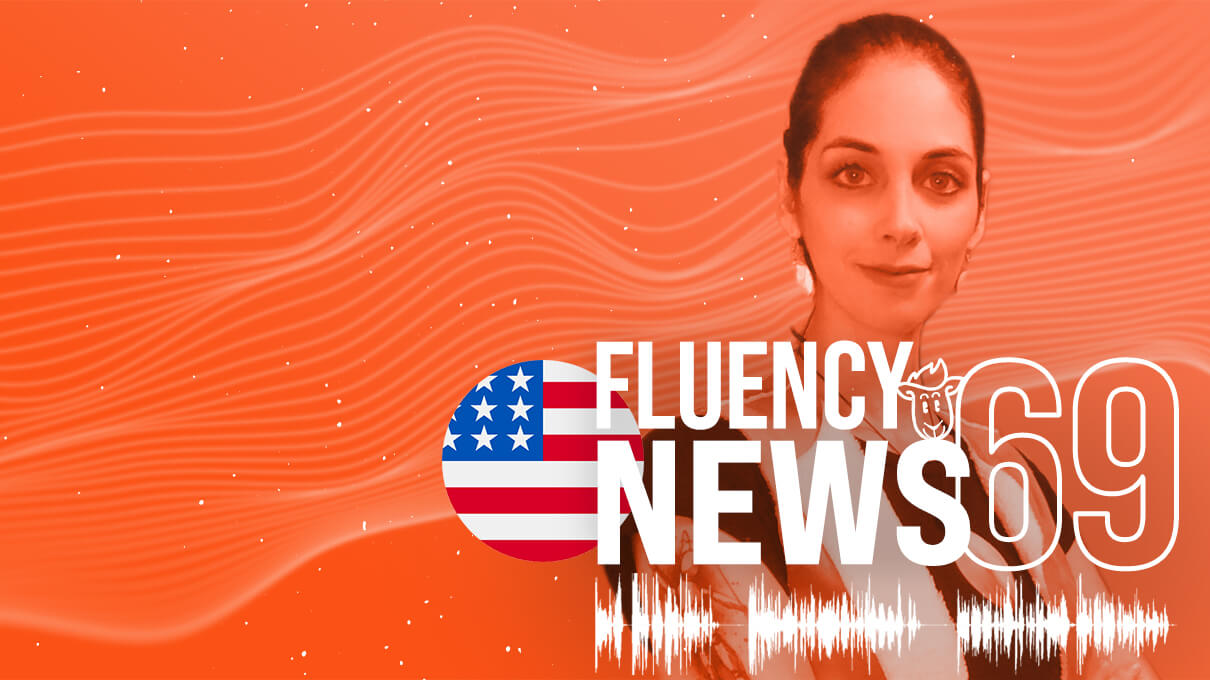
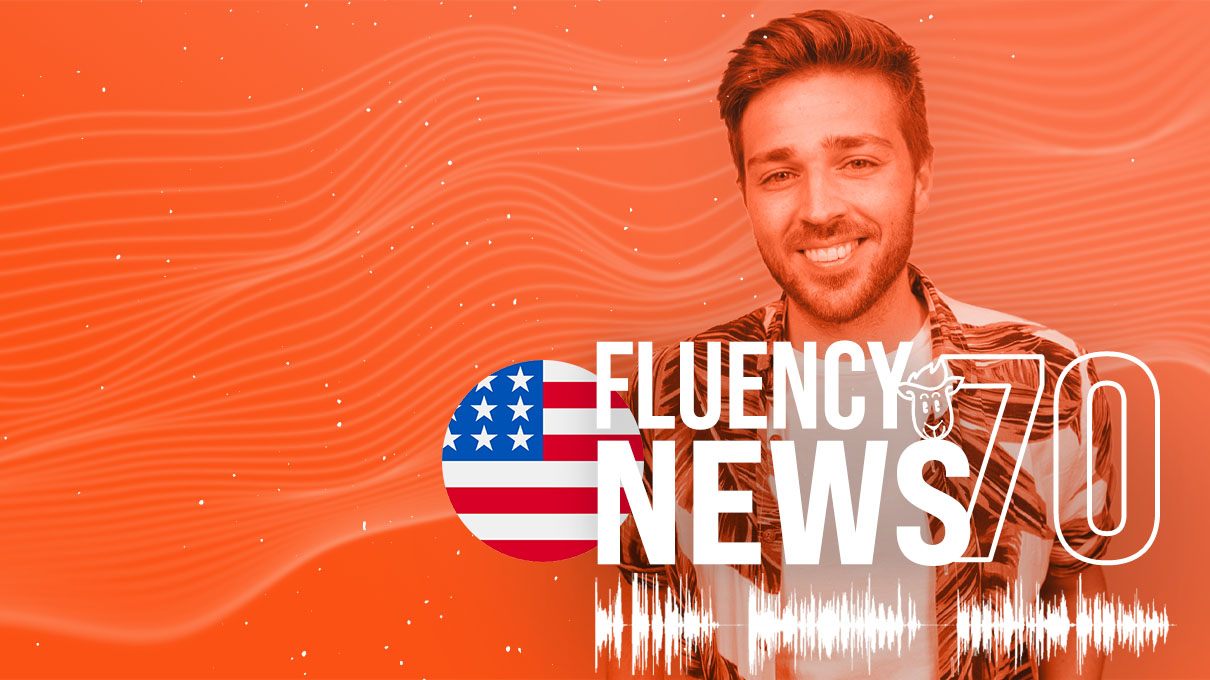
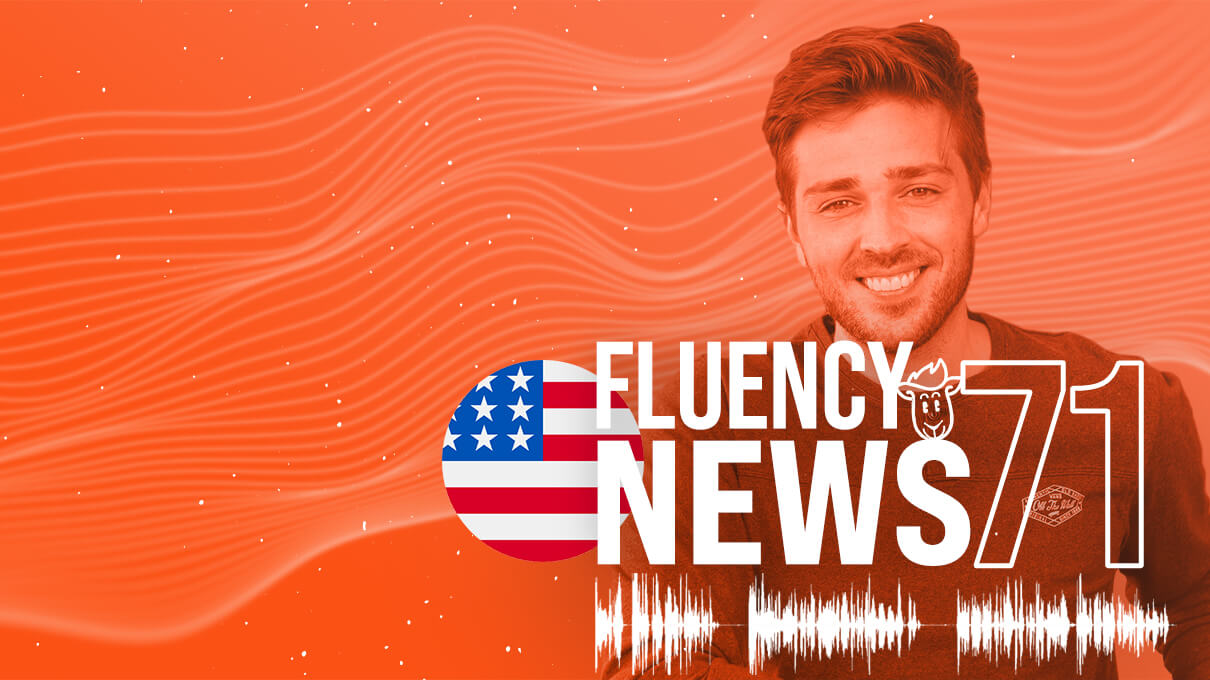
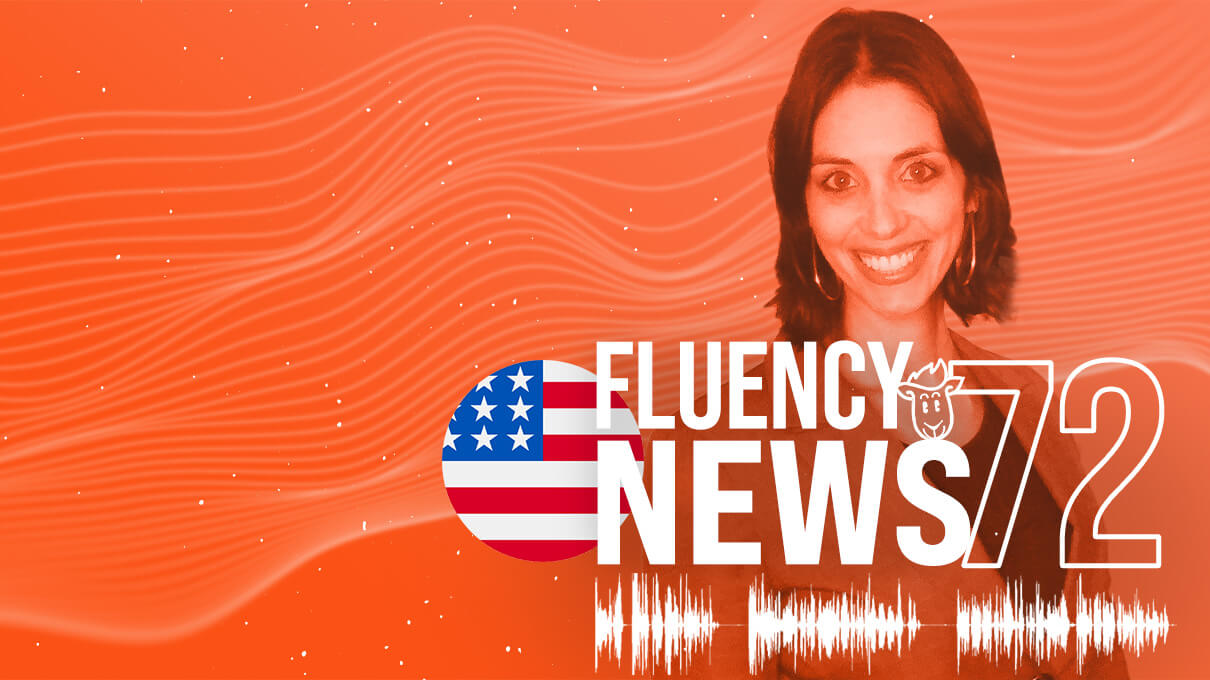
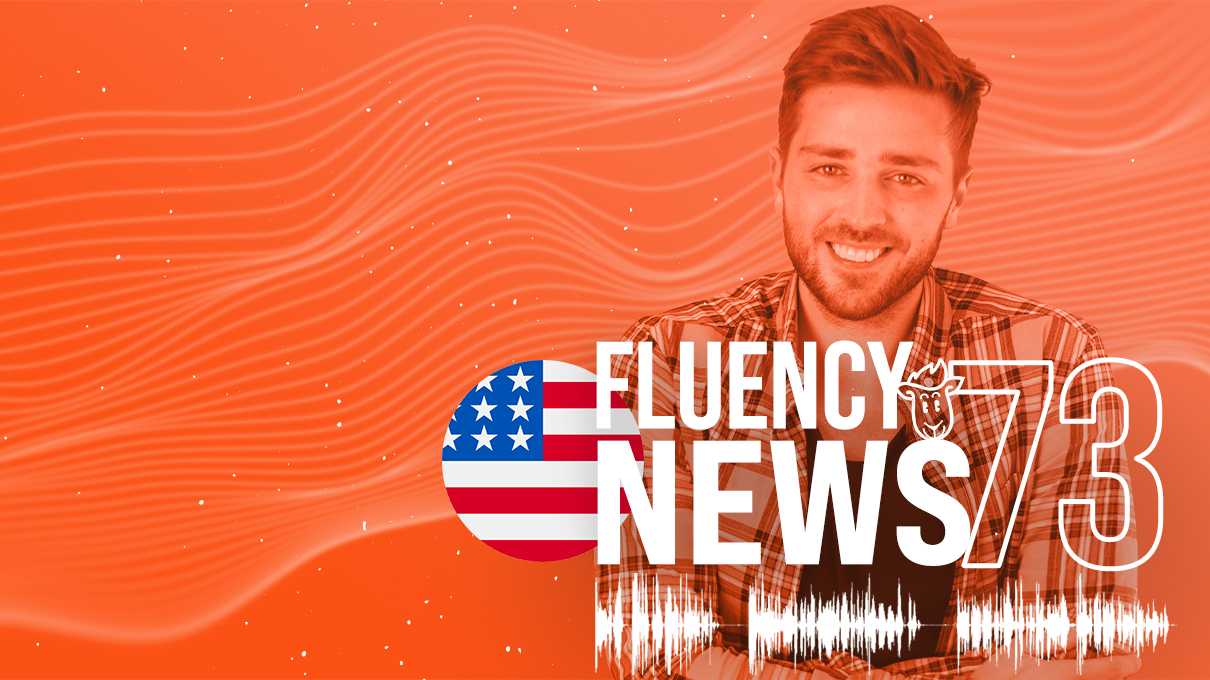
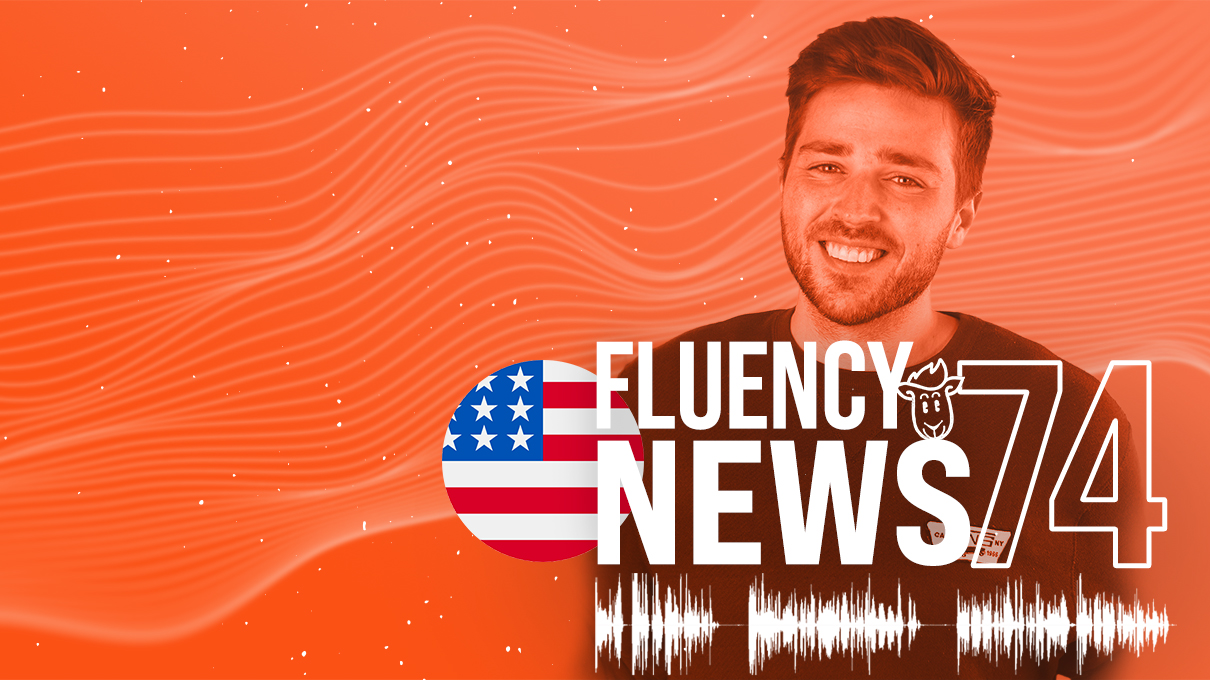
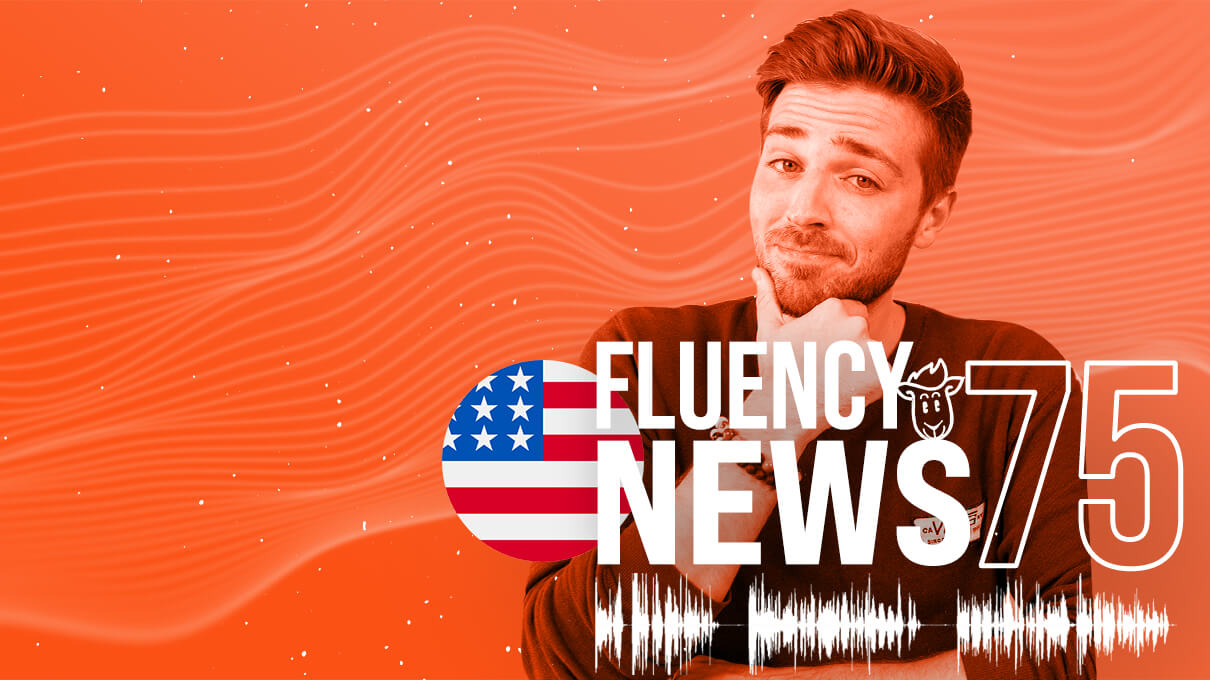
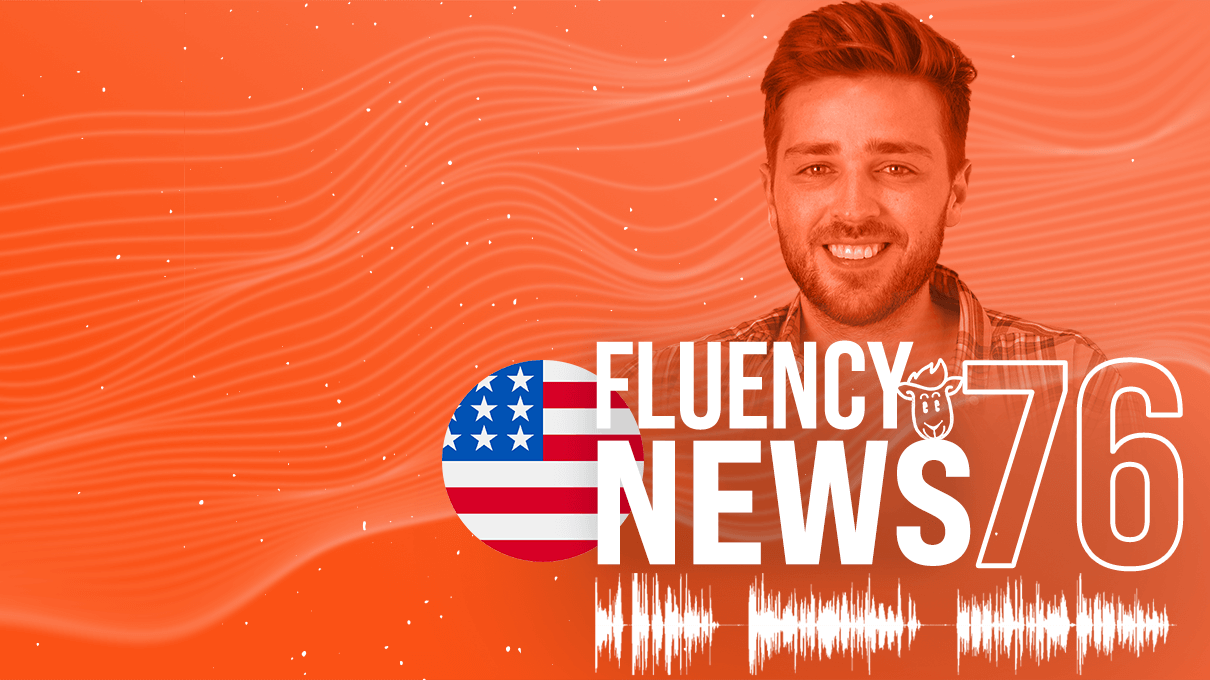
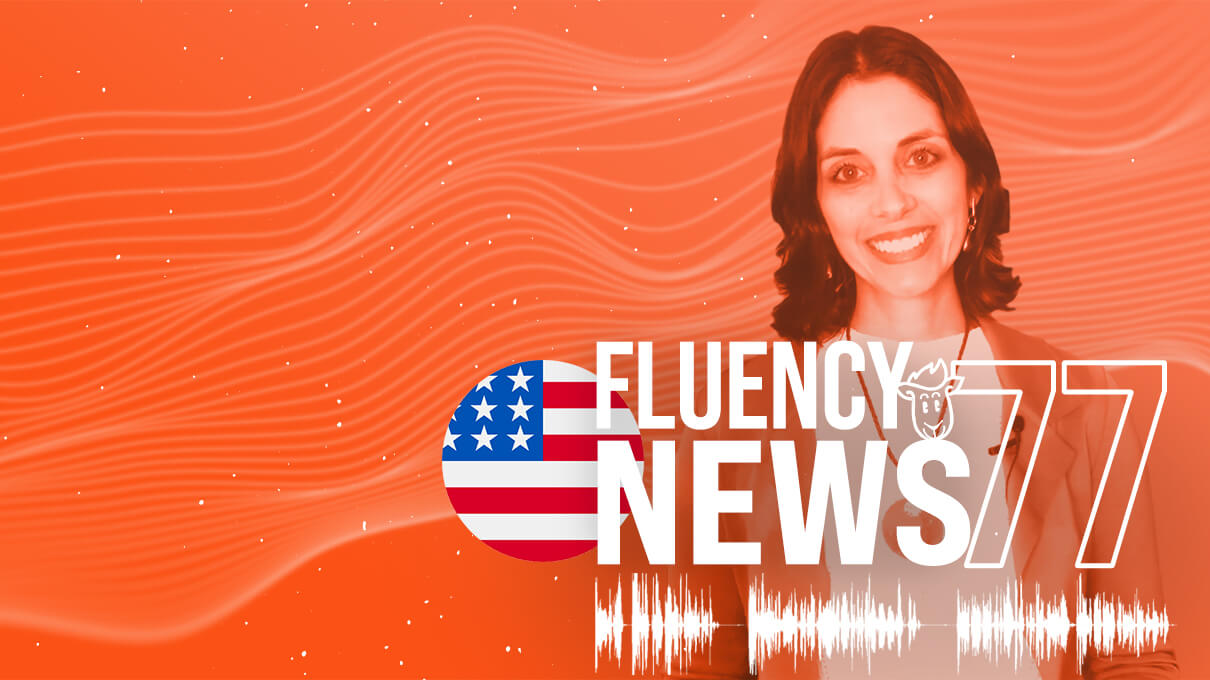
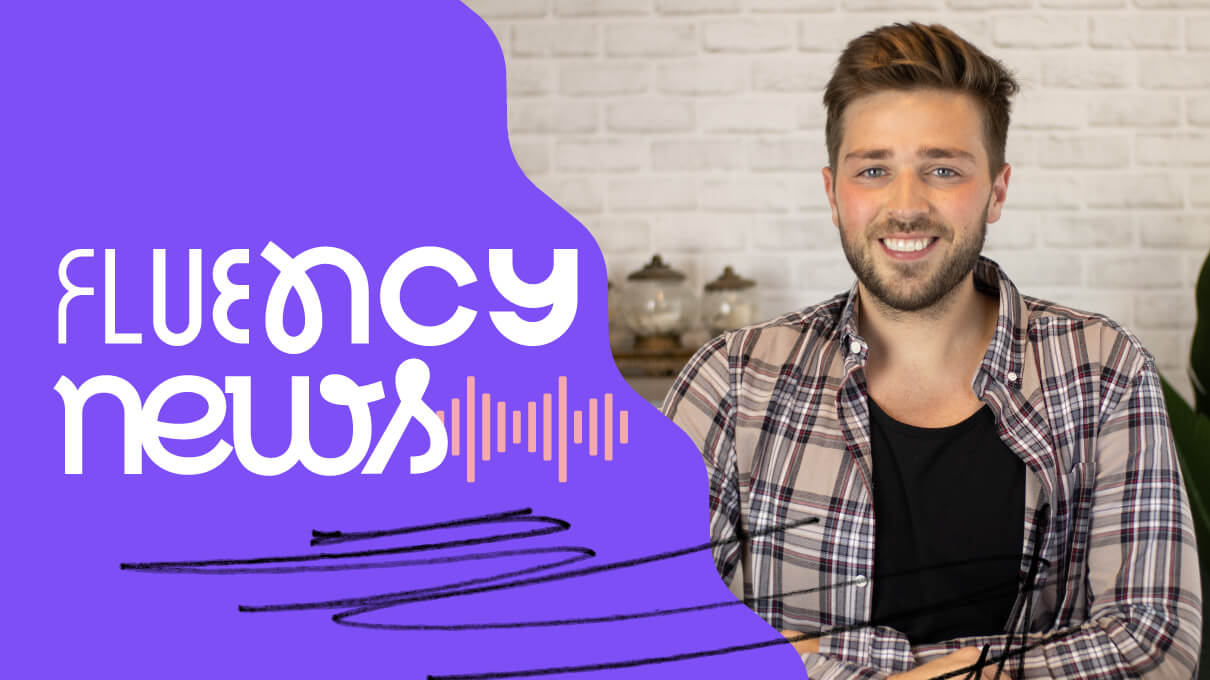
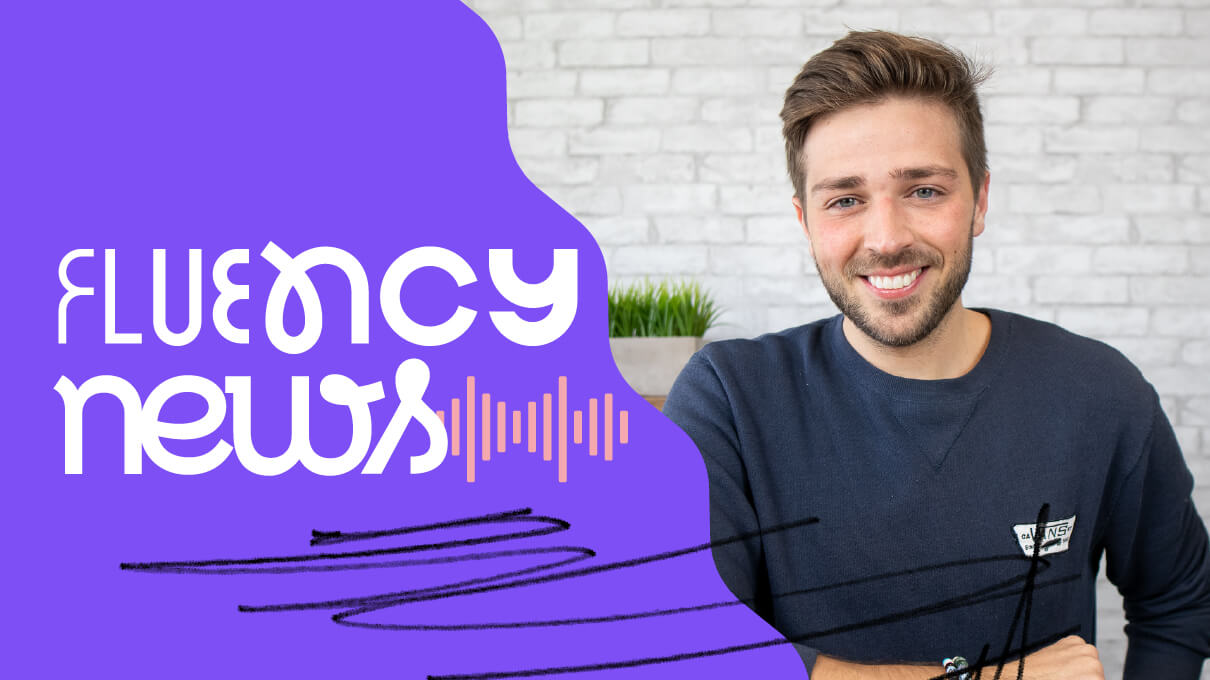
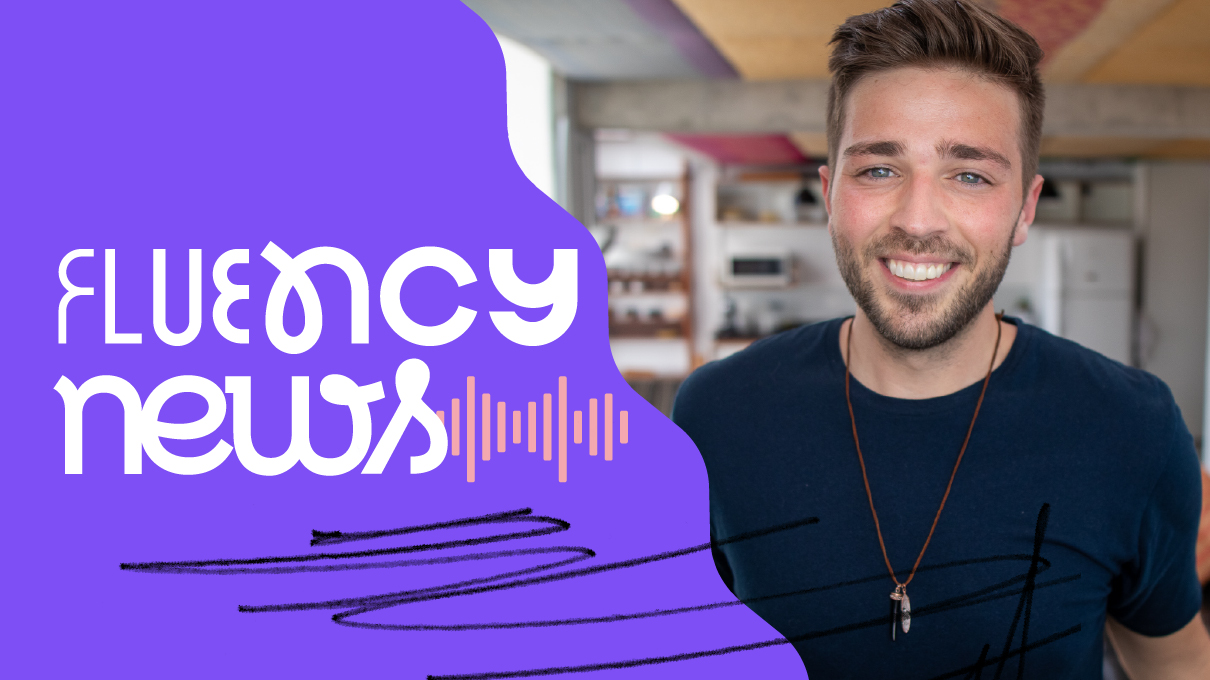
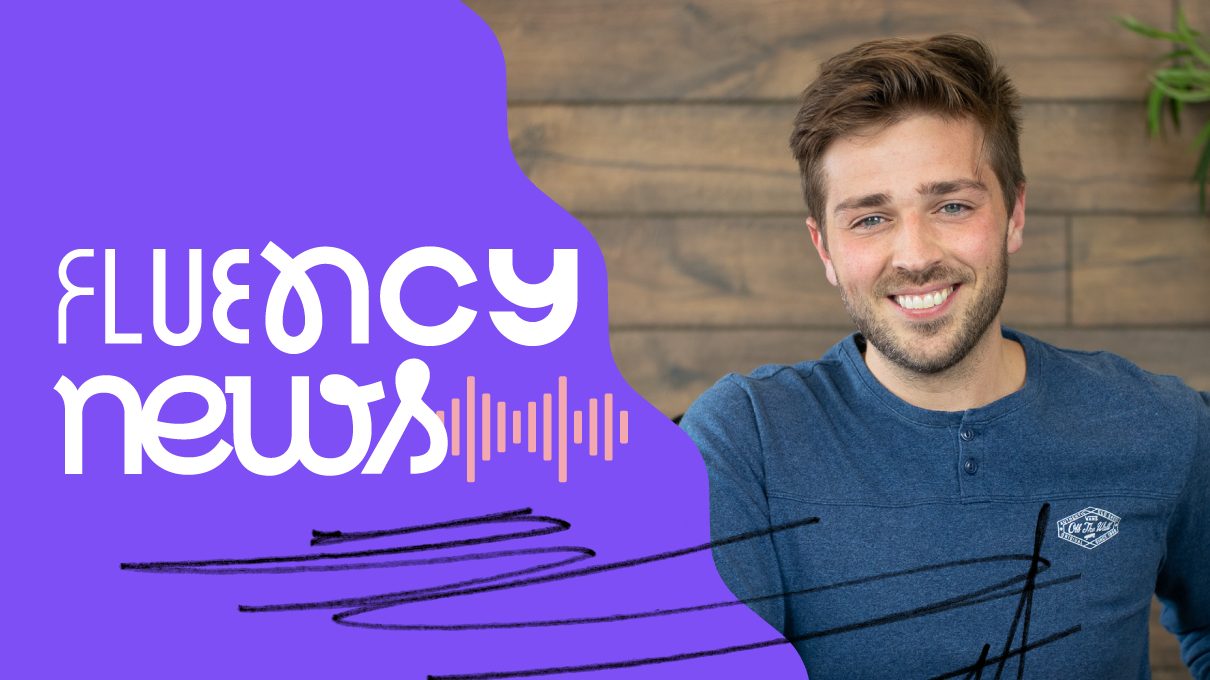
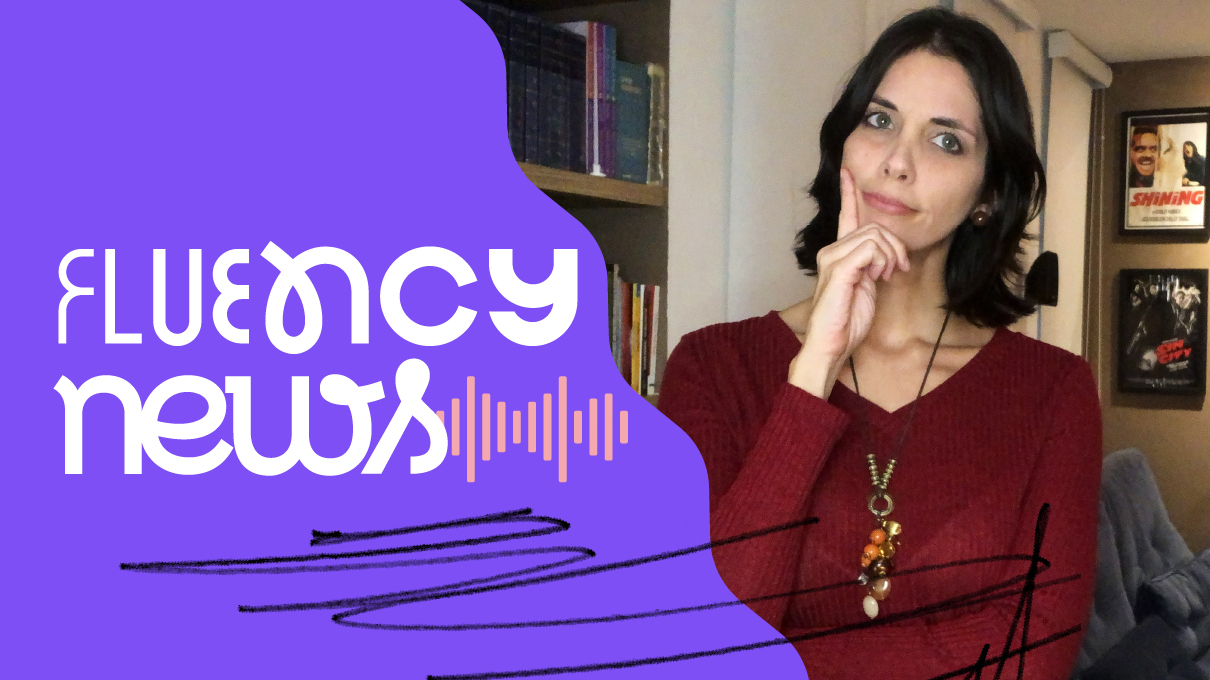
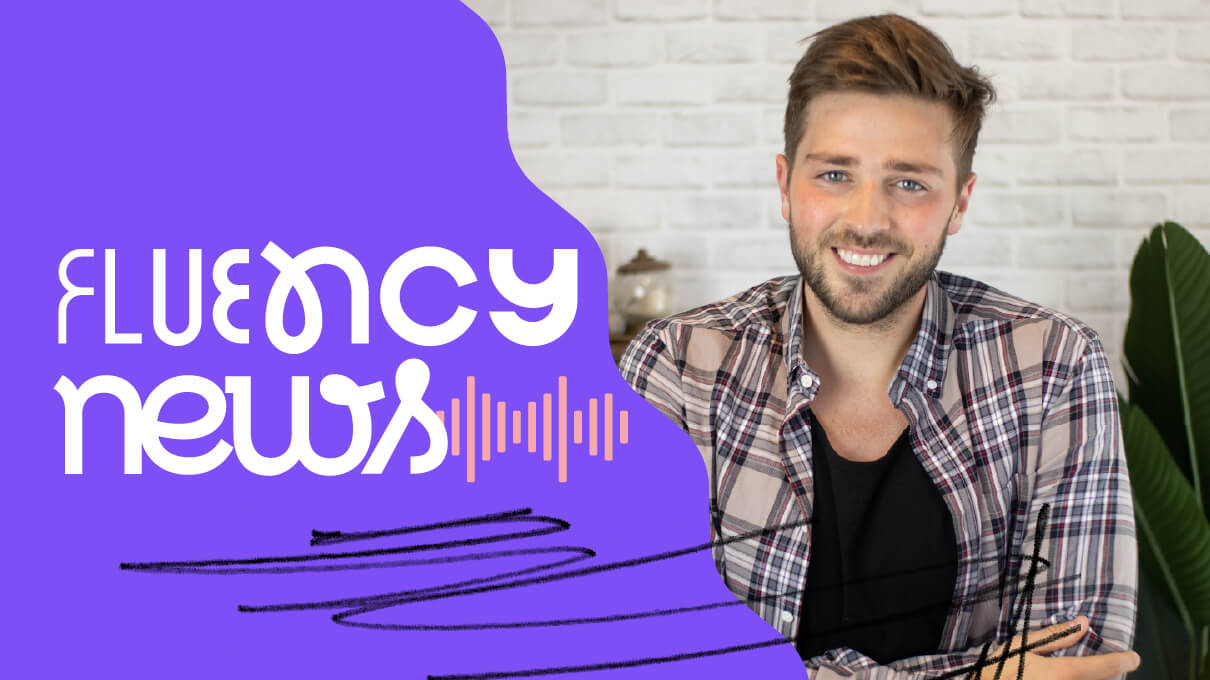
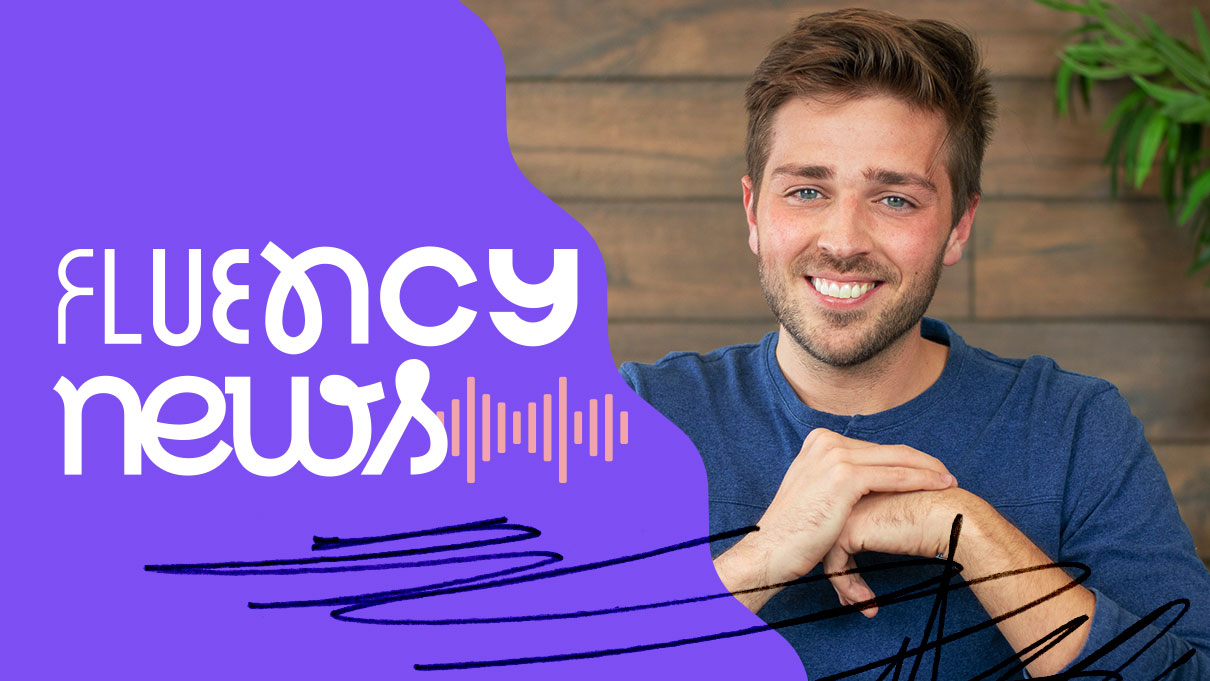
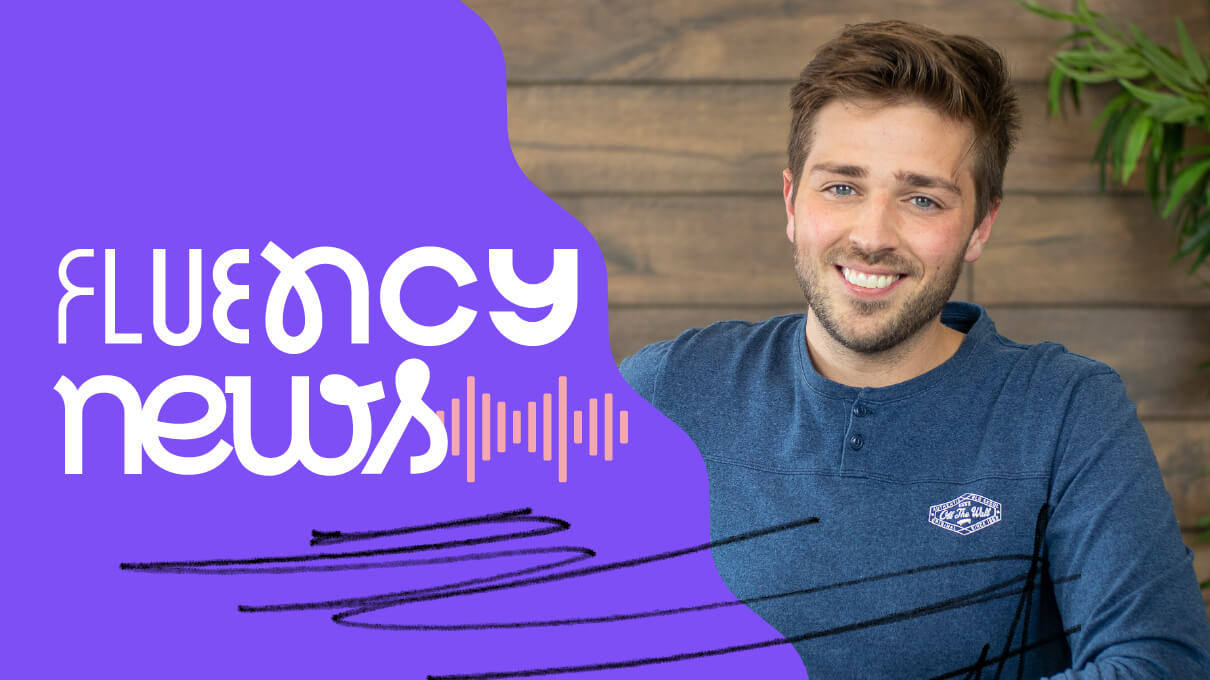

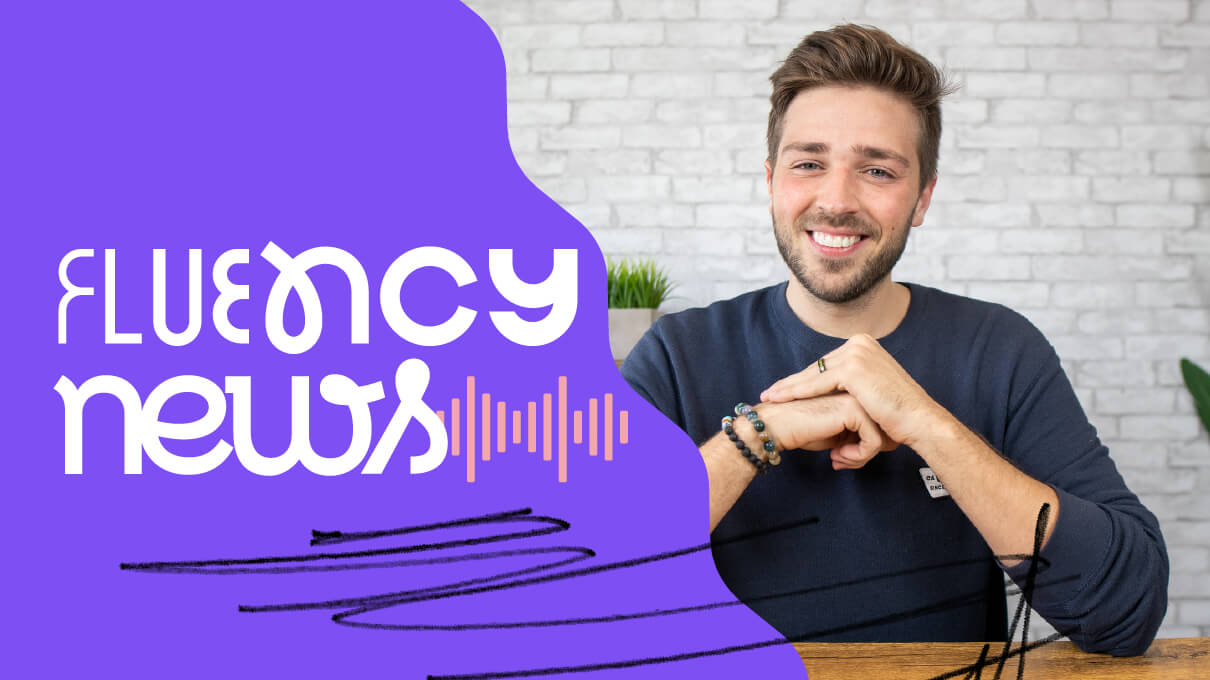
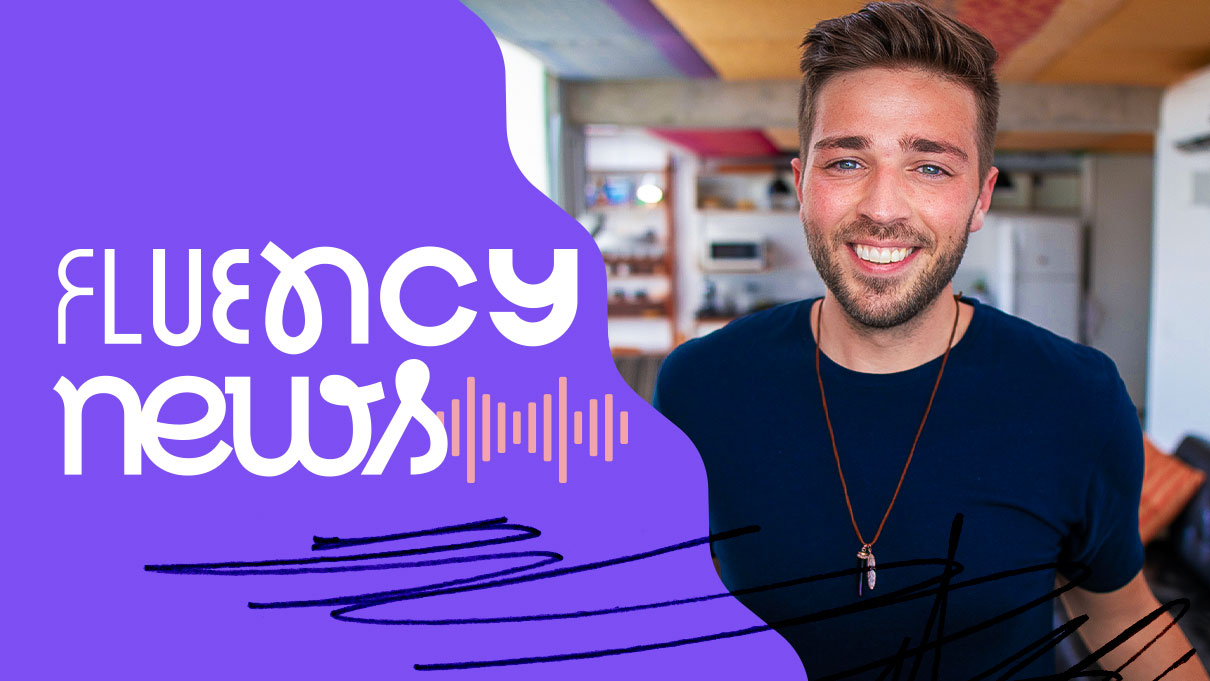
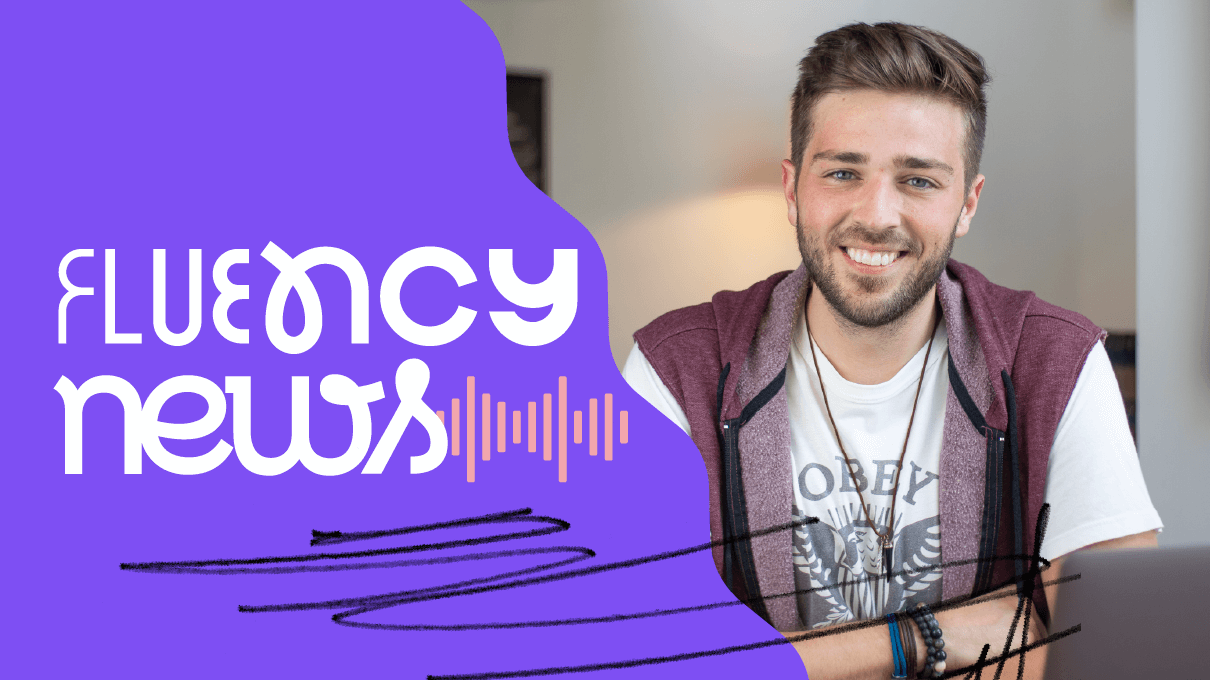



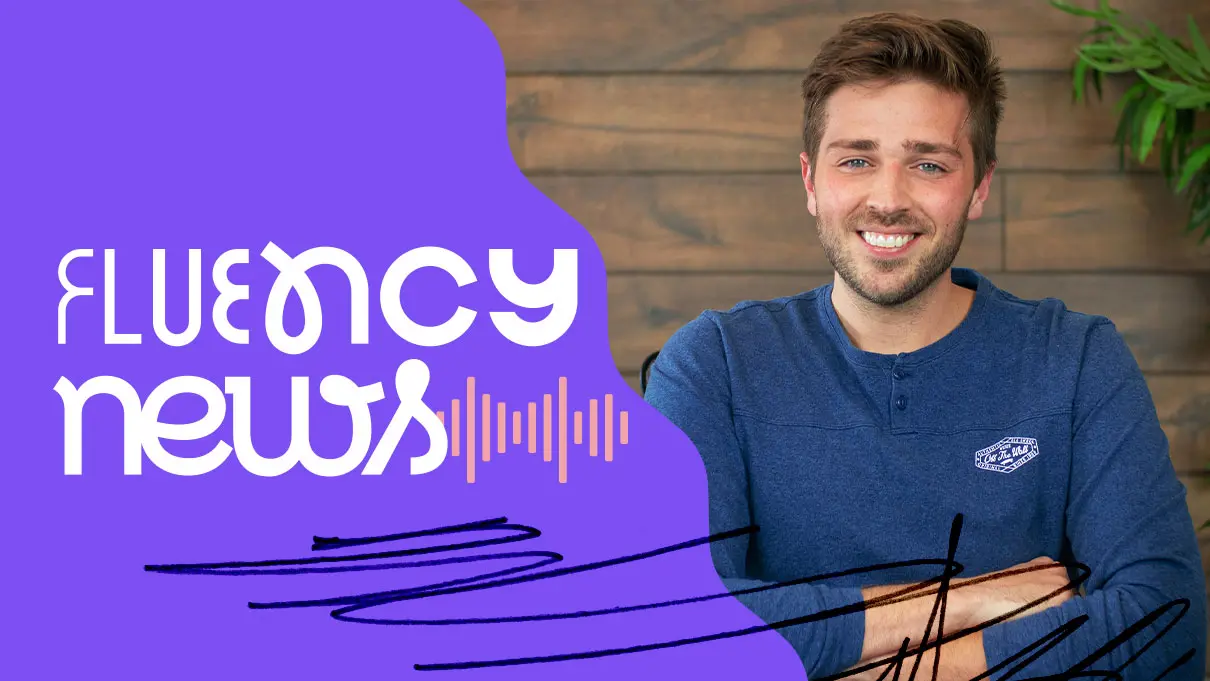
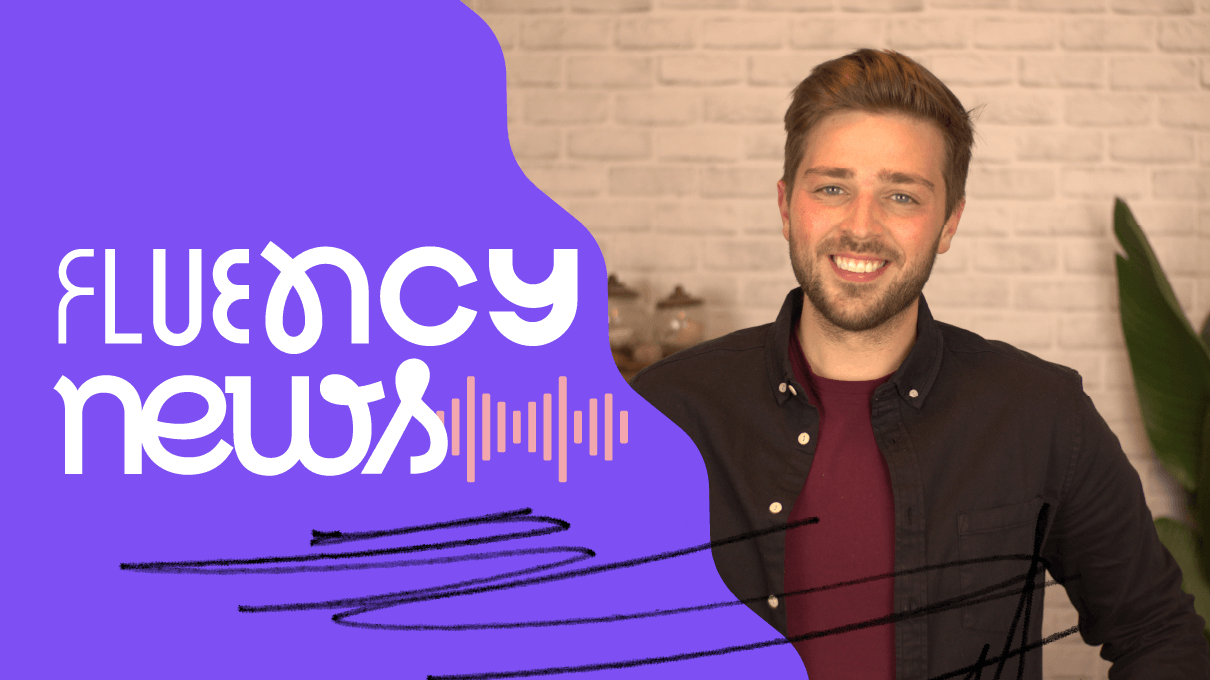

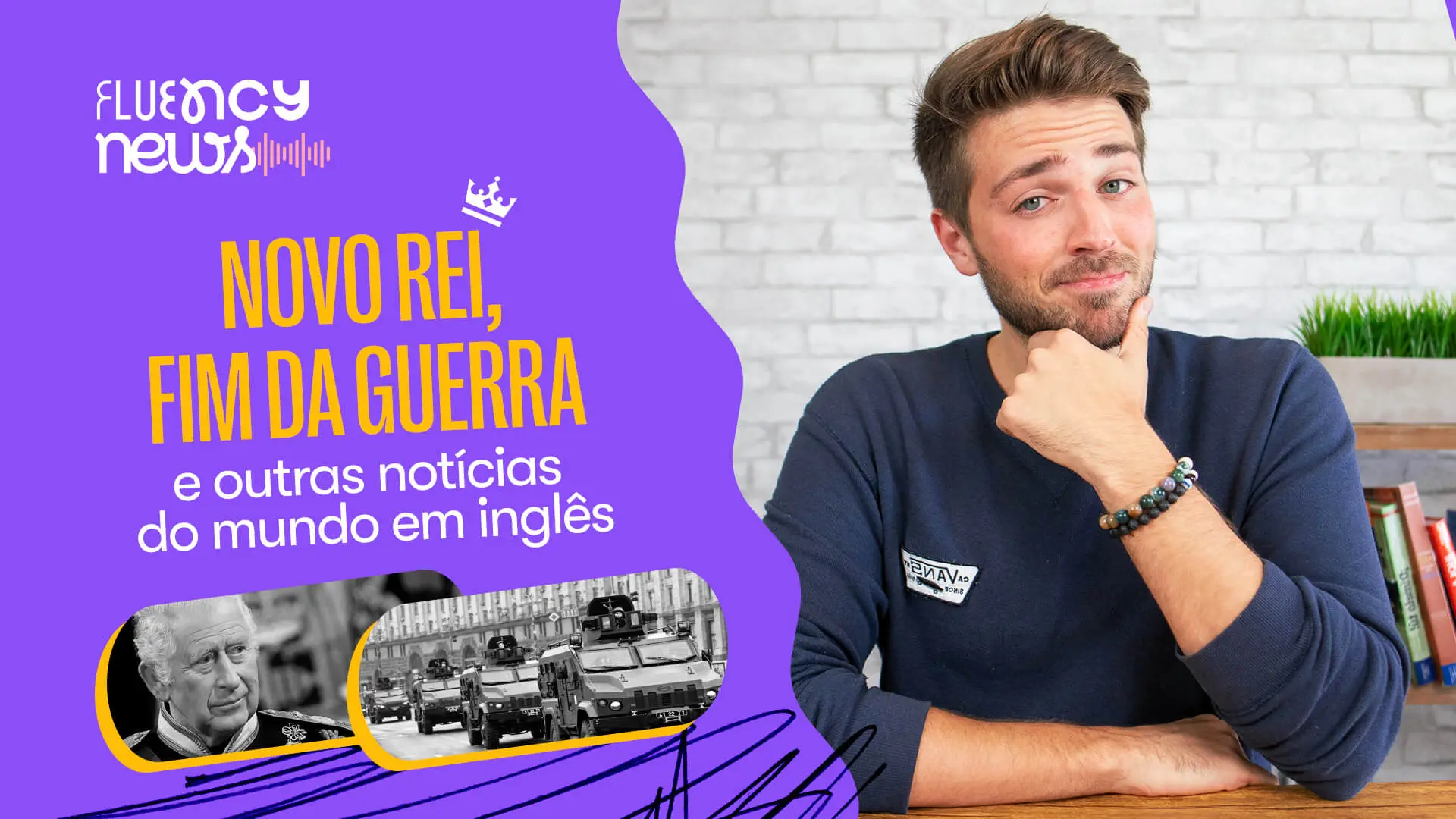
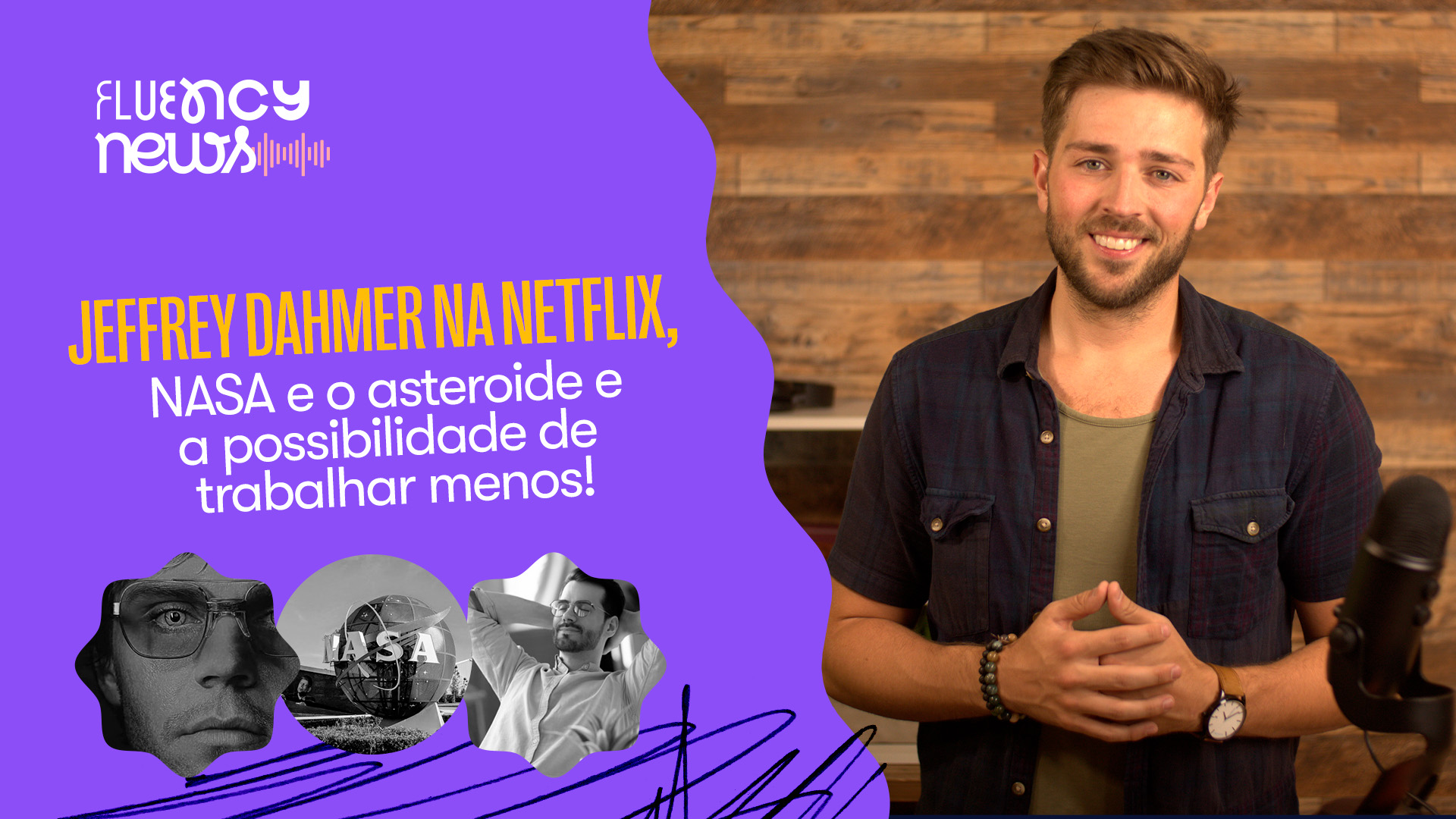

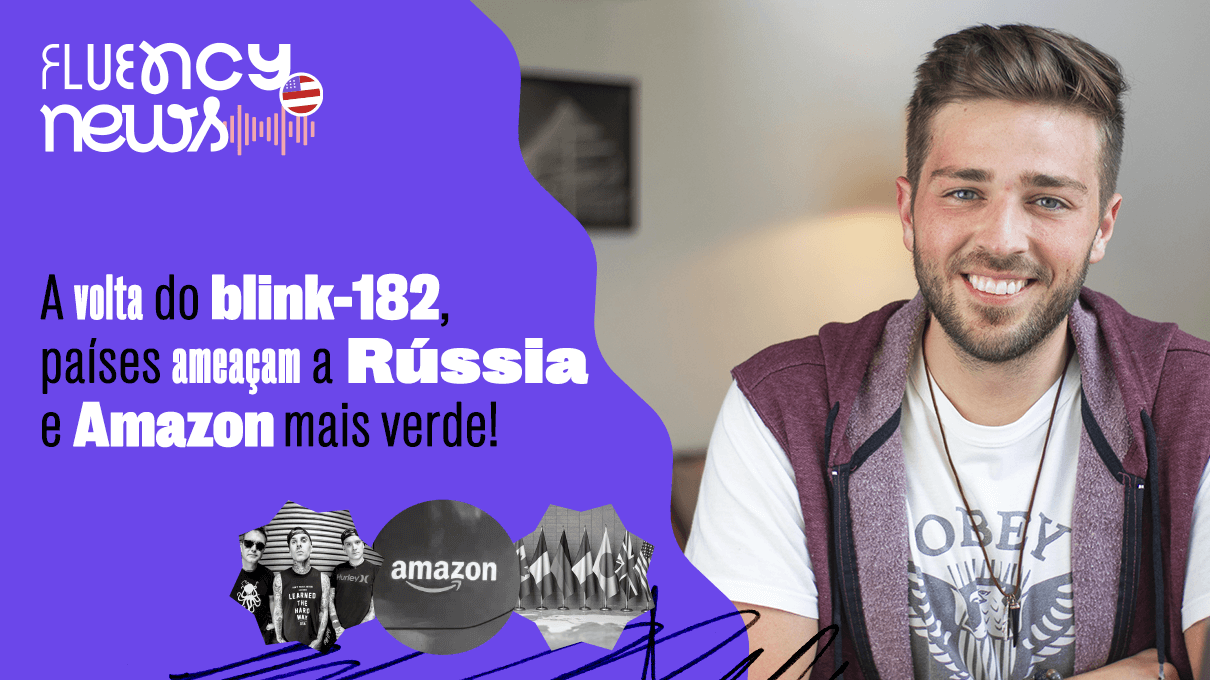
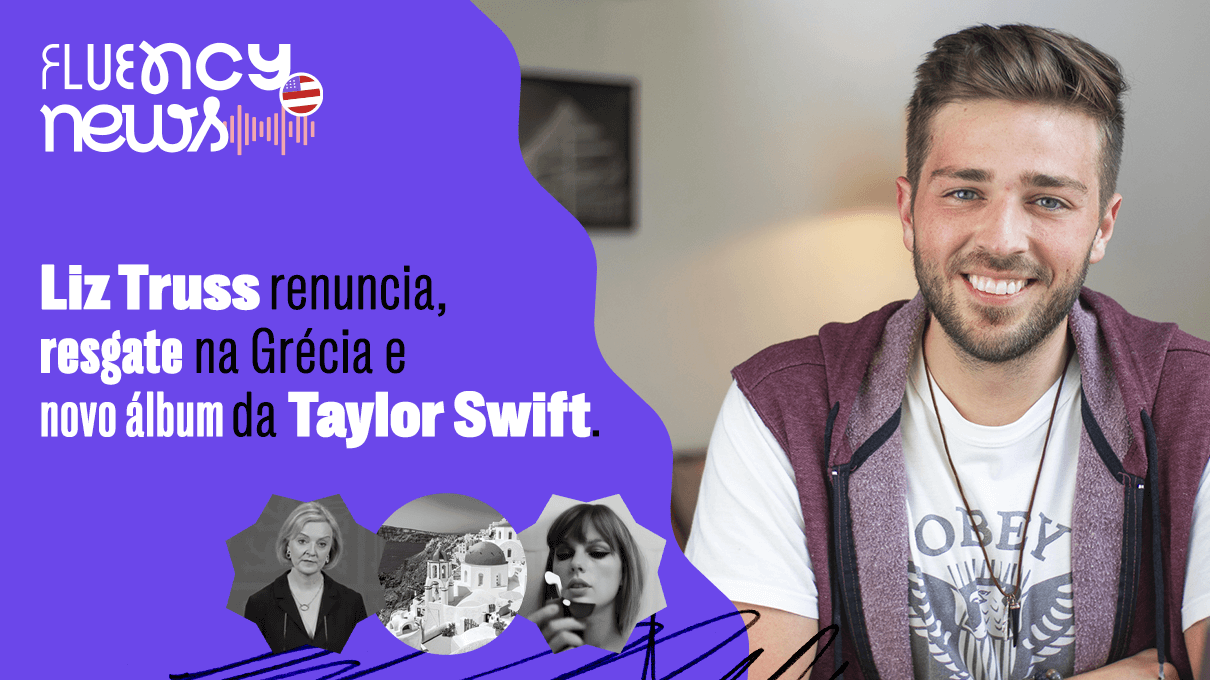
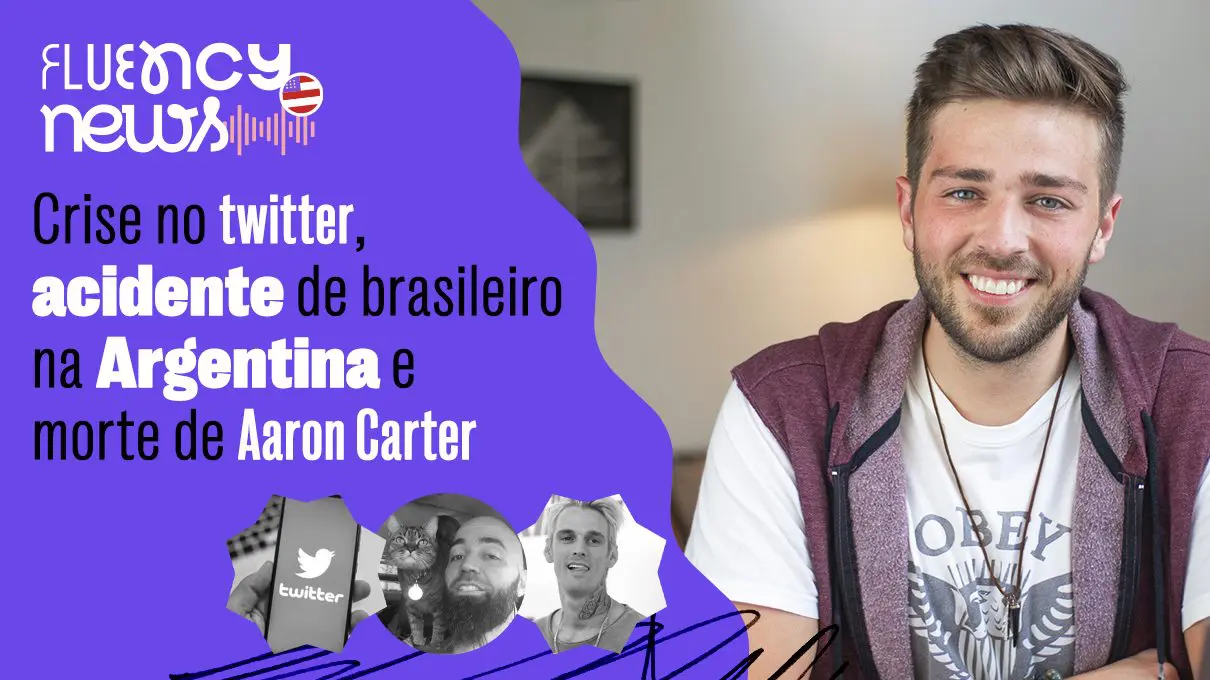
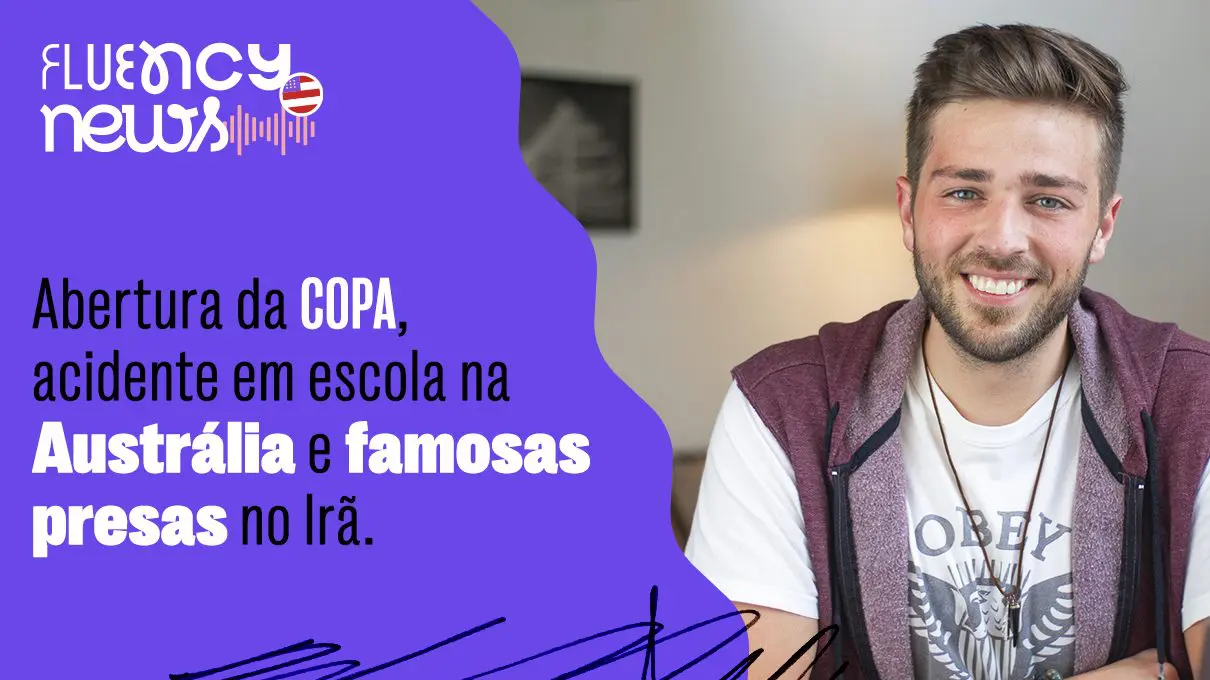
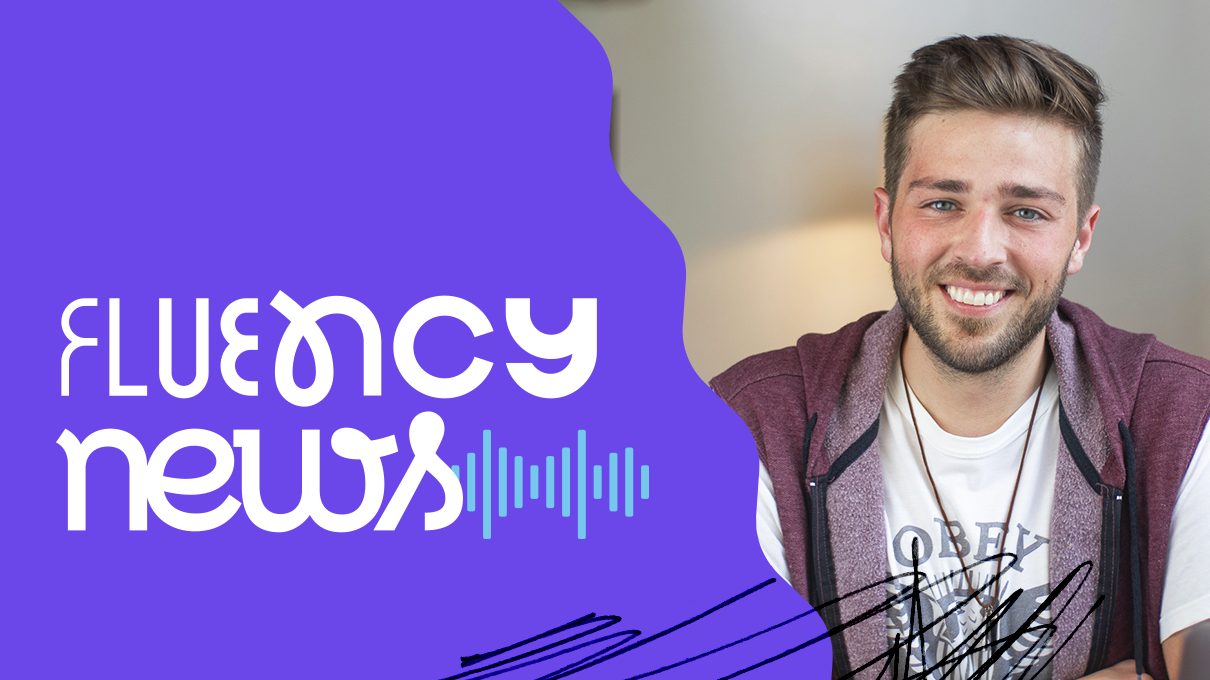







 Blog
Blog  Podcast
Podcast  Lives
Lives  Aulas
Aulas  eBooks
eBooks  Minicursos
Minicursos











